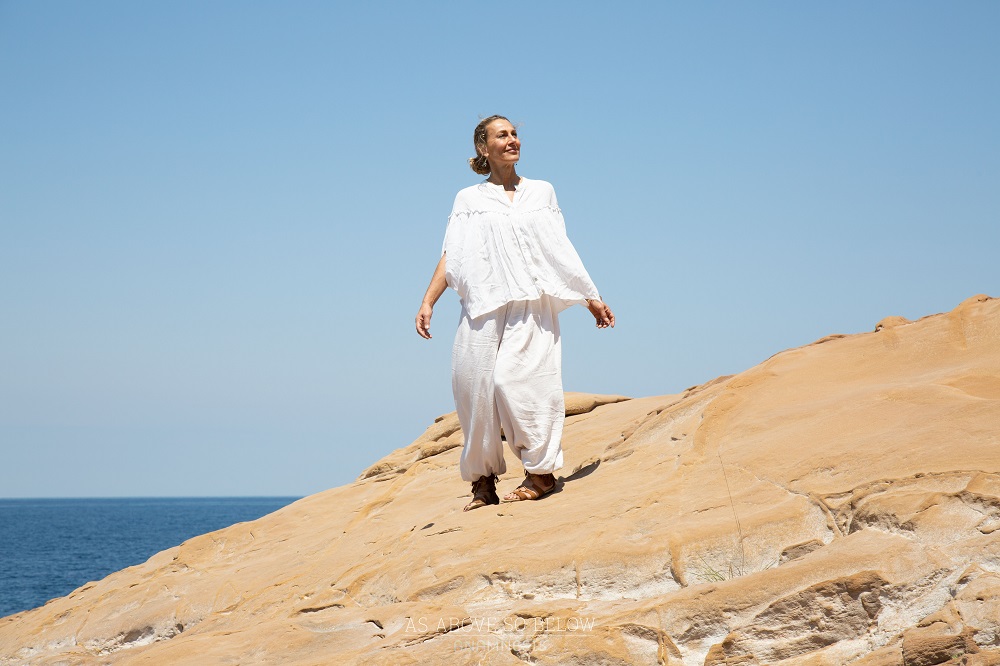
THEATRE
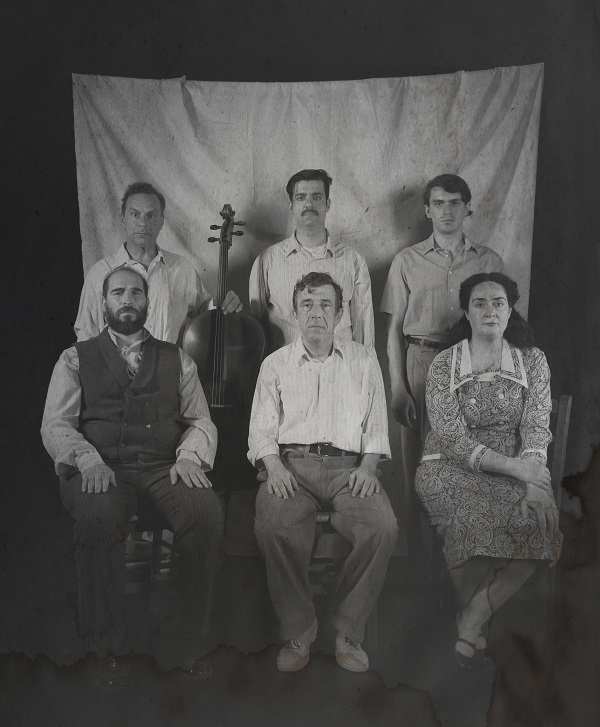
— Anatoli
15 & 16 July • Archaeological site of the Mycenaean Acropolis of Tiryns
Elli Papadimitriou’s Anatoli (East) is a theatrical composition in poetic format that tells the story of the Asia Minor Expedition and Catastrophe of 1918-1922: victories and disasters, causes and consequences, with man and his passions always on the spotlight. Death and uprooting, lust for life and the struggle, mostly of women, to settle down in their new homeland, the pain that goes hand in hand with the faith in life.
The refugees who imbued Greece with their culture.
Elli Papadimitriou, known for her work Koinos Logos, which was first performed at the Neos Kosmos Theatre in 1997, had worked for many decades on Anatoli that is now presented for the first time, in celebration of the author who identified her life and oeuvre with the fate of Asia Minor.
Creative team
Director: Vaggelis Theodoropoulos
Music: Fotis Siotas
Sets, costumes: Claire Bracewell
Choreography: Sofia Paschou
Lighting designer: Apostolis Koutsianikoulis
Scientific advisor: Ioanna Petropoulou
Assistant director: Aggeliki Tobrou
Onstage musician: Tasos Misirlis
Performers: Manolis Mavromatakis, Eleni Ouzounidou, Michalis Titopoulos, Apostolis Psychramis, Dimitris Kapouranis
Production: NEOS KOSMOS THEATRE
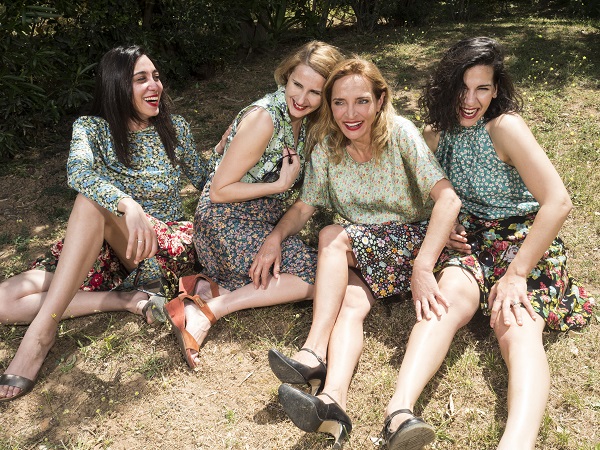
OLYMPUS DIGITAL CAMERA
— The Clean Ones (Pastrikes)
21 & 22 July • Ancient Theatre of Dodoni
This is a performance that combines excerpts from Aeschylus’ Iketides (The Suppliant Women), historical facts, testimonies, traditional sounds but also original texts and songs, in order to shed light on the saga of the relocation of the young women who constituted the vast majority of the refugee population.
Those young widows, single and orphaned women, in their attempt to claim their professional and personal “rehabilitation” in the patriarchal Greece of ’22, are exploited by men and subjected to racism by Greek women who see them as rivals.
They call them “pastrikes” (the “clean ones”) but not in order to praise their love of grooming and cleaning: those times in Greece the only women who often washed themselves –because of their profession– were prostitutes. “Honest” women did not need to wash any “shame” off of them.
Creative team
Text, direction: Marianna Calbari
Sets, costumes: Christina Calbari
Music: Avgerini Gatsis
Choreography: Christina Soyoultzis
Sets, lighting: Stella Kaltsou
Performers: Avgerini Gatsis, Katerina Lypiridou, Marilena Moschou, Konstantina Takalou, Amalia Tsekoura
Music is performed live by two musicians
Production: ELLINIKI ETAIRIA THEATROU AEPE (Art Theatre)
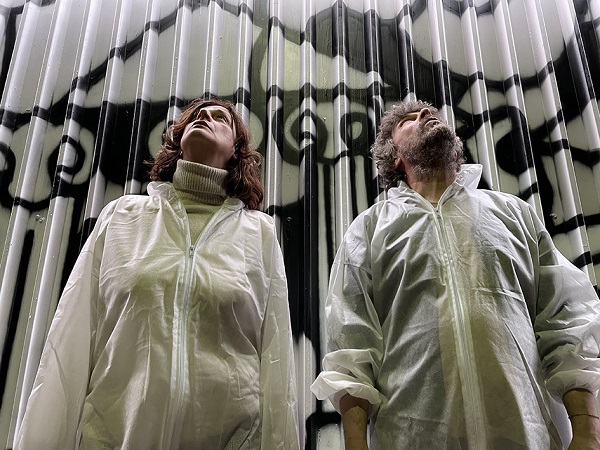
— Doctor Ineotis
25 & 26 July • Archaeological site of the Holy Monastery of the Dormition of Virgin Mary, Deskati
Using the Asia Minor Catastrophe as a starting point we will work on the provocative and enigmatic story written by Giorgos Chimonas, Doctor Ineotis.
The wandering and the History of the masses, the History of humanity itself, its ending and the inevitable renaissance of something new are the essence of the Asia Minor Catastrophe and are also powerfully present in Chimonas’ text. Chimonas writes a story but its narrative is being constantly interrupted, in the same way that dreams work. And the dreamy element in the archaeological site of Deskati in Grevena is the Tarkovskian setting that perfectly matches with the poetic writing of the text.
The non-realistic speech delivery, the scenery, the music and the singing, are the elements that will compose our performance.
Creative team
Text: Giorgos Chimonas
Concept, dramaturgy, direction: Kostas Koutsolelos, Dora Stilianesi
Musical composition and execution: Panayotis Kalantzopoulos
Sets, costumes: Eleni Stroulia
Sound installation: Panayotis Kalantzopoulos
Performers: Panayotis Kalantzopoulos, Kostas Koutsolelos, Dora Stilianesi
Production: ASKISI THEATRE COMPANY
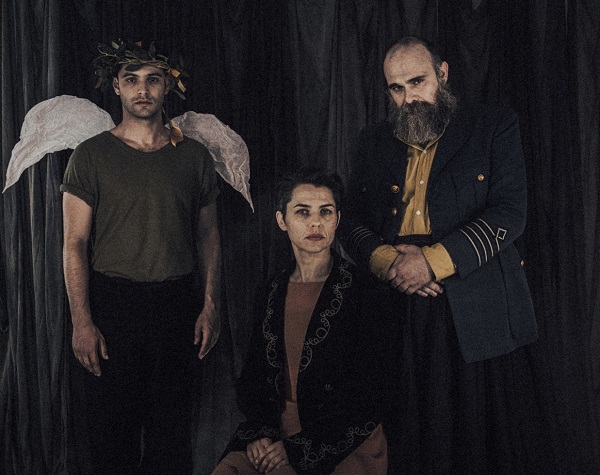
— The Black Journey
29 & 30 July • Ancient Theatre of Aigeira
The Black Journey is the real life testimony of a young Greek man who was recruited to take part in the Asia Minor Expedition.
The bijoux de kant company talks about the vital needs, the hunger, the thirst and the cruelty planted by war in the souls of all people, regardless of their nationality. It talks about the uprooting, the life of refugees, and the new cultural identity of Greece. In a field of memory, in a landscape of fragments, an unknown soldier of the Engineer Battalion vividly describes the wound of being uprooted and rewrites history.
The protagonist is accompanied by an Angel, his younger self, and eastern melodies of Asia Minor performed by a young girl from Athens, who sings to the Smyrnaean rhythms of a culturally new Greece.
Creative team
Text: unknown author/ real life testimony
Concept, direction: Yannis Skourletis
Text adaptation: Asimenia Efthymiou
Sets, costumes: bijoux de kant
Painting: Maria Karabela
Performers: Thanasis Dovris, Vasilis Milionis and the musician Theodora Athanasiou
Heartfelt thanks for digging up the text are due to journalist Christos Paridis.
Production: BIJOUX DE KANT
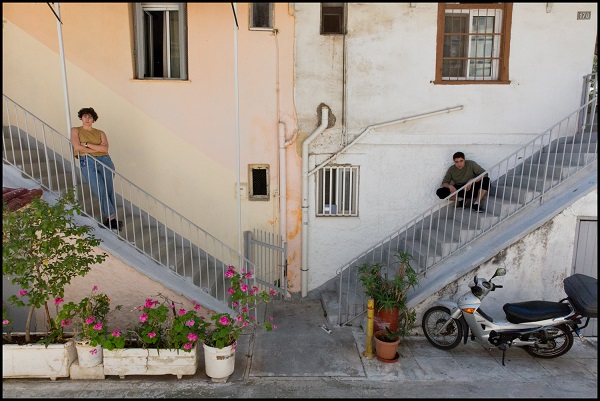
— The House
30 & 31 July • Archaeological Museum of Chios
Continuing its research on intergenerational participatory story-telling, the EFAMILLON creative team focuses on the Asia Minor Catastrophe and the story of two places directly linked to the ’22 refugees. Nikaia and the island of Chios, one of the main first stations of the uprooted.
The basic dramaturgical stepping-off point is the concept of the house, both as the material manifestation of relationships grounded in a specific space and as a mental construction. A house is placed on the stage as a scenic indicator of every lost house of the refugees and at the same time of their effort to acquire a new roof over their heads.
The dramaturgy draws upon testimonies and archival material from refugee associations, engaging in a conversation with melodies performed by the students of the Musical Schools of Chios, in a scenic fusion of theatre with music, which bridges two places and two eras.
Creative team
Direction: Dimitris Babilis
Dramaturgy: Dimitris Babilis, Georgia Kanellopoulou
Research collaborator: Dimitra Loupi
Sets, costumes: Daphne Aidoni
Scientific consultant: Vasilis Lemonis
Lighting: Eleni Choumou
Performers: Thanasis Kritsakis, Irini Kyriakou, and students of the Musical School of Chios
Production: EFAMILLON
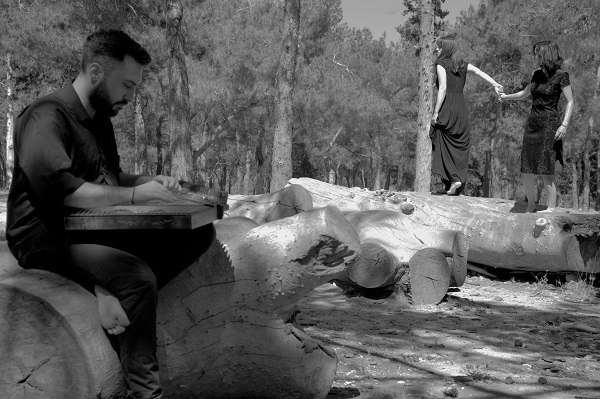
— Stage 22
3 & 4 August • Ancient Theatre of Demetrias
The production approaches the Asia Minor Catastrophe through poems written by poets from Asia Minor, whose verses are marked by a strong lamenting mood, proportional to the tragic nature of the 1922 events.
The collective trauma of the loss of “Paradise” echoes across the poems of the refugee-poets, becoming a link to respective contemporary situations and also to the lamentation over the loss of people, places, hearths, relationships and freedoms in a wider sense. The performance aims at creating a safe context for a different lamenting ceremony but also an open space for reflection on the questions of loss and refugeeism.
Focusing less on the detailed narration of the events revolving around the Asia Minor Catastrophe and more on their emotional perception and symbolic representation, Stage 22 presents a grief-lifting ceremonial event that praises peace and life.
Creative team
Direction, dramaturgy: Dimitris Tsiamis
Choreography: Eleni Chatzigeorgiou
Sets, costumes: Niki Psyhogiou
Lighting design: Sofia Adamopoulou
Assistant director: Dafni Alichontzoti
Music, onstage musician: Manolis Christodoulou
Performers: Kleopatra Markou, Eleni Chatzigeorgiou,
Production: PER-THEATER-FORMANCE
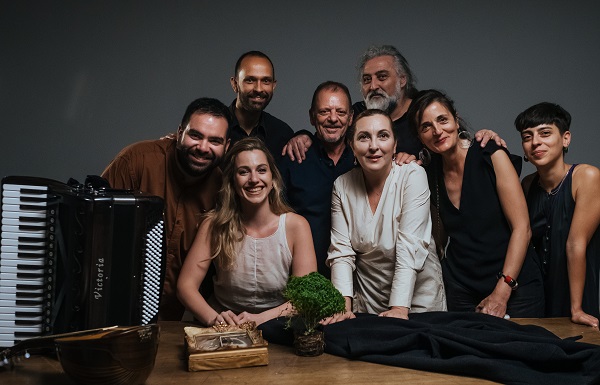
— 1922 Asia Minor Refugees on Cephalonia and Ithaca
5 & 6 August • Castle of St George, Argostoli
On a stage that is also an archaeological site, five artists from Cephalonia who live and create in 2022, bring to life narratives from the days of 1922, hum melodies, and look for the thread connecting them to their ancestors, who were either born on Cephalonia or Ithaca or ended up there hunted down, orphaned, and frightened. Alongside them a British lighting designer, a Cephaloniot set designer who lives abroad, and a director with roots in Cappadocia.
The performance presents archival material revolving around the reception of 7,000 refugees and the integration of those who, in the end, remained on these two islands.
With no sadness, but with the intent to communicate the atmosphere of that era and collectively redefine the concept of “refugee”. Because refugeeism is not an instant occurrence in world history.
Creative team
Text, direction: Yannis Anastasakis
Sets, costumes: Loukia Minetou
Set & costume designer’s assistant: Sofia Tabler
Music: Kostas Haritatos
Lighting designer: Peter Mumford
Archival research: Stamo Stergiotou
Musician: John Dafnos
Performers: Maria Tsima, Amalia Arseni, Kyriakos Markatos
Production: STIGMI THEATRE COMPANY
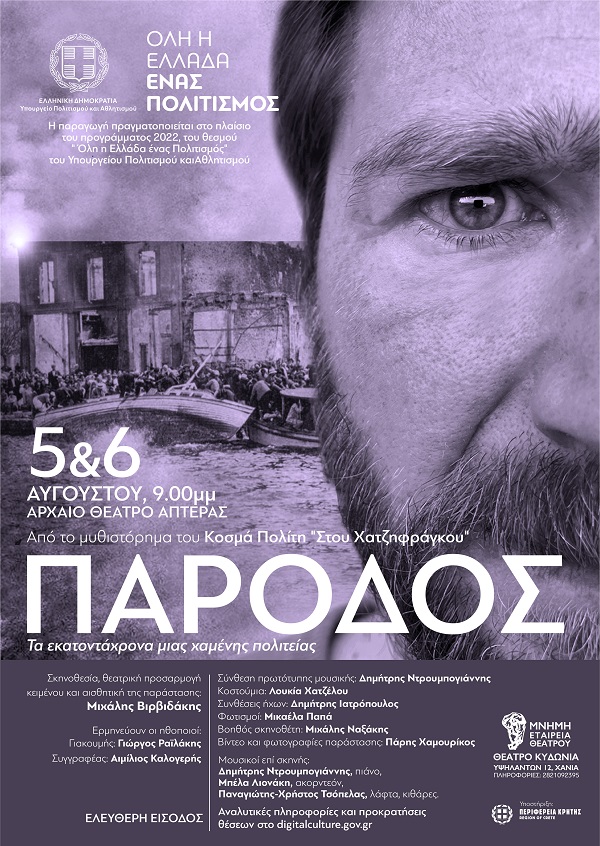
— Parodos
5 & 6 August • Ancient Theatre of Aptera
On the occasion of the centenary of the Asia Minor Catastrophe, MNEME theatre company revisits the atmosphere of those days through Kosmas Politis’ emblematic “Parodos”, a chapter interpolated in the middle of his novel Stou Hadjifragkou, that introduces us to the greatest tragedy ever experienced by the Greek people since the birth of the Greek State.
Its literary value is unprecedented as it manages to capture our imagination, both metaphorically –by calling our attention to the value and beauty of the place– and literally – by transporting us to the centre of the tragedy that unfolded during the last days of August 1922 on the coast of Smyrna.
The production is accompanied by the original music of composer-pianist Dimitris Droumboyannis, performed live onstage by three musicians.
Creative team
Text: Kosmas Politis
Director: Michalis Virvidakis
Original score: Dimitris Droumboyannis
Sound compositions: Dimitris Iatropoulos
Visual art intervention: Giannis Markantonakis
Lighting: Mikaela Papa
Director’s assistant: Michael Naxakis
Performer: Giorgos Railakis
Onstage musicians
Piano: Dimitris Droumboyannis
Accordion: Bela Lionaki
Lavta, guitars: Panayiotis-Christos Tsopelas
Production: MNEME Theatre Company
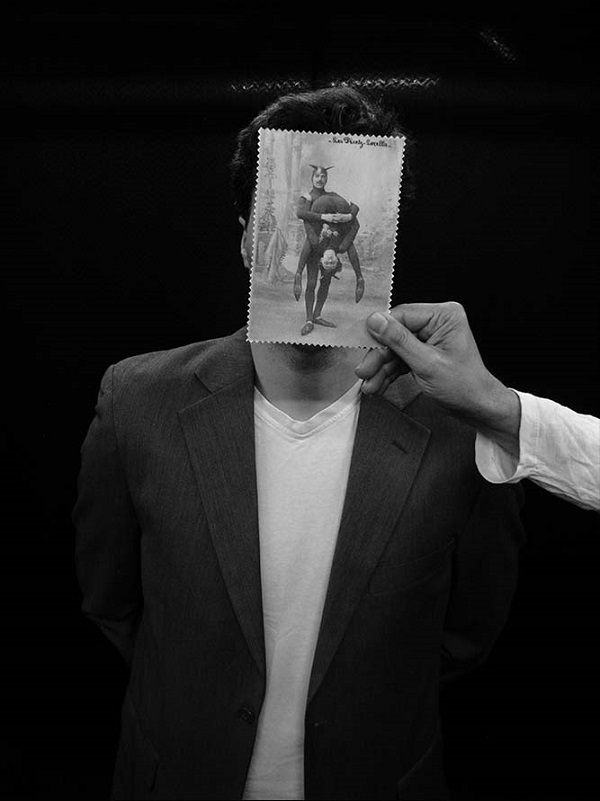
— Touring Company – A dark comedy
6 & 7 August • Xenokrateion Archaeological Museum of Messolonghi
In September of 1922, an American citizen charters “Mimosa”, the ship that will transfer 2,000 Greeks from Smyrna to Piraeus. Three traveling players are among the passengers. A mysterious burlesque comes to life on the deck of “Mimosa”.
The traveling players unfold their performance through storytelling, singing and dancing, challenging the boundaries of tragic and comic. In the middle of the sea, they take us on a journey through the depths of human soul, in its attempt to survive, to find its roots, to attest, to smile, to trust again.
Fiction braids with documentary, in this dark comedy, dedicated to the multiple adventures of the Catastrophe of Asia Minor. Drawing material from the dark impasses of the National Schism, the play reconstructs, in a fictive context, heroes of the period who fought for the uncertain future of integration.
Creative team
Direction, original text, movement: Eleana Georgouli
Music: Thanos Kosmidis
Lighting design: Nikos Sotiropoulos
Sets, costumes: George Trikaliotis
Video: Alexis Zafeirakis
Performers: Gerasimos Gennatas, Maria Floratou, Giannis Askaroglou
Production: ANOIGMA, Arts & Theater
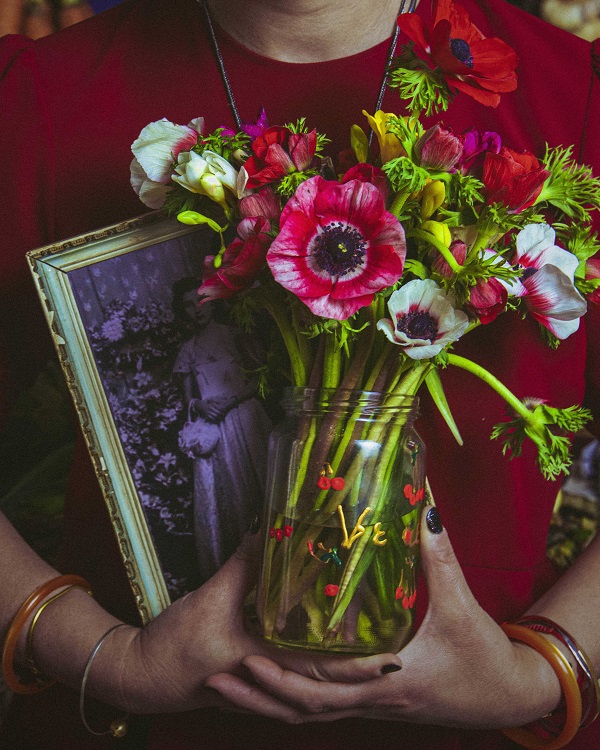
— Common Ground – Those Who Left, Those Who Came
7 & 8 August • Heraklion Archaeological Museum
How people are alike! If we let them be free, they immediately come together and love each other.
Language. A bridge that reaches the heart of the interlocutor and creates at once a bond and a commitment… Eh, and there’s also food! Three generations. People from Asia Minor and Turks from Crete meet at a common ground, the table. They cook. They feel nostalgic.
Nostalgia is an old thing you remember. History is an old thing you don’t remember. My parents named me Ozlem, which means “nostalgia”, for the sake of the motherland they are nostalgic for, and Pelagia for the sake of the sea that unites us…
What is a refugee? Identity? Motherland? What is common ground? Can such whispers be heard in the complexity of political decisions?
A work based on our memories and the narratives wrote down by Maria Tsirimonaki in her book Those Who Left, Those Who Came.
Creative team
Direction, text adaptation: Katerina Damvoglou (Fly Theatre)
Supervising director: Alexandros Michail
Sets, costumes: Maria Kavalioti, Natasha Stamatari
Sound & lighting designer: Robin Beer (Fly Theatre)
Performers: Katerina Damvoglou, Vasiliki Vlachou, Pelagia Ozlem Tsegka
Production: VASILIS DAMVOGLOU
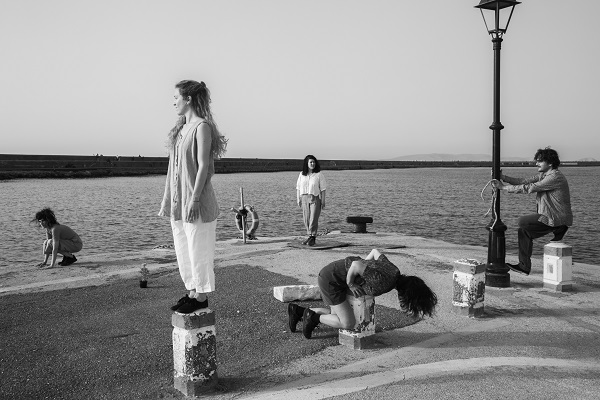
— Limen – A Musical Performance About the Memory of the Future
7 & 8 August • Sea fortress of the Venetian Port of Heraklion (Koules)
The performance aims at capturing and presenting the osmosis of cultures that forever changed the city of Heraklion, focusing on the moment of arrival and reception for some, and on the moment of separation and abandonment for others, at an emblematic part of the port, a fortress that can be both a prison and a refuge.
Refugees of then and refugees of now, descendants of refugees and locals who received them, documents, press articles, literary excerpts, poems, personal testimonies and experiences come into light to tell audiences a story that connects peoples and cultures to this date.
A modern dance of people, consisting of actors, musicians, and “specialists” will attempt to revisit historical events that shaped the city of Heraklion through the stories of its citizens.
Creative team
Direction, dramaturgy, research: Ria Mentilidou
Set, lighting design: Eleni Houmou
Arrangement, music supervision: Manolis Manousakis
Vocal training: Maria Koti
Performers: Aliki Atsalaki, Thodoris Theodoridis, Irida Bami, Eftychia Tsoukala, Chrysoula Flamboutoglou, “Specialist” chorus
Onstage musicians
Cretan lute, Greek lute, singer: Manolis Manousakis
Guitar, bouzouki, singer: Dimitris Pappas
Cretan lyre, lyraki (small lyre), Cretan lute, singer: Stavros Maragkoudakis
Production: BEHOLD
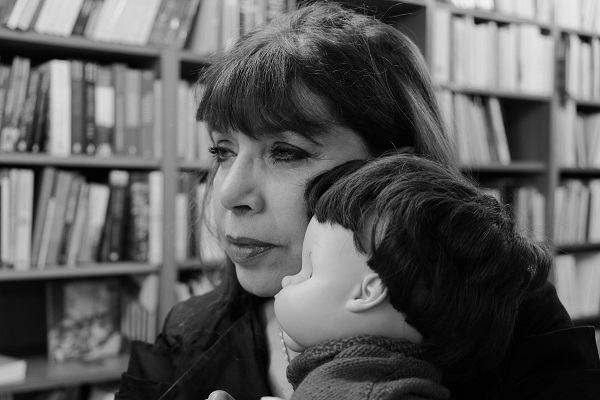
— “There Will Be An Exchange”
8 & 9 August • Ancient Gymnasium of Olympia
Emerging from the bleakness of history, rowing across the river of time, women of different ages and ethnic backgrounds meet here and now. Olympia! Summer 2022!
Dialogic “episodes” dramatise the horror of war, the Exchange of Populations, the collapse of the Great Idea. Monologues narrate little by little, with epic solemnity, the same, almost repetitive history. The performers, all of them anonymous members of a tragic chorus, will unite their voices in the interpolated songs, the festive odes and monodies, and will bring out the theatricality of the “testimonial” narration, arousing emotion in audiences, who will get to look the violence of History straight in the eye.
The refugee narrative is deconstructed and integrated into a historical chamber drama that sometimes seems like an ancient tragedy and sometimes like a musical Requiem.
Creative team
Research, dramaturgy, direction: Roula Pateraki
Musical composition: Niki Karageorgou, Maria Kourmouli
Production director: Alexandros Davris
Actors, performers: Dimitra Hatoupi, Filareti Komninou, Kosmas Fondoukis, Nadia Mourouzi, Irini Karagianni, Evanthia Kourmouli, Roula Pateraki
Singers: Maria Kourmouli, Irini Karagianni
Production: The Greyblue Gap and MetaTheatro
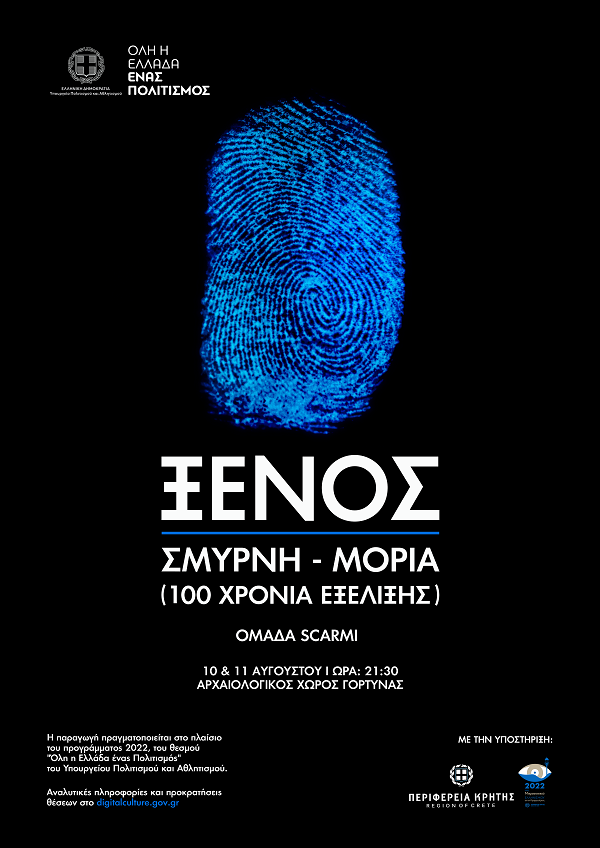
— Xenos
10 & 11 August • Archaeological site of Gortyna, Heraklion
Philoxenia / hospitality in ancient Greece was a sacred obligation and an unconditional right. Since then and until now, the phenomenon of forced mass displacement of populations is not unprecedented. However, in recent years the way we deal with this phenomenon is unprecedentedly harsh.
How things have changed over time in Greek society? What did the refugees experience on their way from Asia Minor to Greece and how did they cope? How were they received by the natives? How did the Greek government deal with them? And on the other hand, how are the refugees treated today by the Greek government and the Greek citizens?
A musical narrative theatrical performance inspired by the testimonies of refugees of then and now, in combination with ancient texts, literary texts, poetry, audio documents, physicality and live music.
Creative team
Conception, performer, direction: Eleanna Apostolaki
Music composition, performer: Michalis Flouris
Music performer: Christoforos Pitsidimos
Sound design: Konstantinos Georgiadis
Lighting design: Aris Tsamis
Choreography: Nefeli Ktistaki
Costume editing: Ourania Skordalou
Videos, photos, poster design: Obscura Lab
Production: ANTANAKLASEIS
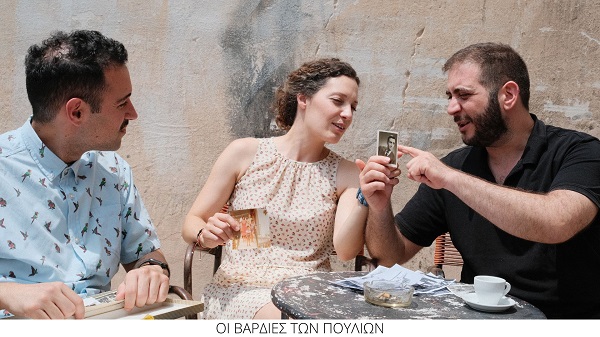
— Bird Shifts
17 & 18 August • Castle of Chios
A performance based on the novel of Giannis Makridakis and the journey of uprooting and moving to a new homeland accompanied by its sounds and images.
A shipwreck between Chios and Çeşme sets in motion the unfolding of a multifaceted story inspired by family narrations. The story attempts a deep introspection to memory and perishability.
Anestis, the castaway, struggles to put his past in order and take decisions about his present. His homing pigeons are trained to return to their “homeland” ignoring the borders and linking the past to the present. Images and sounds from the route Smyrna to Chios alternate and illuminate a multifaceted memory journey.
Generations of pigeons together with generations of people are moving in parallel. Their direction is constantly changing as it is determined by the History and many coincidences.
Creative team
Text: Giannis Makridakis
Direction, sound design: Stavros Giannouladis
Dramaturgy, director’s assistant: Nefeli Maistrali
Costumes: Martha Foka
Video design: Apostolis Koutsianikoulis
Movement: Panos Topsidis
Performers: Thanasis Zeritis, Harry Kremmydas, Aristea Stafylaraki
Production: 4 FRONTAL
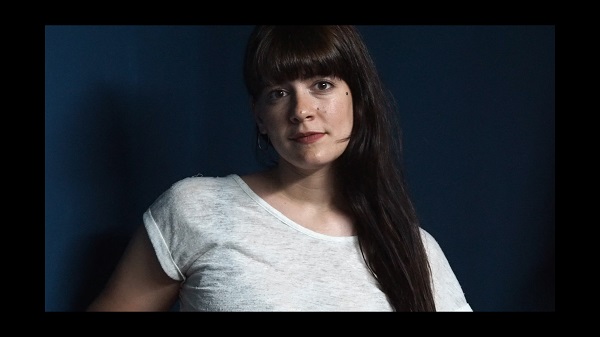
— Freedom to Die
19 & 20 August • Heptapyrgion, Thessaloniki
On 15 November 1922 D. Gounaris, N. Stratos, P. Protopapadakis, N. Theotokis, G. Baltatzis and G. Hadjianestis were sentenced to death for high treason as the main culprits for the Asia Minor Catastrophe and were executed at Goudi. In the morning of that same day, the President of the Extraordinary Military Tribunal, Al. Othoneos, reads out the verdict and withdraws without saying “the trial is concluded”. The trial of the six was never concluded technically.
Freedom to Die is the trial and reenactment of those events that followed the verdict and those that were hurriedly kept secret “to convince public opinion that all lawful procedures were abided by”.
Nowadays, how many trials and what kind of trials are set up “to convince the public opinion”? How many real events are disguised as fictitious ones and vice versa? And how does each one of us perceive and interpret the world surrounding us?
Creative team
Concept, direction: Electra Ellinikioti
Set, costumes: Dimitra Liakoura
Music, sound design: Grigoris Eleftheriou
Lighting: Ismini Starida
Collaborating director: Terpsi Kontargyri
Scientific consultant: Manos Lambrakis
Performers: Electra Ellinikioti, Maria Mamouri, Iro Sofia Smyrnioudi, Anna Maria Papaioannou
Production: Theros Theatre Company
— A Matter of Necessity
20 & 21 August • Ancient Messini
The performers focused their research on narratives that have been rescued from the Asia Minor Catastrophe that took place in 1922 and all the domestic traditional elements that can be found nowadays in Greek Culture. Having as a starting point these findings a question arose: What kind of things can be saved by a refugee while escaping a city covered in flames? The most necessary.
In this performance, Narration and Music come together and spotlight the necessity both of the intangible and material goods that refugees of 1922 managed to bring with them.
Theatre of Research meets the Art of Storytelling and new questions arise: What would happen if we faced a similar disaster? What will we manage to carry with us while leaving our homeland? What do today’s refugees manage to carry with them? Which things are the most essential for the modern human being? Where does deep richness really live? Inside us?
Creative team
Idea, playwright, performance: Lydia Vyrla, Petros Malamas
Sets, costumes: Angelos Mentis
Lighting design: Perikles Mathiellis
Sound design: Yiannis Paxevanis
Production: K.A.NE. – Social Youth Development
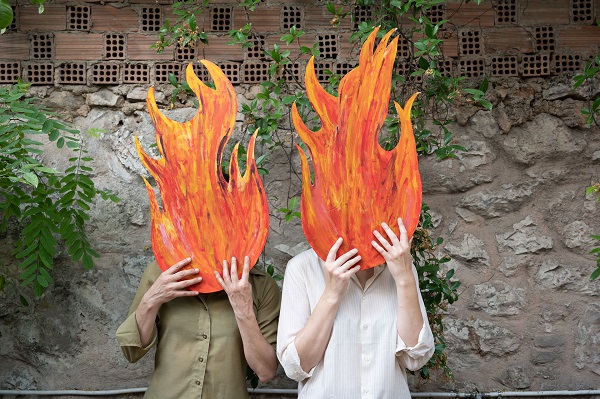
— Aivali, My Homeland
20 & 21 August • Archaeological Museum of Isthmia
Fotis Kontoglou’s book is a collection of stories published in 1962 and a nostalgic reference to the backdrop of the author’s childhood, in early-20th-century Aivali, a small city hidden among the straits and coasts of the East.
After a careful consideration of these texts, we selected those parts that engage in a meaningful conversation with the mass flights of populations of the previous century and at the same time with the refugee and migrant crisis of today. We explore Kontoglou’s language and the path towards a deeper understanding and a more active participation in the “strange currents” created among people.
Aivali, My Homeland is a performance created by four performers who, through the stories of various protagonists of a wonderful collection of short stories, reveal these characters by placing them in a common time and place, while composing a strange, common story.
Creative team
Text: Fotis Kontoglou
Direction, music score: Tonia Ralli
Dramaturgy: Giorgos Simonas
Movement: Kiki Baka
Performers: Kiki Baka, Giorgos Simonas, Tonia Ralli
Production: Nostalgia – Artistic Creation Workshop
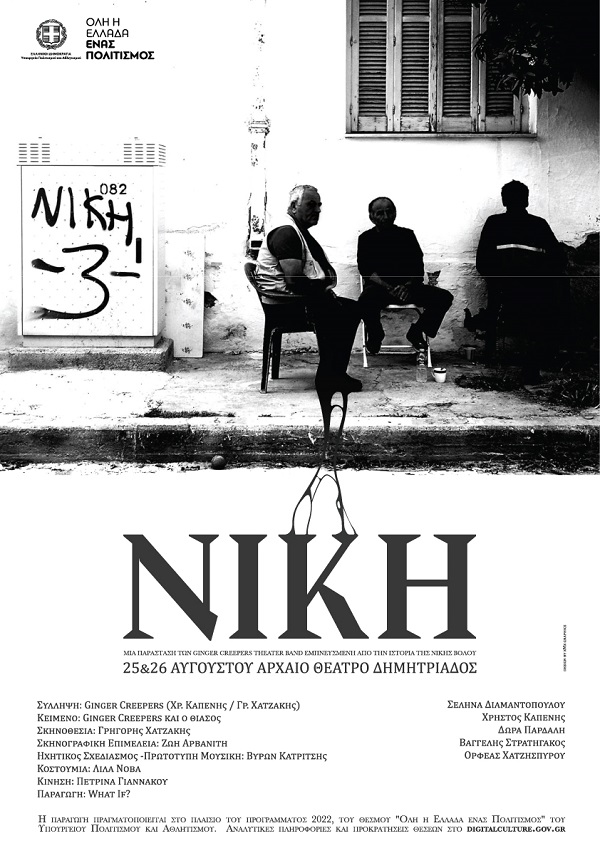
— Niki
25 & 26 August • Ancient Theatre of Demetrias
After the Smyrna Catastrophe, around 12,000 refugees from Ionia, Thrace and Pontus arrived at the city of Volos. In 1923 the creation of a refugee settlement began, which was later called Nea Ionia (New Ionia) and evolved into a small community. Most of the refugees were working in tobacco factories, while they soon began establishing football clubs. One of them was Niki Sports Club, whose story begins in 1924.
Part Α: Dressing-Room
In the in-between space of the team’s dressing-room, we follow the journey of the refugees and their arrival at Volos, their integration into the society and the creation of Niki Sports Club.
Through the use of complicated technological media, multiple sound sources, contemporary electronic music inspired by traditional Smyrna songs, speech and movement, we follow the journey through the sea until the first couple of years in the new land.
Part Β: The Match
In the football field now, the struggle for survival, the competition with the native people, the promotion to the premier league and the integration into the new environment, is depicted through a choreographed football match along with usage of multiple cameras and site-specific projections as the court fills with fans, that is, the descendants that interact with the stage action.
Creative team
Concept: Ginger Creepers (Grigoris Hatzakis / Christos Kapenis)
Script: Ginger Creepers and the troupe
Direction: Grigoris Hatzakis
Sets: Zoi Arvaniti
Costumes: Lila Nova
Choreography: Petrina Giannakou
Music, sound design: Byron Katritsis
Assistant director: Kiki Barbavasiloglou
Performers: Selina Diamantopoulou, Christos Kapenis, Dora Pardali, Vangelis Stratigakos, Orfeas Hadjispyrou
Production: WHAT IF?
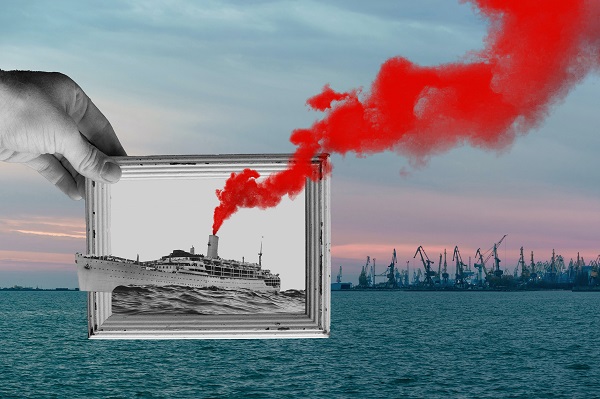
— I Remember
26 & 27 August • Ancient Messene
With small statements, we make a map of our soul. A list of memories, a list of the past. A collection of materials and images in a seemingly random order. A collage, an assembly of sentences that all begin with the phrase: I remember…
NOITI GRAMMI theatre group, with the promenade performance I Remember, proposes a dialogue between the Performing Arts and applied history, historical walks, the concept of a cultural promenade in the historical sites, and an experiential way of understanding the memory of every refugee in a world of turbulence and upheaval.
Two guides-performers attempt a tangible return to the past. They will lead a group of travellers on the routes of ancient topography, with the sound of voices being the supporter of collective memory. This tour will create sporadic and fleeting episodes of unexpected memories, in the form of a pre-recorded soundscape, which will be reproduced through the use of headphones.
Creative team
Concept, direction: Olga Pozeli
Texts & editing of interviews: Sakis Serefas
Associate director: Tasos Karakiklas
Studio & audio editing: Fabrika Music Studio (Stefanos Konstantinidis, Nassos Sopilis)
Guides-performers: Olga Pozeli and Tasos Karakiklas
Actors (on the recording): Isabella Kyriazi, Olga Pozeli, Lambros Papageorgiou, Konstantis Misaras
Production: NOITI GRAMMI
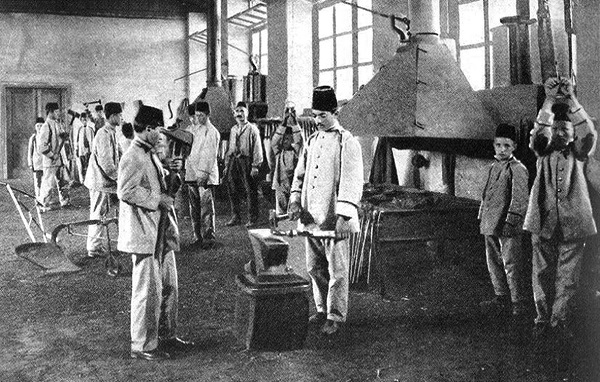
— Islahane
5 & 6 September • Multifunctional Cultural Space “Islahane”, Thessaloniki
The Simio theatre company, using the unique contribution of Islahane to the history of the Greek state and Thessaloniki as a connective tissue, suggests a double approach, with 1922 always at its centre.
The work revolves around 10 short theatrical pieces that have the Islahane as their central theme. Created by very important writers and performed by acclaimed performers, actors, disabled dancers, dancers, opera singers, the works run through the history of adjacent peoples, religions, consciences, families, orphans, Muslims, Christians, metalworkers, people of labour, etc.
The celebration of the bicentennial of the Greek Revolution, last year, and of the centenary of the Asia Minor Catastrophe, this year, is an opportunity for evaluation and redefinition. The plays that will be presented in the exhibition, illuminate aspects of Greek social reality.
Creative team
Direction, dramaturgy: Nikos Diamantis
Scientific consultant: Eleni Kyramargiou
Curator of art exhibition: Fivos Sakalis
Visual artists: Dimitrios Antonitsis, Giorgos Lappas, Eva Stefani
Sets, costumes: Assi Dimitrolopoulou
Original music: Dimitris Maramis
Choreography: Konstantinos Mihos
Photographer: Stavros Habakis
Video: Michail Mavromoustakos
Public relations: Aris Asproulis
Assistant director: Danai Papoutsi
Authors, original texts: Akis Dimou, Isidoros Zourgos, Mihalis Makropoulos, Glykeria Basdeki, Sophia Nikolaidou, Giorgos Skabardonis, Tsimaras Tzanatos, Stelios Xatziadamidis, Christos Chrissopoulos, Giannis Chrisoulis
Actors, performers: Aspa Anogiati, Andreas Kolisoglou, Ioanna Makri, Lito Messini, Peris Michailidis, Konstantinos Mihos, Danai Beri, Mania Papadimitriou, Danai Papoutsi, Omiros Poulakis, Vagelis Rokos, Elena Topalidou
Production: Simio Theatre Company
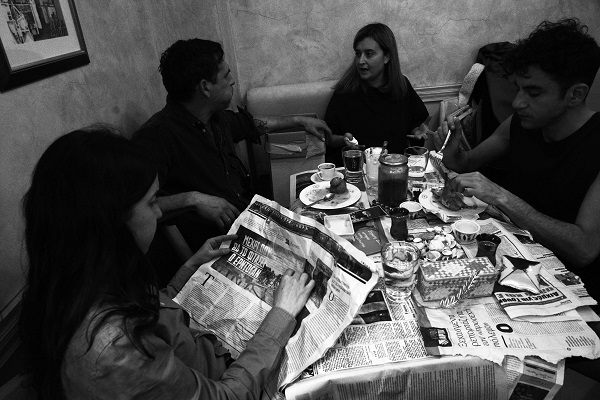
— Headlines
7 & 8 September • Monastic Complex of Nea Flogita
Four actors sitting around a table. The feast begins. Their food is newspapers, their laptops and mobile phones. They read and comment on the headlines of the Greek, Turkish and Cypriot press from 1922 to this date.
How does the Press work? As a propaganda mechanism or as an information medium? How is the event presented, as a defeat or as a victory? And what about refugees? Are they presented as people or as numbers? Is the national interest a Need? How do newspapers treat war, destruction, the uprooting, expulsion, and settlement of refugees?
What are the references to the Event throughout the years? How have the relationships among the three countries evolved? How have they been shaped?
Creative team
Dramaturgy, direction: Ilias Vogiatzidakis, Theano Metaxa, Ioanna Nasiopoulou
Dramaturgy consultants: Martha Frintzila, Stella Papakonstantinou
Translation from Turkish into Greek: Stella Papakonstantinou
Stage set: Spyros Angelopoulos
Lighting designer: Sofia Adamopoulou
Music supervision: Baumstrasse team
Performers: Spyros Angelopoulos, Ilias Vogiatzidakis, Theano Metaxa, Ioanna Nasiopoulou
Production: DROMOS ME DENTRA THEATRE COMPANY
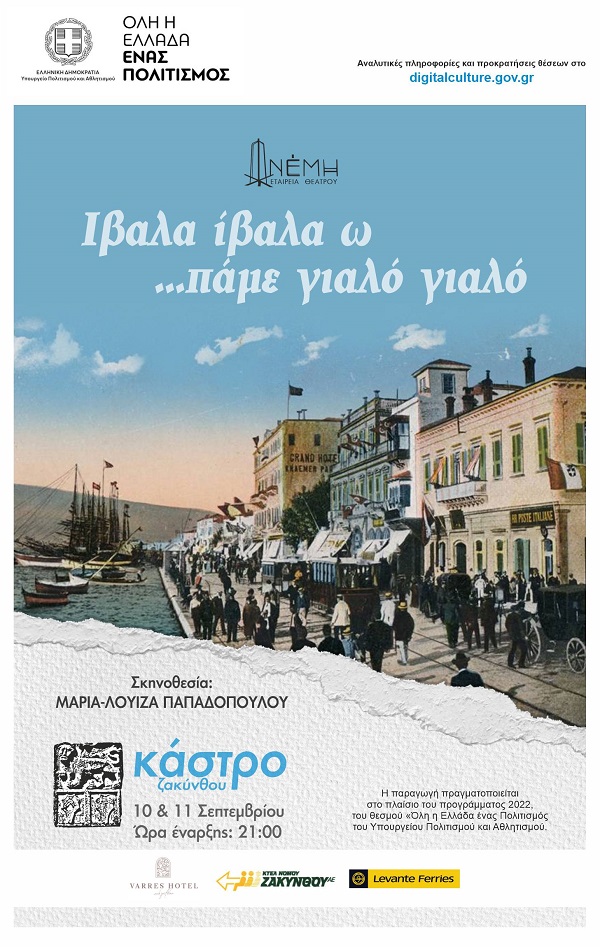
— Ivala Ivala, Oh, We Sail Along the Coast
10 & 11 September • Castle of Zakynthos
An ensemble of actors, a modern “chorus” that creates a ritual-like atmosphere, attempts to compose a musical theatre performance with narratives about Smyrna, the diamond of the East. How a vibrant and multicultural city is vanished by nationalism, imperialistic interests, hatred and immodesty.
Narrations, pieces of history of Asia Minor, recited like ancient Greek chorus create pictures of the catastrophe of Smyrna. These narrations and comments are disrupted by real personal testimonies that weave the painful bloody web of human lives. By borrowing elements from the Ancient Greek tragedy such as hubris, atis (ate), nemesis and the darkness caused by illusion finds fertile ground in the deep and unhealed trauma.
This relentless shifting fortunes of the war, the nemesis affects and changes the tragic fate of Christians of Asia Minor.
Creative team
Direction: Maria Louisa Papadopoulou
Dramaturgy: Maria Louisa Papadopoulou & the team
Historical consultant: Michalis Varlas
Dramaturgy consultant: Evangelos Mavroudis
Sets, costumes: Assi Dimitrolopoulou
Costume seamstress: Gianna Kouri
Sounds: Dimitris Iatropoulos
Lighting: Spyros Malapetsas, Apostolis Zontos
Programme, poster design: Sakis Fournogerakis
Performers: Leonidas Mikropoulos, Odysseia Bouga, Maria Louisa Papadopoulou, Eleni Makri, Tassos Rodovitis
Production: ANEMI
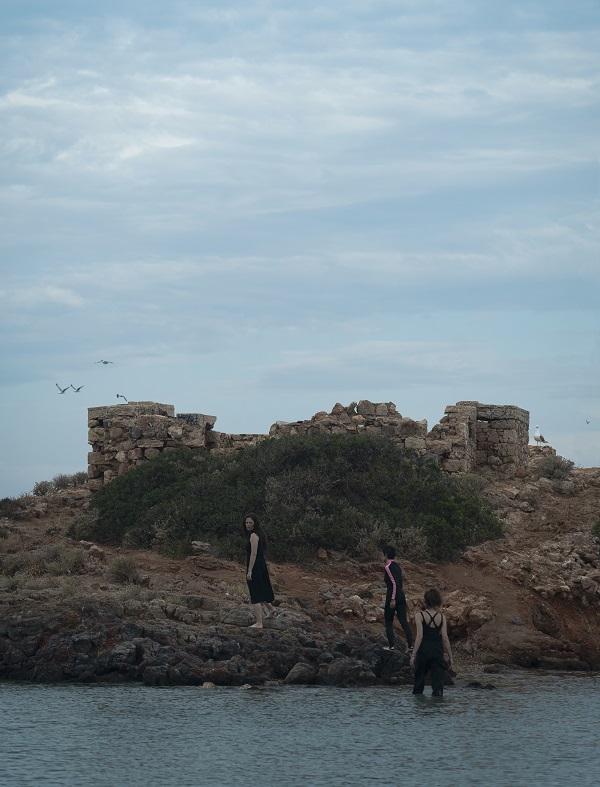
— Ocean
14 & 15 September • Spinalonga
A performance that attempts to bring out the abrupt and violent process that turned Asia Minor refugees into infectious agents and a danger for the society. Asia Minor refugees were exiled, abandoned, or they died in quarantine hospitals that were set up in various regions of Greece.
The performance treats this historical phenomenon in a multifaceted way using contemporary scientific approaches: it explores –among other things– the power structures that cause it, its social and political considerations, and the concepts of morbidity / normality, “purge”, threshold, transition, and marginalisation as records of historical / social connotations…
The dramaturgical material is composed of real life testimonies and original fiction texts. The work is performed in an open space and at sea. It focuses on the body, its movement, the songs, sounds and voices of the actors, who blend with the audience from the beginning to create a community.
Creative team
Direction: George Sachinis
Idea, texts, dramaturgy: Evi Prousali
Research: Theofilos Diamantis
Art installation, sets, performer: Alexandros Kaklamanos
Composer, musician, performer: Thanos Kosmidis
Choreography, performer: Eirini Alexiou
Costumes: Anna Magoulioti
Performers: Miltiadis Fiorentzis, Eleana Georgouli, Zoi Dimitriou, Evi Prousali, Katerina Protonotariou
Production: Ohi Pezoume
MUSIC
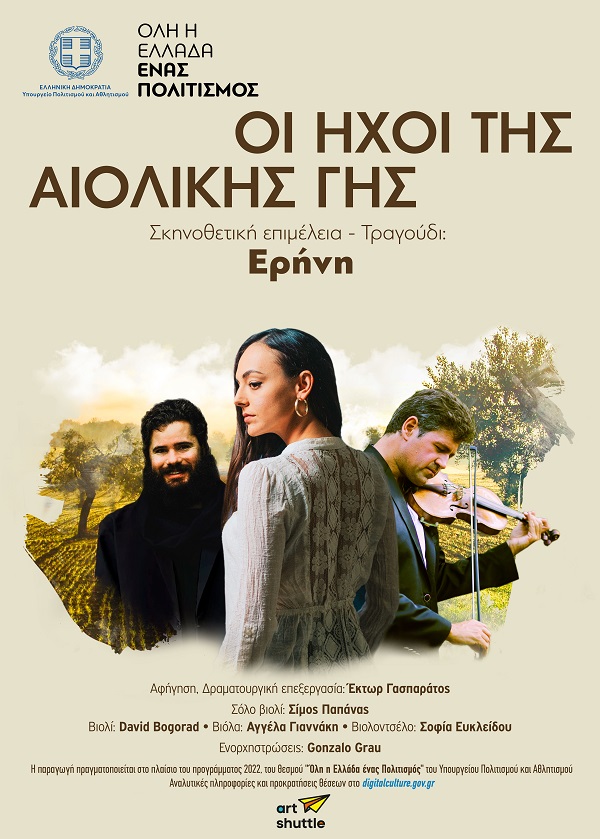
— The Sounds of the Land of Aeolia
17 & 18 July • Fortress of Palamidi, Nafplion
Internationally acclaimed performer Erini presents an original music-theatre performance inspired by Ilias Venezis’ emblematic literary work, The Land of Aeolia.
Actor Ektoras Gasparatos in the role of young Petros, performs excerpts from the book, conveying images and situations of that era. Erini, accompanied by a classical string quartet with the participation of the permanent Concertmaster of the Thessaloniki State Orchestra, Simos Papanas, enrich the novel with much-loved melodies from Asia Minor, arranged by Grammy Award Nominee Gonzalo Grau.
The performance conveys the happy life of the Greeks of Asia Minor before the Catastrophe, but also the tragedy of the uprooting that still lives in the hearts of contemporary Greeks.
Creative team
Direction, singing, selection of texts: Erini
Arrangement: Gonzalo Grau
Sound editing, sound engineering: Makis Drakopoulos
Lighting: Kostas Triantafyllou
Actor: Ektoras Gasparatos
String quartet
Violin I, soloist: Simos Papanas
Violin II: David Bogorad
Viola: Angela Giannaki
Violoncello: Sofia Efklidou
Production: ArtShuttle
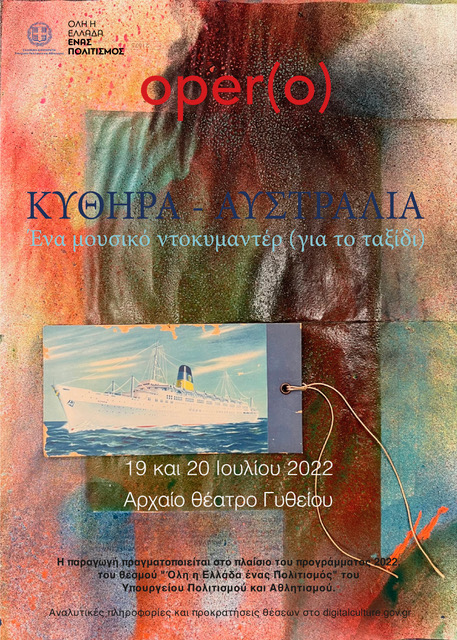
— Kythera – Australia
19 & 20 July • Ancient Theatre of Gythio
A musical documentary – a “farewell ceremony” of people leaving their homelands to unknown destinations.
Kythera is a special place, whose modern history has been defined by migration and refugee flights. The performance is a compilation of stories, songs, photographs and other material from the island’s local population. It was on this material that the musical documentary – a “farewell ceremony” was based.
Kythera – Australia is a dirge-like original musical work centred around the human voice that offers the redemptive recollection of the relationship of people with their land, and the separation from it. A belated ceremony of relief and memory. A big timeworn Goodbye.
Creative team
Artistic direction, dramaturgy, voice: Erifili Giannakopoulou
Musical composition, live electronics, voice: Nikos Galenianos
Stage direction, narration, voice: Eirini Georgalaki
Accordion, live electronics, voice: Stamatis Pasopoulos
Sound engineering: Brian Coon
Poster design: Manolis Charos
Production: OPER(o)
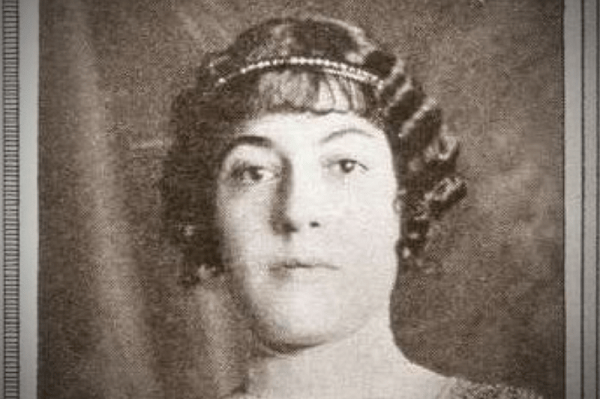
— Female Refugee
21 & 22 July • Ancient Theatre of Gitana
Island of Kos, the journey begins in 1890, in the homeland of the great Greek singer, Marika Papagika.
In 1913 she follows her parents who migrate to Egypt and two years later to the USA, where she settles and lives to the end of her life, in 1943. New York is the starting point of the great career of this special singer, who recorded more than 200 light music, Smyrnaean, folk and rebetiko songs. Her reputation spreads and her songs are loved through her records that reach every corner of the earth.
A music-theatre benchmark performance in honour of the legendary Marika, the first among all other important Greek female singers in the USA, whose life and creative trajectory have acquired the dimensions of a true legend.
Creative team
Artistic director, arrangement: Andreas Katsigiannis
Text editing: Thomas Korovinis
Director: Thanasis Zeritis
Sound engineering: Giannis Roupakas
Singing: Aspasia Stratigou
Narrator: Nefeli Maistrali
Estoudiantina of Nea Ionia
Piano: Filippos Retsios
Oud, mandolin: Kostas Gedikis
Violin: Sotiris Margonis
Double bass: Kostas Konstantinou
Guitars: Apostolos Valaroutsos
Accordion: Dimos Vougioukas
Percussion: Periklis Katsotis
Santur: Andreas Katsigiannis
Production: DIODOS POLITISTIKI KINISI
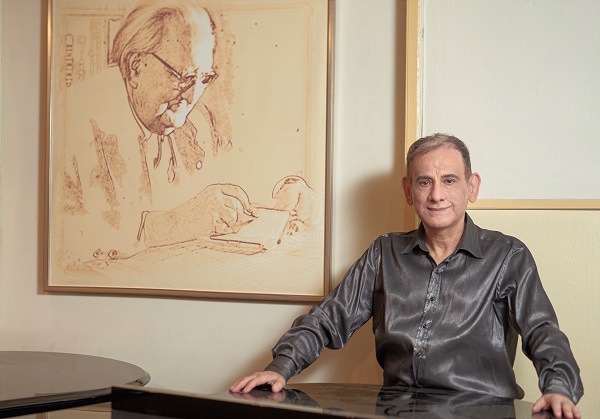
— Of the Heart and of the Mind
22 & 23 July • Archaeological Museum of Thebes
The three artists offer a musical and poetic presentation of the relationship between Kalomiris and Palamas, a rare phenomenon of osmosis between two leading exponents of the Greek letters.
In his autobiography, the great composer from Smyrna, Manolis Kalomiris, recalls his life against the backdrop of Asia Minor, and also how he had dreamt since childhood to become one day the shaper of Greece’s musical language – a “Palamas” of contemporary Greek music. This music-theatre rehearsed reading is based on Tina Malikouti’s idea to combine the composer’s piano works with K. Palamas’ poem “The Twelve Lays of the Gypsy”, which had left a defining mark on M. Kalomiris’ entire artistic career, capturing the nature of the modern Greek soul.
Smyrna, Constantinople, Vienna, Athens. Images from the life of a cosmopolitan Greece spread over the East and the West.
Creative team
Concept based on an idea of Tina Malikouti
Text processing, editing: Nena Venetsanou
Set, costumes: Maria Karathanou
Lighting: Zoi Molyvda-Fameli
On stage
Narrator: Nena Venetsanou
Piano: Tina Malikouti
Actor: Vasilis Vlahos
Production: ALEXANDRIA

— Smyrnaean Minore
28 & 29 July • Ancient Europos
A musical journey on the occasion of the centenary of the Asia Minor Catastrophe, featuring Glykeria, the most important singer of Smyrnaean and traditional songs.
Glykeria and her company on stage will take us on a journey to the musical paths of the East. From the sea of Smyrna to Constantinople and Bosporus, and from the Cappadocian market to the Greek ports and inland, where great composers from Asia Minor ended up as refugees, bringing along such songs as: “Apo xeno topo”, “Tzivaeri”, “Elli”, “Smyrnia”, “O Memetis”, “Hariklaki”, “T’ apofasisa”, “Armenitsa”, “I Xaveriotissa”, “Karotseri trava”, “Xerizomos”, “Kapia mana anastenazi”, “I Smyrni mana kaigete”, etc. Alongside her, singer Dimitris Kontogiannis and a multi-member orchestra.
With music supervision by composer and maestro Stelios Fotiadis.
Creative team
Singing: Glykeria, Dimitris Kontogiannis
Recorded narration: Leonidas Kakouris
Dancers: Local dance group
Orchestra: Eight-member orchestra of traditional instruments
Sound engineer: Nikos Rountos
Artistic director: Stelios Fotiadis
Musicians
Bass: Polykleitos Pelelis
Percussion: Petros Pelelis
Guitar: Kostas Fotiadis
Bouzouki: Giorgos Rokas
Violin: Manolis Kottoros
Qanun: Sakis Xenoudis
Accordion: Dasho Kurti
Production: ENERGIES TECHNIS KAI POLITISMOU 2020
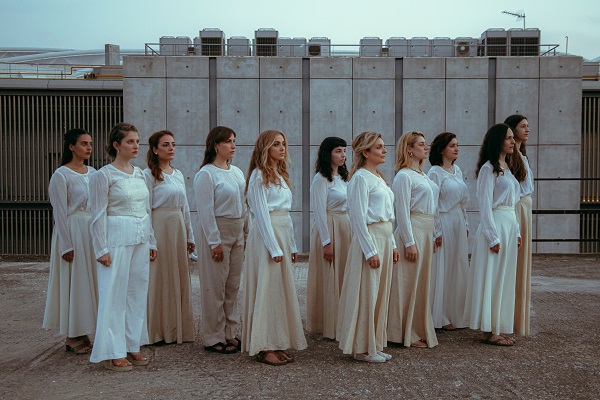
— Across
30 & 31 July • Temple of Apollo, Karditsa
The performance is set against the backdrop of the Asia Minor Catastrophe. Choristers, as passengers of a boat sailing in the Eastern Aegean Sea and heading to the Greek coasts, narrate –each one in their own musical language– memories of their past and homelands.
Rich and poor, old and young, daughters and mothers, some from Constantinople and Smyrna, others from Cappadocia, Pontus and the coast, one by one they all share known and unknown aspects of the everyday life they’re leaving behind.
In an abstractly natural space and using bodies and voices as a vehicle, the boat turns into an “arc” saving diverse musical references associated with a powerful common experience: the painful migration, the uprooting, the journey in search of a better life. The anticipation for the new land, the new motherland, a second chance at life.
Creative team
Artistic director: Marina Satti
Direction, research, dramaturgy: Giannis Panagopoulos
Score, music supervision: Antonis Apergis
Musical training, musical direction: Eirini Patsea
Choreography, movement: Markella Manoliadi, Stavros Ikbal
Costumes: Anna Sapka
Lighting: Sakis Birbilis
Sound design, sound engineering: Giannis Voulgaris
Onstage musicians: Antonis Apergis (guitar), Alexandros Fragoulatzis (percussion)
Performers: CΗÓRES: Anthi Efstathiou, Dimitra Giakoumaki, Maria Delaporta, Irini Zoutsou, Georgia Theologidou, Tonia Lappa, Emilia Papapetrou, Danai Stergiou, Eleni Tasopoulou, Eleni Chrysikou
Production: WOMO
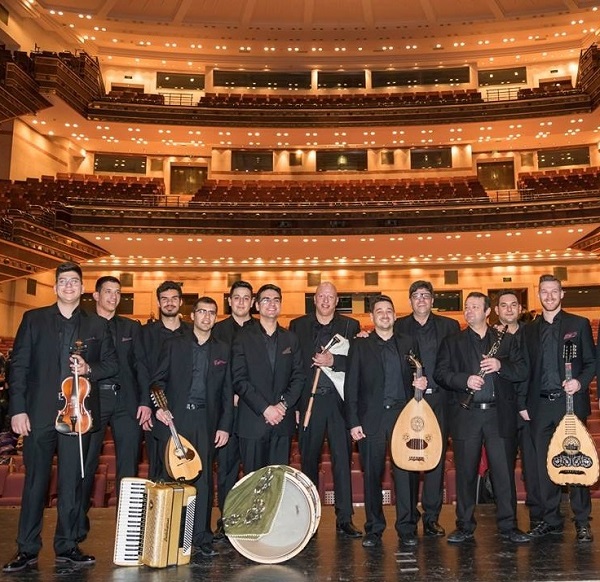
— Memory of Smyrna…
1 & 2 August • Ancient Theatre of Dion
In a directed performance of music and dance, the one hundred performers together with the orchestra and “Ionia” choir, the soloists, the dancers and the narrator meet the exceptional groups “Anatoliki Romilia”, “Horostates” and “Alismonites Patrides” Larissa, dressed in their authentic traditional costumes.
They take us a hundred years back to Smyrna with its sounds, colours, aura and culture. Smyrna was a multidimensional city that flourished but was finally destroyed and its residents give us a strong message of life and encouragement starting up new lives together in various places in Greece, such as Nea Ionia in Volos.
The great grandchildren of these refugees through performance of songs and dances, full of light and energy, bring us a message of hope, joy, life and promise for a better future.
Creative team
Direction, script: Μaria Thomopoulou
“Ionia” Choir
“Ionia” Orchestra
Conductor: Cornelia Francogianni
Singers: Sofia Papazoglou, Thodoris Kotonias
Narrator: Alexandros Zachareas
Artistic Director of “Ionia” Orchestra: Nektarios Demelis
With the participation of the dance groups: “Anatoliki Romilia”, “Horostates” and “Alismonites Patrides” Larissa
Production: IONIA (orchestra) – VOLOS
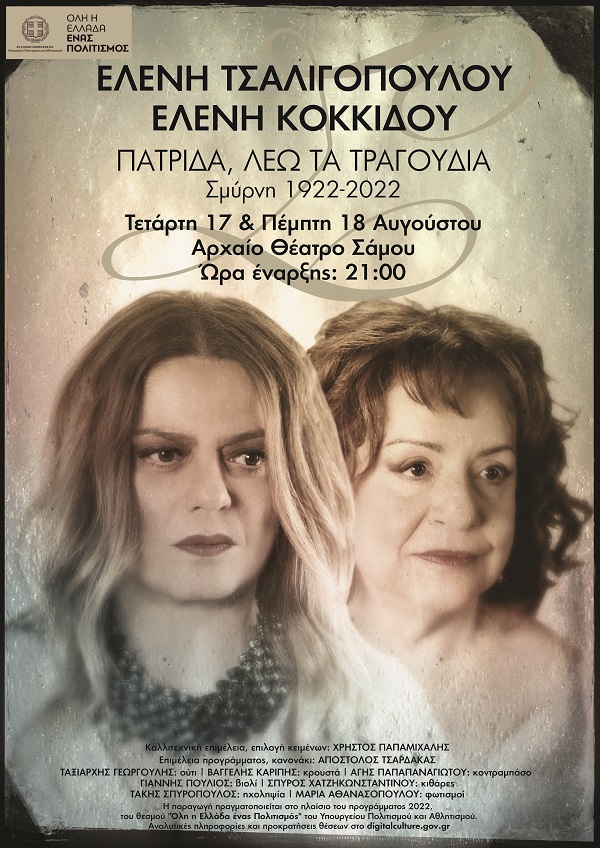
— I Call These Songs My Motherland
17 & 18 August • Ancient Theatre of Pythagorion, Samos
Singer Eleni Tsaligopoulou, actress Eleni Kokkidou and six virtuoso musicians invite us to join them on a journey through notes and words in the beginning of the 20th century, a journey full of the cosmopolitan atmosphere of the city that will always be a reference point in modern Greek history.
Smyrna, in all its legendary beauty and with its tragic ending, will always be the most loved “lost motherland” of the Greeks.
One hundred years later, on the occasion of the sad anniversary of the Asia Minor Catastrophe, Eleni Tsaligopoulou performs timeless songs from Smyrna and of composers of the time, while Eleni Kokkidou narrates testimonies of the uprooting and excerpts from relevant works of Greek literature. A concert full of history, dedicated to the memory that calls these songs its motherland, by two leading artists.
Creative team
Programme curated by: Apostolos Tsardakas
Art direction, selection of texts: Christos Papamichalis
Musicians
Oud: Taxiarchis Georgoulis
Percussion: Vangelis Karipis
Double bass: Agis Papapanagiotou
Violin: Giannis Poulios
Qanun: Apostolos Tsardakas
Guitar: Spyros Hadjikonstantinou
Featuring: Eleni Tsaligopoulou, Eleni Kokkidou
Production: FILOI TOU RADIOFONOU KAI TOU MOUSIKOU POLITISMOU – ARTERO CULTURA
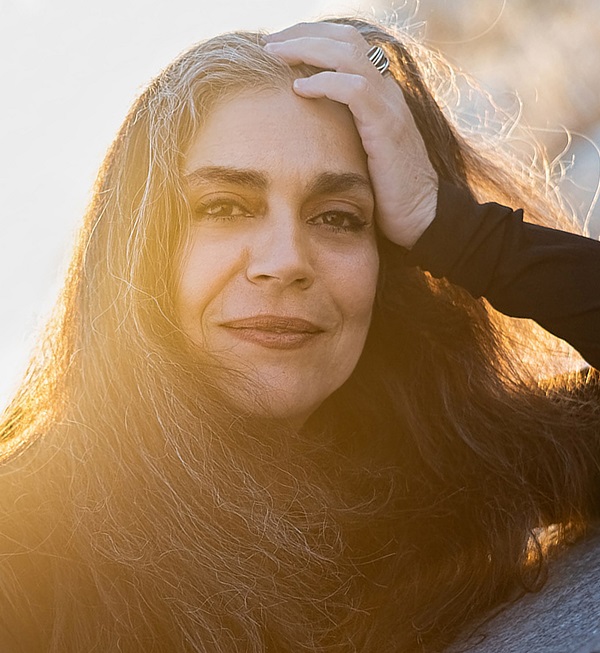
— The Ritual of Amane
19 & 20 August • Ancient Abdera
This musical performance involves a structured interactive improvisation (stemming from the form of the amane itself), which is connected to the Greek poetry of the ’30s.
The music is inspired by the historical / traditional amane but also provides space to more modern and free musical experimentations. The aim is to emphasise the fact that this is not a music tradition in danger of extinction but a potentially living form, which can function in the present even outside the context of its historical frame of reference.
Respectively, regarding the lyrics, the form of amane will also be preserved, but, instead of using popular verses, this musical performance will use excerpts from 1930s “art” poetry.
Creative team
Idea, concept: Evgenios Voulgaris
Excerpts selection: Evgenios Voulgaris, Vasilis Vantarakis
Supervising director: Aspasia Lykourgioti
Actor, performer: Savina Yannatou
Musicians
Yayli tanbur, oud, vocals: Evgenios Voulgaris
Ney: Harris Lambrakis
Qanun: Ourania Lambropoulou
Viola da gamba: Andreas Linos
Production: Creativa
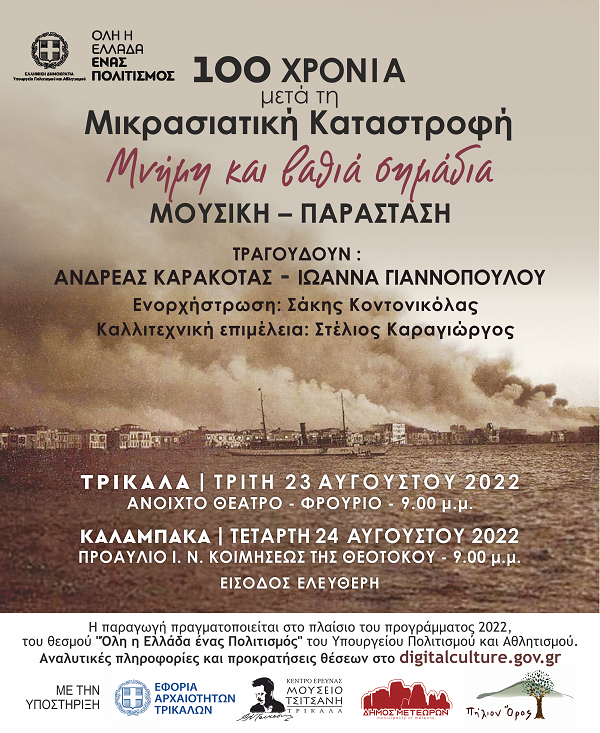
— Memory and Deep Marks
23 & 24 August • Castle of Trikala (23/8), Courtyard of the Byzantine Church of the Dormition of Virgin Mary in Kalampaka (24/8)
On the occasion of the centenary of the Asia Minor Catastrophe, this concert will be based on two emblematic works of Apostolos Kaldaras released in 1972-73, Byzantine Vesper and Asia Minor.
Apart from Apostolos Kaldaras’ songs, the concert will also feature covers of emblematic songs from the countries of origins of present-day refugees. The set surrounding the orchestra consists of five large paintings by Kostas Kaldaras inspired by the 2015 refugee crisis, while it will also include screenings of historical documentary material and photographs having as their theme refugees over time – a selection made in collaboration with the Photographers of Trikala Team.
Andreas Karakotas and Ioanna Giannopoulou sing accompanied by a seven-member orchestra. Arrangements are by Sakis Kontonikolas.
Creative team
Song covers, arrangement: Sakis Kontonikolas
Artistic curator: Stelios Karagiorgos
Performers: Andreas Karakotas, Ioanna Giannopoulou
Production: Pelion Oros
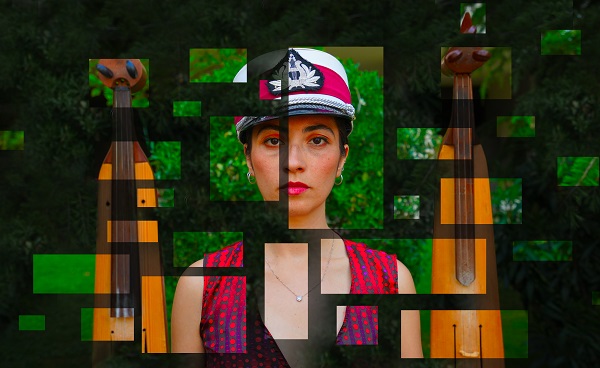
— Pontic Cantada – TETTTIX
24 & 25 August • Old Fortress of Corfu
The cicada (tettix in ancient Greek) is by nature associated with the process of transformation when it turns from a nymph into an adult. In the movement-based music performance Pontic Cantada the contemporary music ensemble TETTTIX (with a triple t) presents its own imaginary version of the forced “transformation” of a society.
After the Asia Minor Catastrophe and the Treaty of Lausanne, a part of Pontic Greek refugees settled in Corfu. The mingling of populations, mutually influencing one another, forced the two parties to reconsider their beliefs and habits.
Through drama and satire and in a quasi-vaudevillian mood, TETTTIX and Eugenia Demeglio (choreography / movement) transform the kemençe and the mandolin into a new entity, in a context where otherness evokes reflection and stigmatisation and is at the same time refreshing, invigorating and inspiring.
Creative team
Movement, stage direction: M. Eugenia Demeglio
Lighting: Eleni Choumou
Composition, coordination: Nikos Ioakeim, Stamatis Pasopoulos
Singing: Natasa Tsakiridou, Amalia Tsekoura
Musicians: Rhea Pickios (bassoon), Katerina Konstantourou (keybords), Charis Pazaroulas (bass guitar), Panagiotis Ziavras (percussion)
Production: EN EXALLO
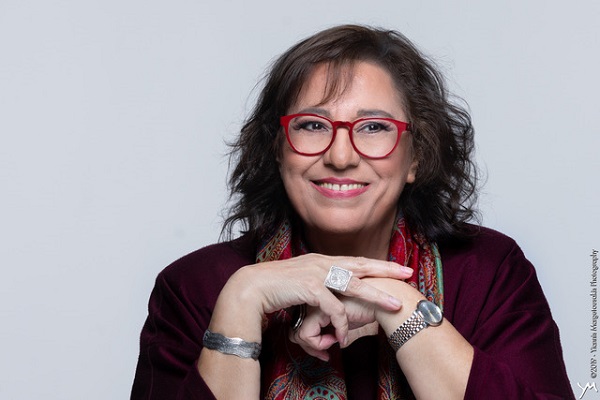
— The Rose of the East
27 & 28 August • Ancient Theatre of Dodoni
The work is set in 1950s Greece in a train compartment hosting refugees from various areas of Asia Minor, Pontus and Cappadocia. As is often the case with travelling, passengers start telling stories both about their motherlands before the uprooting and about the adventures of their settlement in Greece.
Through original songs and texts, six stories of people unfold, showcasing their memories from their motherland before the uprooting and their nostalgia for it, their adventurous journey to Greece and the problems of their adaptation and integration into the new environment, but also a series of positive influences, brought about by the refugee influx into the economic and intellectual life of Greece.
The wandering ticket inspector is the one who conveys how natives view the Greeks of the East.
Creative team
Singing: Maria Farantouri
Direction: Despina Sarafidou
Texts, narrator: Vasiliki Nevrokopli
Score, musical direction: Kyriakos Kalaitzidis
Sound design: Leonidas Palaskas
Lighting: Tilemachos Andreadis
En Chordais musical ensemble
Violin: Kyriakos Petras
Qanun: Thanasis Koulentianos
Singing: Nikos Andrikos
Cello: Christos Sykiotis
Lute, guitar: Thanasis Volas
Oud, singing: Kyriakos Kalaitzidis
Percussion: Petros Papageorgiou
Piano: Giorgos Kokkinakis
Production: En Chordais
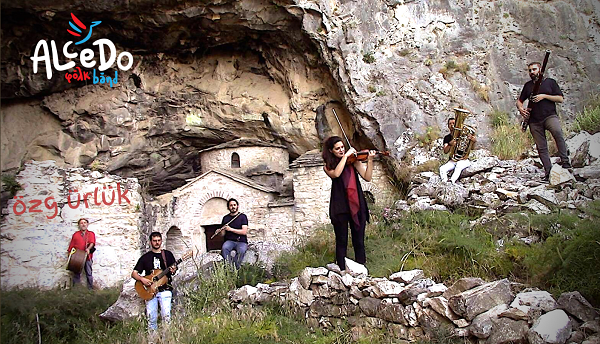
— Born in Smyrna (1883-1903)
28 & 29 August • Ancient Theatre of Mantineia
A beautiful aristocratic woman named Smyrna receives in her poor now home, somewhere in Kokkinia or Nea Ionia of the 1930s, six wandering musicians. Together they dig up and reshape precious moments from her turbulent life…
The Alcedo Folk Band, through the eyes and memories of a woman who’s also a city, Smyrna, compose a new and fresh musical performance and present their first Suite based on themes from the works of great Smyrnaean composers (Kalomiris, Konstantinidis and others) and other popular songwriters (Tountas, Peristeris, Papazoglou, Dragatsis-Ogdontakis and more).
The selection of songs by the above-mentioned songwriters as well as the original traditional songs from Smyrna featured in the performance are arranged by the Alcedo Folk Band.
Creative team
Adaptation, arrangements: Alcedo Folk Band
Supervising director, texts, performer (in the role of the aristocratic woman): Natasha Faii Kosmidou
Costume coordination: Eva Paradelli
Sound designer: Paschalis Kolentsis
Lighting designer: Alexandros Politakis, Katerina Saltaoura
Onstage musicians
Violin, voice: Maria Mihalaka
Flute, percussion: Stefanos Hadjianagnostou
Guitars, percussion: Giannis Tavlas
Bassoon, harmonica: Dimitris Koufalakos
Tuba: Menelaos Moraitis
Violin, mandolin, percussion, voice: Kostas Konstantatos
Production: Alcedo
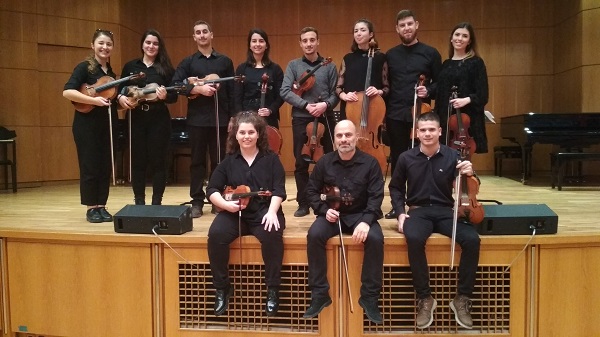
— Smyrnaean Fragrance for Violione Orchestra
2 & 3 September • Ancient Theatre of Maronia
A performance that will mostly feature old instrumental pieces from the wider region of Asia Minor ingeniously rearranged by the Violione Orchestra.
The goal of this alternative twenty-member ensemble of exclusively bowed strings is to bring out a romantic and at the same time communicative and outward-looking mood, with elements of earlier and more modern techniques, taking us on a musical journey from the past into the future with abundant improvisations while creating a dynamic continuation of the old style of performing bowed strings into the contemporary one.
The orchestra is conducted by Giannis Zarias, assistant violin professor in the Department of Music Science & Art of the University of Macedonia.
Creative team
Violione Orchestra: Twenty-member orchestra of bowed strings of students specialised in violin from the Academic Division of Traditional Music of the Department of Music Science & Art of the University of Macedonia
Violione Orchestra conductor: Giannis Zarias
Production: I ISTORIA TIS ELLINIKIS MOUSIKIS
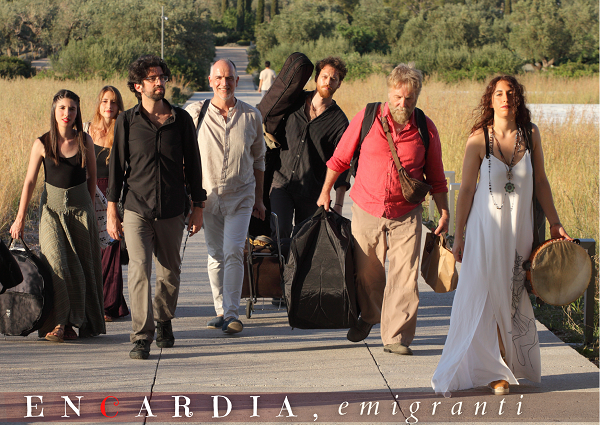
— emigranti: Songs, Words, and Images of the South and of Homecoming
6 & 7 September • Ancient Plevrona
On the occasion of the centenary of the Asia Minor Catastrophe, the encardia ensemble presents a special and very topical musical programme.
An excellent anthology of songs and texts that will illuminate the ever-topical issue of refugeeism and migration.
A focal point of the performance will be human solidarity, the only thing that can alleviate the “Foreigner’s” pain, even transform it into hope and optimism.
Creative team
Musical compositions, songs: encardia
Movement supervision, choreography: Yannis Lavner, Anastasia Drouga
Sound design: Paschalis Kolentsis
Dancers onstage: Anastasia Drouga, Yannis Lavner
Musicians onstage
Accordion, harmonica, voice: Vangelis Papageorgiou
Guitar, voice: Michalis Kontaxakis
Voice, percussion: Natalia Kotsani
Double bass: Dimitris Tsekouras
Voice, mandolin, percussion: Kostas Konstantatos
Production: ENCARDIA
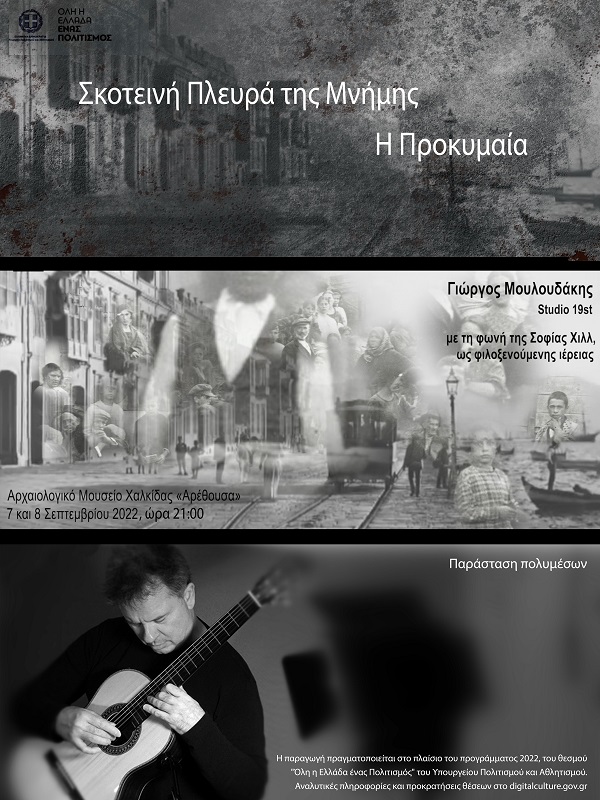
— The Dark Side of Memory / The Pier
7 & 8 September • Archaeological Museum of Chalkida, Arethousa
The Dark Side of Memory / The Pier is a musical multimedia performance about the collective trauma of “the Asia Minor Catastrophe” and the twofold substance of our roots. It is structured around testimonies of historical unnamed protagonists, which, during the performance, are voiced by an unseen person.
Small pieces of living memory, gleaned from the sacred pool of the dead, drip their blessing onto the present, weaving the ground on which every wound rejoices and heals. The living root of the catastrophe sprouts underground in the body of Greece, founding an Asia Minor which is more real than the actual one.
Everything is abandoned to the ocean of the inevitable, transforming the throng of the uprooted into an international symbol. Music is an islet of consolation, a hint about the inner homeland, towards which the refugees unceasingly march.
Creative team
Arrangement, script, selection and sound processing of testimonies, original texts and music, classical and midi guitar: Yorgos Mouloudakis
Video & sound synthesis, sound design, video & multimedia design and programming, camera, video, photography, editing: Vasilis Kountouris (Studio 19st)
Sound design, audio & multimedia design and programming, live multimedia mix for the performance: Kostas Bokos (Studio 19st)
Vocal delivery of texts, performance (unseen person): Sofia Hill
Production: SIMATOROS POLITISTIKI
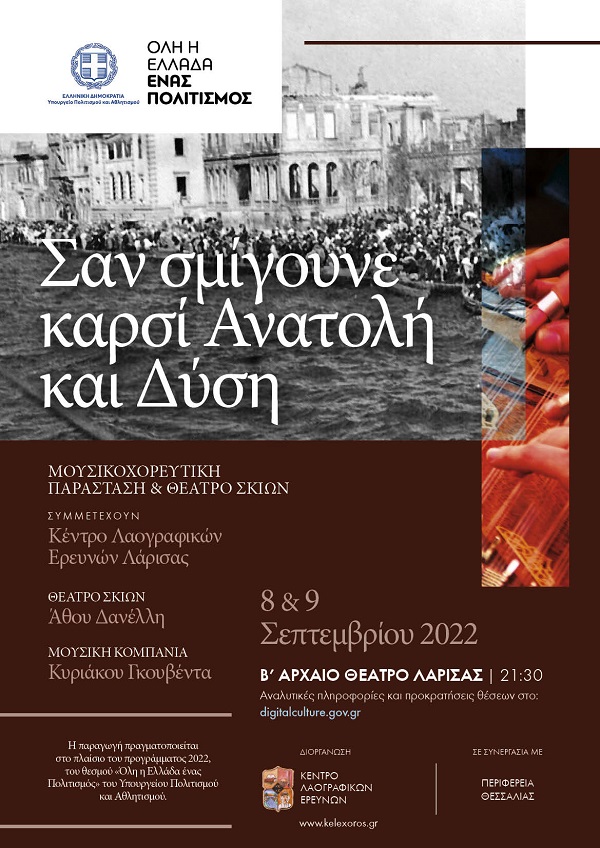
— At the Crossroads of East and West…
8 & 9 September • Ancient Theatre of Larissa – B
A music and dance performance in collaboration with the Athos Danellis shadow puppet theatre and Kyriakos Gouventas’ musical company, which will attempt to showcase the musical and dance tradition of Asia Minor through a journey across the time before its destruction, the subsequent uprooting of its inhabitants, and the transformation of their tradition in the new setting of Greece of the time.
Asia Minor has always been a crossroads of nations and cultures, a melting pot of musical traditions of the West and the East.
The folk songs and tunes still surviving to a great extent to this day are known to be an age-old legacy coming to us from a region that is at once so close, yet so far from us: Asia Minor.
Creative team
Shadow puppet theatre of Athos Danellis
Musical company of Kyriakos Gouventas
Research: Cultural Traditional Research Centre, Larissa
Production: CULTURAL TRADITIONAL RESEARCH CENTRE
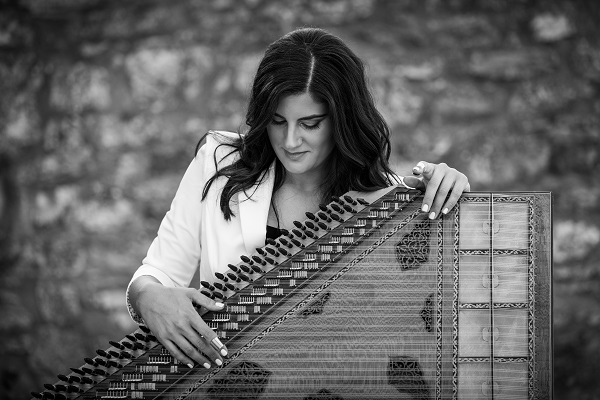
Floulis Photographers |
www.floulis.gr
— Eternal Smyrna
10 & 11 September • Ancient Theatre of Philippi
A proposal that combines the original traditional music of Asia Minor, from the days of joy and prosperity to the days of the uprooting, folk-rebetiko music as it evolved in metropolitan Greece, and contemporary music.
Three different orchestras co-exist onstage, the original traditional orchestra of Smyrna, the Folk-Rebetiko orchestra in the form it acquired in inland Greece, and a Classical Symphony Orchestra performing the Oratorio. The latter will present in its world premiere Christos Samaras’ work Mnimes (Memories).
This musical journey is a sequence and co-habitation of music, poetry, dance, images and performing, composing a complete, ripe, and interdisciplinary performance-concert that illuminates the eternal Asia Minor of Greeks.
Creative team
Presenter: Alexis Kostalas
Composer: Christos Samaras
Oratorio narrator, actor: Giannis Stolas
25-member Symphony Orchestra: Sinfonietta of the International Festival of Karditsa
60-member Choir: Mixed Choir of the International Festival of Karditsa
8-member Traditional Orchestra with Asia Minor instruments: Orchestra of the International Festival of Karditsa
8-member Folk-Rebetiko Orchestra with bouzouki
Traditional dancers: Refugee associations of Karditsa
Text editing, libretto: Serafim Mylonas, Olga Gortzi
Piano: Marios Kazas
Sound, screenings, lighting: Vasilis Tsikrikas
Soprano: Eleni Danai
Traditional singer, qanun: Dimitra Kaliara
Orchestra & chorus training, musical direction, conducting of the Oratorio Mnimes, performance supervision: Nikos Efthymiadis
Filming, video editing: Vasilis Stathis
Production: INTERNATIONAL FESTIVAL OF KARDITSA
DANCE
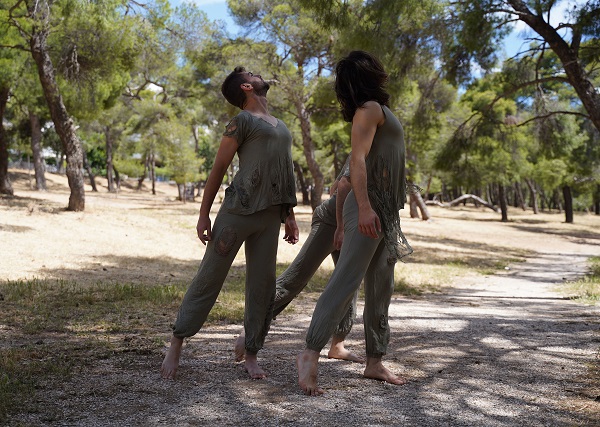
— Asia Minor: Everything Here Exists to Bring Memories
15 & 16 July • Castle of Lamia
This work involves collaboration between contemporary dance and original music and it is inspired by images and emotions emerging from the texts of well-known authors and poets (Sotiriou, Venezis, Seferis, Hemingway, and others) who wrote about the Asia Minor Catastrophe.
The despair, sorrow, terror, pain and the struggle for survival and inclusion of the Asia Minor refugees are dramatised through contemporary dance choreographies, which are enriched with contemporary music compositions and songs interlacing electronic soundscapes with Asia Minor music scales and rhythms. The lyrics of the songs are inspired by images and emotions emerging from the texts.
The goal of this work is to highlight the ability of the Asia Minor refugees to transform pain and sorrow into art.
Creative team
Dramaturgy, direction: Sevi Dimitriadou
Music compositions and songs: Yannis Pisimisis
Costumes: Labrini Katsaounou, Yorgos Katsiaounos
Lighting: Dimitris Tsolakis
Singing, vocals: Anastasia Hadjipavlou
Dancers, choreographers: Nikos Damo, Stavros Boutsikas, Yorgos Papadopoulos, Daniela Pisimisi, Phaedra Pisimisi, Kelly Rapti
Musicians: Othonas Bikakis (lyre), Andreas Fasakis (lute), Yannis Pisimisis (synthesizers, percussion)
Production: ECHODRAMA Cultural Group
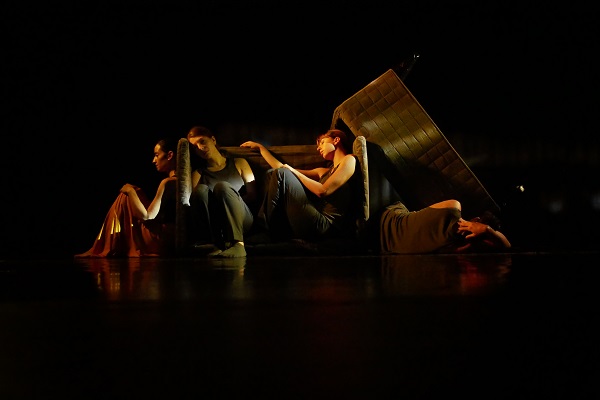
— Ichne
15 & 16 July • Tsiatsiapa Mansion, Kastoria
A search for the paths of events, images, and ideas, through time: Die Wolke art group presents Ichne (“traces”), a contemporary dance performance that sources its materials from interviews, focusing on the workings of memory and oral communication towards the development of imagery originating from the Asia Minor cultural identity.
Movement, along with musical and sonic compositions, approaches the inherent subjectivity of descriptions, low fidelity, gaps, and negative space that reveals the dimension of time in poetic imagery, thus focusing on the intersubjectivity of narrative refractions.
Creative team
Choreography: Drosia Triantaki
Music composition, performance: Dimitris Dalezis, Dani Joss
Performers: Drosia Triantaki, Olina Economidou, Savvina Romanou-Pylli, Foteini Kontouli
Production: Die Wolke Art Group
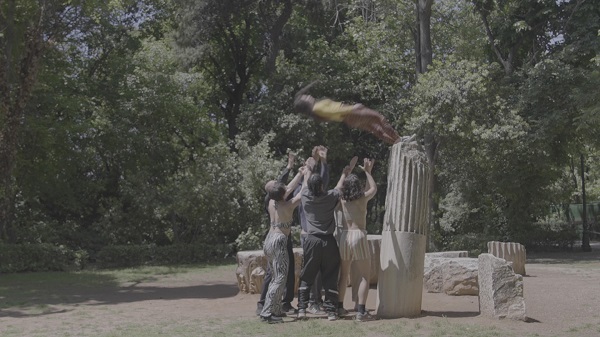
— Apotypoma
10 & 11 August • Archaeological Museum of Olympia
Apotypoma negotiates the conceptual dimensions of being uprooted, accepted, and integrated, and by extension of the respect for diversity. How would our life be if we accepted the experiences of the persons living next to us? Where is our fear of the Other, the Foreigner, based?
The fear of that which is different and unknown is the catalyst in a psychological process based on the principle of similarity. The ones who are like us belong to the same group, therefore they are harmless.
But it is this moment of danger, these meetings, that build one’s personality, there where one overcomes their fear, separate themselves from the group, and explore life through their senses. It is from these meetings that the authentic self emerges.
Creative team
Choreography: Christina (Arianthi) Mertzani
Rehearsal assistant: Eirini Damianidou
Music, sound design: Minas Emmanuel
Dramaturge: Tasos Ratzos
Performers: Elina Demirtzioglou, Gian Angelos Apostolidis Isaak (Fuerza Negra), Alexander Qejvanaj, Antonia Pitoulidou, Fevronia (Fay) Gkoutzampasouli, Dimitris Lagos
Production: ELEFTHERI PTOSI
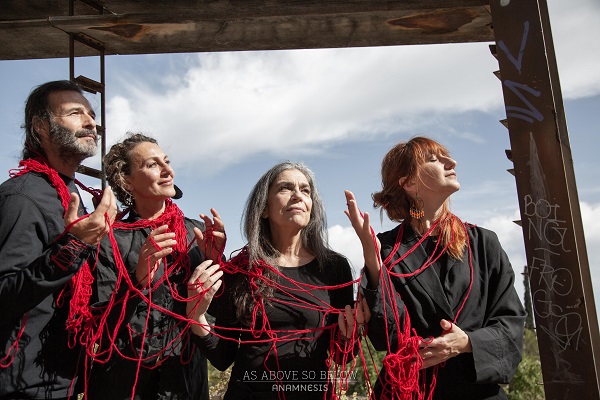
— As Above So Below
12 & 13 August • Archaeological site of Kabeirion, Lemnos
As Above So Below: an experiential performance designed for the Kabeirion of Lemnos, the oldest known Greek Sanctuary connecting the spiritual heritage of the Asia Minor refugees with ritual memories of antiquity and the worship of Cabeiri. Sacred Fire, the element of destruction and regeneration, becomes the thread connecting Greeks with the Light and the greatness of the Universe.
The creator of the first underwater performance in Sounio and the vigil night in Fygaleia, director and choreographer Apostolia Papadamaki, connects cultural heritage with performing arts in a performance-ritual by renowned artists Savina Yannatou, Thanasis Efthymiadis, Maria Papageorgiou, professional dancers, and local volunteers under the full moon.
The music is composed by Trifon Koutsourelis.
Creative team
Direction, choreography: Apostolia Papadamaki
Original score: Trifon Koutsourelis
Dramaturgy: Apostolia Papadamaki, Panagiotis Gkiokas
Costumes: Ifigeneia Daoudaki
Lighting: Valentina Tamiolaki
Scientific partners: Dr Pavlos Triantafyllidis (archaeologist and supervisor at the Ephorate of Antiquities of Lesbos), Malamo Mari (archaeologist)
Text editing: Dr Athena Despoina Potari
Marketing & communication: MENTOR
Graphic & visual designer: Areion Stefanidis
Photography, video: Pantelis Ladas
Ancient Greek pronunciation training: Eleni Koulizaki
Performers
Refugee mother: Savina Yannatou
Daughter /Cabeirus: Maria Papageorgiou
Narrator / Cabeirus: Thanasis Efthymiadis
Mnemosyne / Hermes: Apostolia Papadamaki
Dancers: Plotinos Iliadis, Konstantina Liontou, Antonis Strouzas, Maria Papakonstantinou, Natasha Sarantopoulou, Spyros Christakis
Production: QUASI STELLAR / PERFORMANCES WORKSHOPS RETREATS
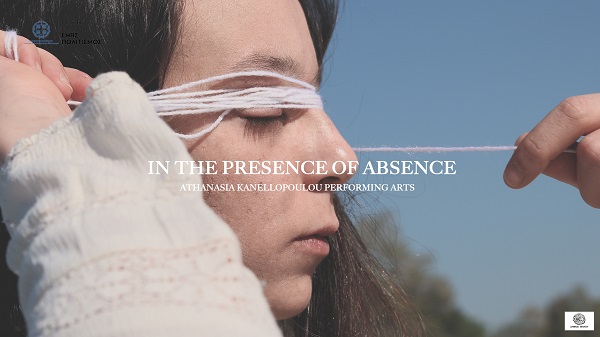
— In the Presence of Absence
20 & 21 August • Ancient Theatre of Milos
A work that attempts to explore the question of collective memory, the way History stands not only on the experience of the past, but also of the present. In a historical path, that it is unclear whether it is linear or circular, bodies progressively learn how to handle the fragility of coming together and the search for new land.
Concepts such as uprooting, alienation, violent expatriation, rupture of the sense of “belonging” and identity, constantly recur and alternate with each other.
A thread from yesterday to today, where collective memory meets the personal, lived history, the locus of the body and its claims. Perhaps one should undergo many small, successive deaths, wander beyond the boundaries and the dividing lines that exist mostly inside them, to manage to seek a redemptive utopia, an “elsewhere”, a new place.
Creative team
Concept, choreography, direction: Athanasia Kanellopoulou
Original music composition: Konstantina Polychronopoulou
Choreographer’s assistant: Vassiana Skopetea
Sets, costumes: Sotiris Melanos
Scientific research: Vasilis Paggos, Athanasia Kanellopoulou
Photography, video: Xenia Tsilochristou, Stratos Tsialikis
Production assistant: Filio Louvari
Graphic designer: Maria Christopoulou
Narrator: Elena Topalidou
Performers: Vassiana Skopetea, Maria Fountouli, Lia Chamilothori, Matina Kostiani, Athanasia Kanellopoulou
The performance features an excerpt from K. H .Myris’ poem “I stahti poy taxideve” (The travelling ash).
Production: Athanasia Kanellopoulou Performing Arts
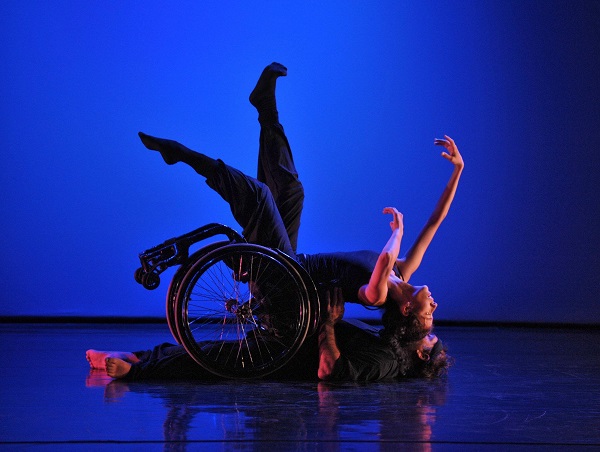
— By fire…
14 & 15 September • Fortezza, Rethymno
The common elements that compose the core of the project is the relationship between disability and asylum, through their current dimensions, regarding the oppression experienced by refugees, the freedom of action given to them by societies, and their integration into the social web.
Taking into account social, economic, class, ethnic, psychological parametres and influences, we explore the spectrum and processes of integration and acceptance of these populations, through authentic narratives, and their role in the evolution of culture.
A redefinition of art, of the “different other”, of the refugee, of the disabled, of life itself, of the self, of emotions, of the relationship with one’s own body, mind and soul.
Creative team
Conception, choreography: George Christakis
Direction, dramaturgy: Eugenia Arsenis
Music composition, performance: Costas Livadas
Lighting: Sakis Birbilis
Singer: Eleni Tsaligopoulou
Narration: Antonis Kafetzopoulos, Sotiris Tachtsoglou
Dancers: Fay Malama, Klito Tsigri, Eleni Kontzila, Maria-Zoi Terzopoulou, Ioli Spiliopoulou, Giannis Chaldaios, Alekos Blatze, George Christakis
Guest: Irini Mavromataki
Production: DAGIPOLI DANCE Co
MUSIC THEATRE
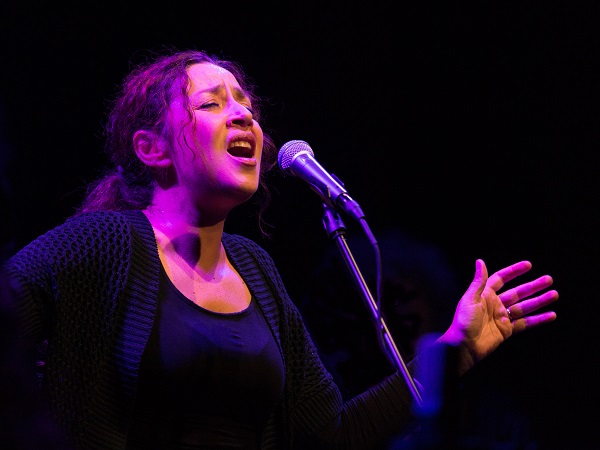
— Exodus
30 & 31 August • Museum of Byzantine Culture, Thessaloniki
A musical performance that engages in a dialogue with the digital painting of George Kordis, who digitally creates a series of murals depicting refugee processions titled Anestii (Hearthless). Fenia Papadodima converses with the works, following George Seferis’ journey to Cappadocia, testimonies of refugees, and poems.
With her voice she travels across hymnody, singing, improvisation, speech. She leads audiences to an inner approach of the tragedy of the hearthless people of all eras.
From the person to the loss of the person.
Creative team
Music, concept, voice: Fenia Papadodima
Soundscapes: Giorgos Palamiotis
Video: Kostas Aloupogiannis
Lighting: Stevi Koutsothanasi
Oud: Thomas Meleteas
Harp: Gogo Xagara
Cello: Ivi Papathanasiou
Performer: Giorgos Papastylianos
Production: MARINA
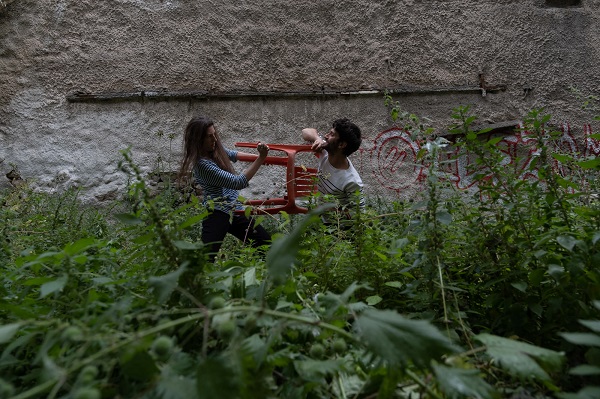
— Koutaliani or The Weight of History
2 & 3 September • Archaeological site of Anaktoropolis
The Music Theatre Company Rafi collaborates with the Oros Ensemble, composer Apostolis Koutsogiannis, poet Marios Hadjiprokopiou and visual artist Petros Touloudis to create a musico-visual cantata that illuminates moments from the life of Koutaliani, as strongmen from Asia Minor used to be called, over different historical periods: from the late 19th century to the postwar era.
The legendary life of these persons also serves as an allegory for the transition from the late-19th-century world to the successive displacements of the early 20th century, the Asia Minor Catastrophe, and the suffocating borders of the modern Greek state.
The work features the legendary Panagis Koutalianos and his descendant Dimitris, Haris Karpozilos and Giannis Keskelidis or Sampson, the giant of the Greek catch known as “Attilio” or “the Asian” (sic).
Creative team
Concept, artistic supervision: Music Theatre Company Rafi
Score: Apostolis Koutsogiannis
Verses: Marios Hadjiprokopiou
Art director, lighting designer: Petros Touloudis
Performers: Lito Messini (soprano), Anastasia Kotsali (mezzo-soprano)
Oros Ensemble
Vasilis Zigkeridis (qanun)
Konstantinos Zigkeridis (bayan)
Eirini Krikoni (violin)
Antonios Tsachtanis (clarinet)
Production: Music Theatre Company Rafi

— HECUBA / S.T.R.I.N.G.S. – Bygone Troys
7 & 8 September • Roman Agora, Delphi
Troy. Smyrna. The face. The mother. The land. The motherland. The Queen. Hecuba. She crosses time. Like a curved arrow.
Ruins. Corpses. A city. Troy. Smyrna. Lost motherlands. Lost lives. Whose walls are ruined. Burnt down. By the fire of war. Thousands of people. Becoming refugees. They saw their port turning into a river of blood. They buried there a piece of their soul. Their heart hasn’t forgotten. The body was tortured, to put down roots elsewhere.
The story of a city. The destruction of the “cradle of civilisation”. Troy is still on fire…
Creative team
Musical composition: Yorgos Tamiolakis
Direction: Konstantinos Chatzis
Director’s assistant: Panos Zygouros
Text composition: Sofia Hill, Konstantinos Chatzis
Libretto: Antigone Karali
Costumes: Ifigenia Daoudaki
Performer: Sofia Hill
Singing: Theologos Papanikolaou, Kalliopi Mitropoulou
Violin: Babis Karasavvidis, Theologos Papanikolaou, Kalliopi Mitropoulou
Violoncello: Yorgos Tamiolakis
Viola: Stelios Papanastasis
Viola de gamba: Andreas Linos
Production: Art Colour
THEATRE / ACTIVITIES FOR CHILDREN AND TEENAGERS
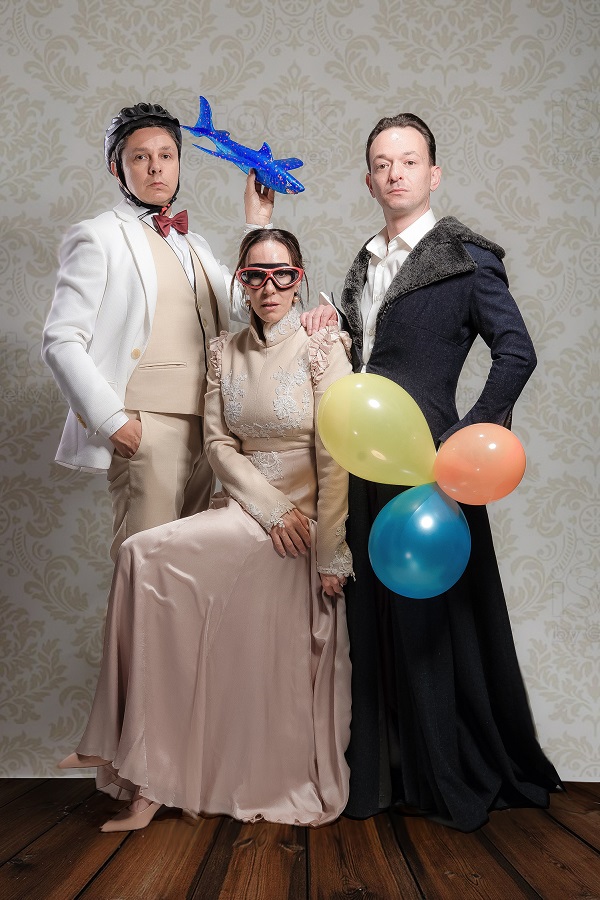
— Multicolour Asia Minor
19 & 20 July • Bridge of Arta
Three narrators will traverse the multicultural Asia Minor portraying images in three sections.
Before, during and in the wake of the Disaster. An intertextual performance inspired by historical events, Dido Sotiriou’s novel Farewell Anatolia (Matomena Homata) and Giles Milton’s Paradise Lost – Smyrna 1922, as well as by myths and written accounts. Memories and testimonies of real persons who lived in Asia Minor come to life and transport us to the magical world of Smyrna, there where the East and the West harmonically co-exist. But also in the subsequent tragedy. The tragedy of the Catastrophe and persecution. Melodies and live music, songs, local treats, feelings of joy and pain, they all create the canvas of the history of Asia Minor.
Using imagination as a vehicle of expression and communication, a story is created for the whole family. A peaceful celebration to acquaint ourselves with Izmir and the cultural heritage of Asia Minor.
Creative team
Compilation of texts, script adaptation: Oneirodrama Group
Script editing: Nagia Papapanou
Direction: Vasilis Papalazarou
Sets, costumes: Konstantinos Gougounis
Music composition: Panos Dokomopoulos
Photography: Lefteris Kalogios
Communication, public relations: Evangelia Skrompola
Psychologist, child specialist: Stella Moudatsou
Vocalists: Sofia Psouhlou, Zoi Psouhlou
Actors: Giorgos Menediatis, Christina Moudatsou, Vasilis Papalazarou
With the participation of the Orchestra of the Arta Conservatoire
Production: MI ANASTREPSIMOI
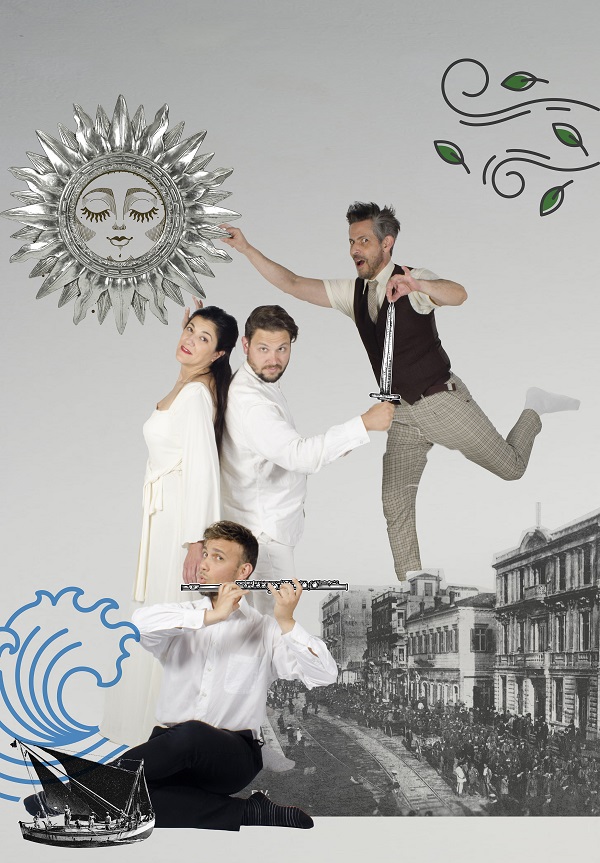
— The Young Asikis
20 & 21 July • Roman Odeon of Nikopolis
How important is it for a child to follow their dreams and not those of other people? How much courage does someone need to admit their resemblance to the “enemy”?
It is difficult for someone to discuss about politics with a child. It is hard to present them History and its curses in an objective way. Sometimes though, the infallible mirror of a myth does not hide these issues – it reveals them, more clearly, in a more “digestible” form than ever before.
The work is inspired by the enchanting Asia Minor fairy tale “Machaira” (Knife). It tells the story of two friends, a prince and a poor child, who were violently separated but then found each other again, through a journey in search of the “Great Idea”.
Creative team
Libretto: Yannis Filias
Musical composition, conductor: Thodoris Lempesis
Direction: Marina Mergou
Stage construction, costumes: Maria Papadopoulou
Lighting: Melina Mascha
Graphic design: Patitiri Design
Photography: Ioulia Ladogianni
Production manager: Anna Sitareniou
Performers
Mezzo-soprano: Artemis Bogri
Tenor: Υannis Filias
Baritone: Marinos Tarnanas
Actor, νarrator: Dimitris Rafailos
Accompanied by the Chamber and Traditional Instruments Orchestra
Production: SYRIX PRODUCTIONS
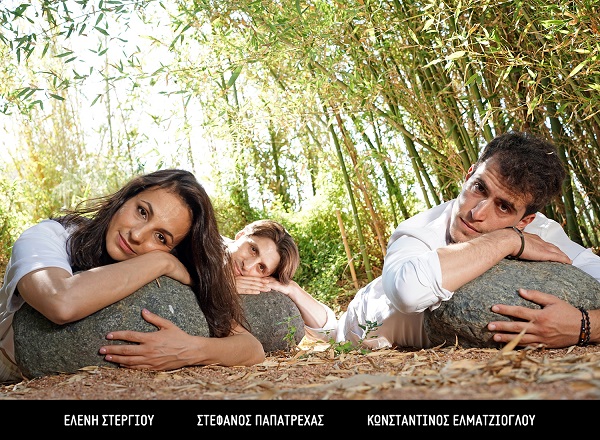
— Little Asia
26 & 27 July • Archaeological site of Ancient Corinth
In Andreas Flourakis’ new work today’s young people are linked to the Smyrna Catastrophe of 1922 through the love for animals, love, gastronomy and family memories. Even the animations bring to the surface aspects of History that have gone unnoticed, like the rescue of Greeks by the Japanese ship Tokei Maru.
While the ships of allies were watching Smyrna being destroyed and Greeks being drowned off the coast of Ionia from a distance, the captain of Tokei Maru threw its cargo into the sea to make room for as many people as possible, in order to transfer them safe and sound to the port of Piraeus.
In Little Asia Tokei Maru’s strange journey is turned into a story of mystery and Japanese beauty.
Creative team
Director: Roubini Moschohoriti
Original score: Kostas Nikolopoulos
Sets, costumes: Giorgos Lyntzeris
Visual art consultant: Myrto Stamatelou
Lighting: Melina Mascha
Performers: Eleni Stergiou, Konstantinos Elmatzioglou, Stefanos Papatrechas and Senior High School students
Production: anima theatre group
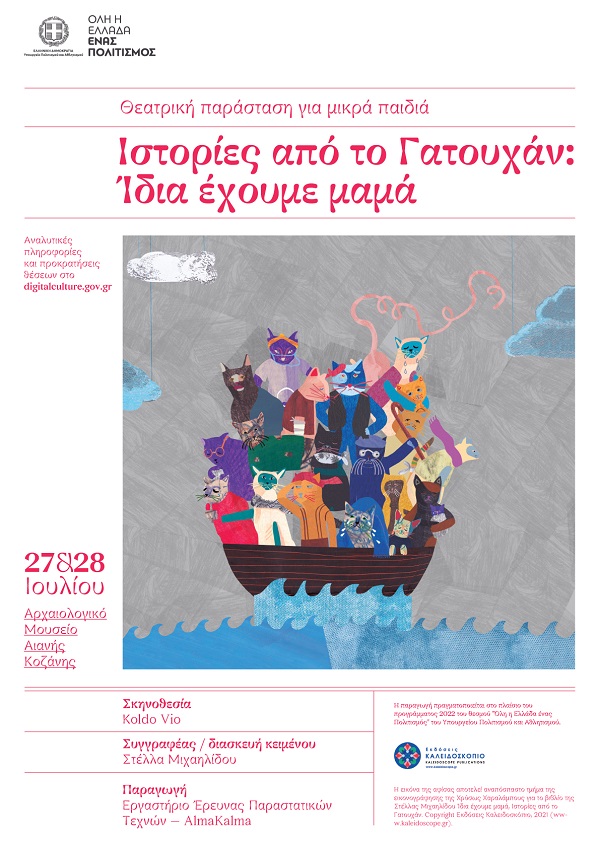
— Stories From Gahoutan: We Have the Same Mom
27 & 28 July • Archaeological Museum of Aiani, Kozani
A theatre performance based on the adaptation of Stella Michailidou’s fairy tale Stories from Gatouhan: We Have the Same Mom published by Kaleidoscope Publishing (2021).
The performance illuminates through the eyes of children, in a very meaningful, tender and at the same time playful way aspects of the refugee issue. There where adult cats see only problems, younger ones see riches and unique gifts. A story that unites yesterday with today, focusing on the issues of refugee reception, the real problems, the existing prejudices, but also on the value and preciousness of the unique Other.
Heroes from fairy tales of the East and the West run through the whole work like a luminous web, bringing everyone together, regardless of national, cultural, racial, religious or any other kind of differences.
Creative team
Direction: Koldo Vio
Author, text adaptation: Stella Michailidou
Sets, puppets: Maria Manasi and Marmita team
Theatre-based pedagogical project designer: Martha Katsaridou
Score, onstage musician: Achilleas Mesaikos
Production manager: Giannis Gountaras
Performers: Myrsini Karmatzoglou, Panagiotis Gizotis
Production: L.R.P.A. – LABORATORY OF RESEARCH OF PERFORMING ARTS
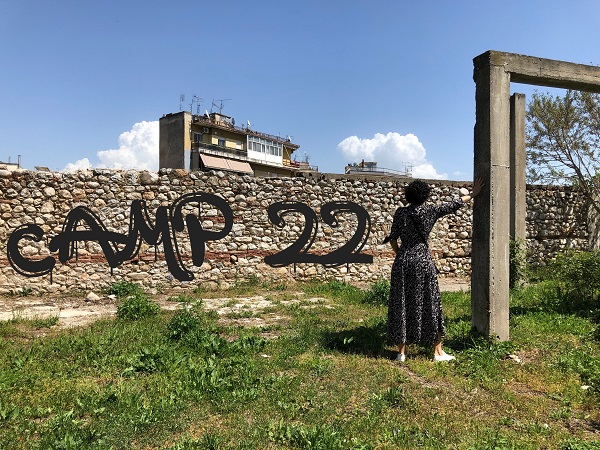
— Camp 22
2 & 3 August • Byzantine Walls of Drama
Camp 22 is a performance that focuses on the “Hi-story”: the Hi-story of our nation, the Hi-story of a show, our personal hi-story, a Hi-story from the human perspective.
Whether we actively participate in them or we are just a spectator, we, ourselves, create our Hi-stories. And in order to keep them in our memory we photograph every moment, to recall where we were, whom we were with, and how we were.
That’s why Camp 22 asks the right questions to start a dialogue. There where time does not exist, where everything is possible, where there are no borders. At Camp 22 they play “breaking” music. At Camp 22 the world, the stories and our lives belong to its people. At Camp 22 history is written by its protagonists.
Creative team
Concept, research, direction: Katerina Alexaki, Marilena Triantafyllidou
Dramaturgy: Dr Irine Moundraki
Music: Vassilis Kazis, Petros Koumpios
Sets, costumes: Georgia Bourda
Lighting: Giorgos Ayiannitis
Performers: Katerina Alexaki, Vassilis Kazis, Kleoniki Karachaliou, Marilena Triantafyllidou
Workshop facilitator: Maria Chalari, PhD
Production: Artika
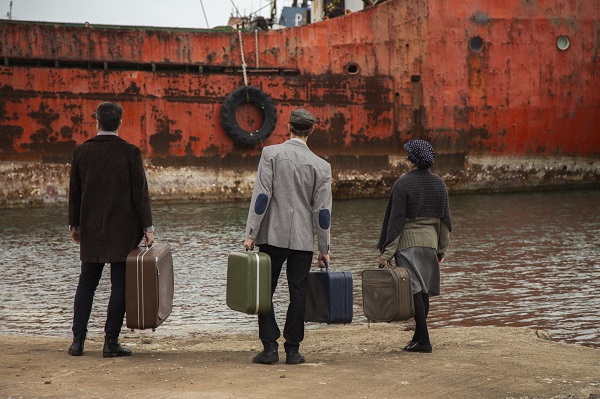
— A Captive’s Story or How I Crossed the Borders
4 & 5 August • Zincirli Mosque
The work is a theatrical adaptation based on Stratis Doukas’ novel of the same title that incorporates participatory activities of an educational nature. The story of the original text is about the adventures of a Greek man who was arrested by the Turks during the Smyrna Catastrophe in 1922. It vividly describes his escape and his struggle to survive until he is rescued.
The novel is dedicated to “the common sufferings of nations” and has an internationalist character. The references and comparisons to the refugee waves shaking today’s world are obvious. The work’s main focus is human resourcefulness and the preservation of human dignity amidst the horrors of war and the bitterness of being uprooted.
The performance is enriched with interactive parts, which –using Educational Drama as a vehicle– aim at the further exploration of the work’s thematic core.
Creative team
Text: Stratis Doukas
Theatrical adaptation, direction: Alexandros Raptis, Fotis Dousos
Director’s assistant: Sissy Ignatidou
Dramaturgy consultant: Ioanna Lioutsia
Educational activities designer: Kalliopi Fykari
Sets, costumes: Katerina Hatzopoulou
Music, arrangement: Giorgos Dousos
Movement: Mika Stefanaki
Production manager: Alexandros Raptis
Poster: Chrysoula Korovesi
Video, photography: Dora Kalakidou
Public relations responsible: Maria Konstantopoulou
Performers: Marinos Orfanos, Eleni Papaioannou, Konstantinos Parasis
Production: HIPPO XIPO
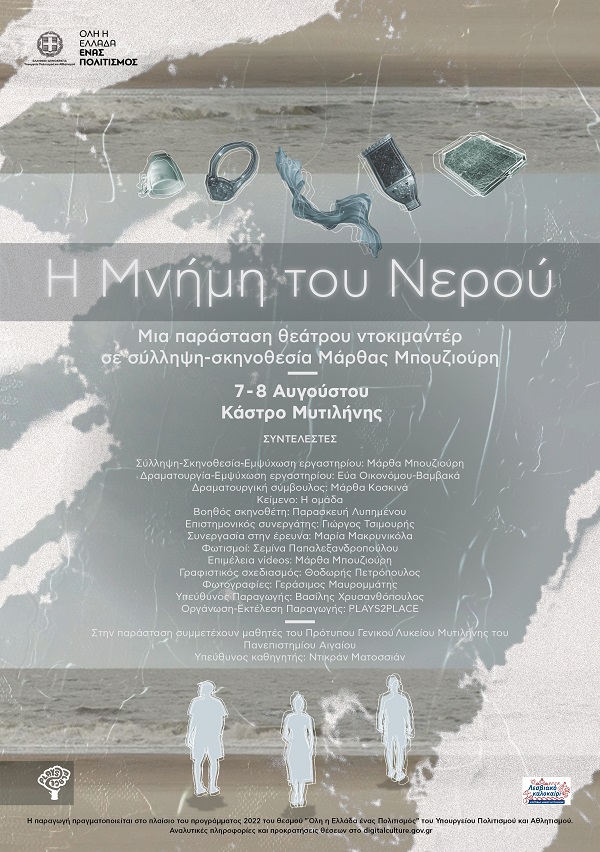
— The Memory of Water
7 & 8 August • Castle of Mytilene
Based on oral history and experiential-biographical material, The Memory of Water foregrounds the value of memory and the importance of its preservation for reasons of historical and cultural cohesion and continuity, bringing out traces of the refugee identity of the island of Lesvos through the eyes of the young generation.
The project consists of two creative parts. The first part is the planning and implementation of an experiential documentary-theatre workshop with the participation of adolescent students of Lesvos, in collaboration with the Model General High School of Mytilene of the University of the Aegean.
The second part includes the creation of a documentary-theatre performance, with the participation of the same teenagers as “experiential performers”, handing over the baton to them so that they can explore, own, and bring to life the stories of their ancestors through experiential research and performance art.
Creative team
Planning and implementation of the workshop, direction of the performance: Martha Bouziouri (director, social anthropologist, Artistic Director of the International Documentary-Theatre Network)
Director’s assistant: Paraskevi Lypimenou (theatrologist)
Coordinator of educational programmes, workshop coordinator: Maria Makrynikola
Actor, director: Eva Oikonomou-Vamvaka
Dramaturgy consultant: Martha Koskina (theatrologist)
Scientific consultant: Giorgos Tsimouris (Associate Professor, Department of Social Anthropology, specialist in refugee and migration issues)
Production: plays2place
— The Town Aloft
17 & 18 August • Archaeological site of Ancient Pella
A land of rebirth, a place of co-formation, an old café with contemporary music. Spectators, habitués, refugees, residents, leaving back their memories, keeping personal narratives as a legacy.
The performance crosses the historical paths with theatrical tools, but also with the use of our mobile phones, our smartphones, our modern technological need, which can finally allow us to create our own personal narrative with new media, to find our place in this world.
The story can be shaped, if we are a part of history.
Note: The visitors of the archaeological site of Pella, from 19.00, will have the opportunity to participate in the art installation, which will be coordinated by George Gerontidis, and in the performance, which will unite the site with the show and its spectators.
Creative team
Direction, dramaturgy: Anna Maria Iakovou
Dramaturgy consultant, artistic associate: Themis Panou
Dramatologist: Lena Sitara
Art installation, set designer: George Gerontidis
Music: Familie Lautari, Nikos Mitsis
Costumes: Eliza Moschopoulou
Production manager, director’s assistant: Alexandros Kaltzidis
Visual identity, graphic design: Ania Vouloudi
Performers: Sofia Apostolidou, Alexandros Kaltzidis, Margarita Koutova, Nikos Mitsis, Periklis Stavrou, Costas Chatzigeorgiou, Themis Panou (video), and the visual artist George Gerontidis
The research for the archival material and the oral testimonies is carried out in collaboration with the Asia Minor association of Efkarpia “OUSAK”.
Engineering design by Dimitris Dontsios.
Production: Dulcinea
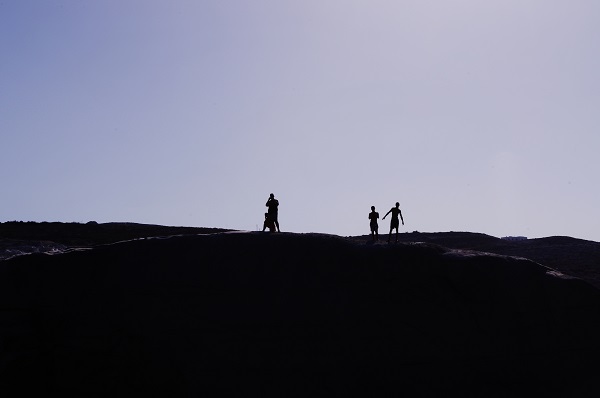
— Parallel Texts or The Visitors
18 & 19 August • Archaeological Museum of Etetria
What a sweet summer evening… Everything you need for a soirée, a reception, a garden party at least. This is how paradise must be like, don’t you agree? A place of recreation perhaps. A heavenly city. And then nothing.
At the Eretria Museum refreshment room, four visitors drink soft drinks, eat chips, and through the museum’s audio tour of the Asia Minor Catastrophe, they become connected to history, memory, the meaning of the city, cosmopolitanism, extermination and destruction. As time goes by, the questions from the loudspeaker, the songs and the dances alternate with the historical information, the meaning of Hellenism, History, the mythical cities, the conditions that changed the world, the literary narratives and the image of Smyrna.
Finally, what should one remember from the world memory? And what should one erase?
Creative team
Direction, lighting: Vasia Attarian, Mirto Makridi
Choreography: Elena Gerodimou
Music supervision: Dimitris Tasenas
Sets: Alexia Chryschoidou
Photography: Anastasia Giannaki
Poster design: Iliana Paspala
Performers: Evdoxia Androulidaki, Mirto Makridi, Promitheas Nerattini-Dokimakis, Maria Filini
Voice over by Dimitris Tasenas
Production: BUG THEATRE GROUP
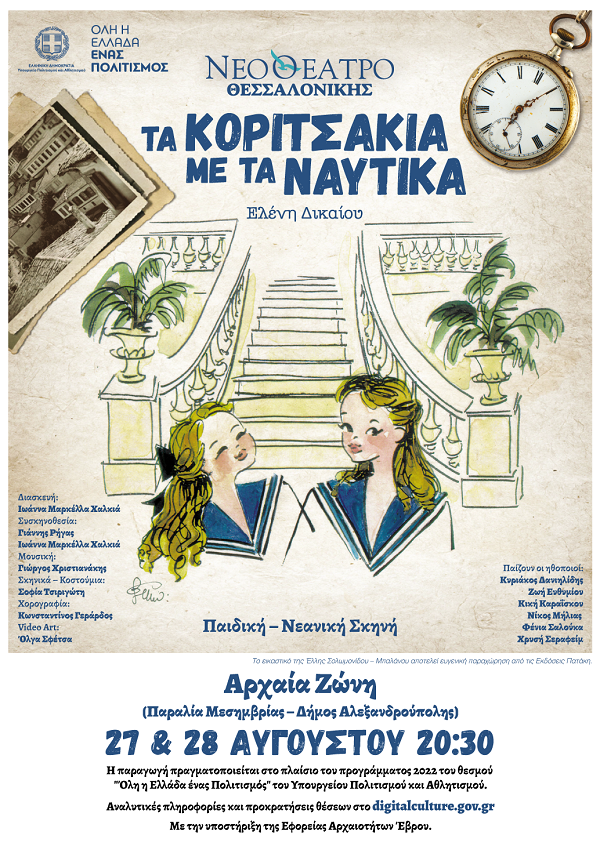
— The Girls in the Sailor Suits
27 & 28 August • Ancient Zone
The Girls in the Sailor Suits unfolds the thread of the true story of an urban family in Smyrna. It presents the drama and the greatness of Hellenism in Asia Minor through the eyes of two children born where “everything was soft and warm like a hug, where people enjoyed the blessings and the wealth of the East and the love of each other and were happy.”
As the events unfold, pushed forward by time, everything that marked the smiling and kind people of Ionia passes in front of the eyes of the central heroines, the twin girls Katinaki and Maritsa: from the happy days, the culture, and the beauty of life in Asia Minor to the obligatory settling down in refugee settlements and the contribution of refugees to modern Greece.
A theatrical performance about History that time fights to cover with its ashes. For a country that insists on declaring its presence in people’s eyes because, in the end, homeland is people themselves and everything that dwells in our soul. Like the wish the little girls in the sailor suits make: “Let tomorrow be a day of happiness…”
Creative team
Adaptation: Ioanna-Markella Chalkia
Direction: Giannis Rigas, Ioanna-Markella Chalkia
Music composition: George Christianakis
Sets, costumes: Sofia Tsirigoti
Choreography: Konstantinos Gerardos
Video art / Mapping: Olga Sfetsa
Performers: Kyriakos Daniilidis, Zoi Efthymiou, Kiki Karaiskou, Nikos Milias, Fenia Salouka, Chrysi Serafim
Production: Neo Theatro Thessalonikis
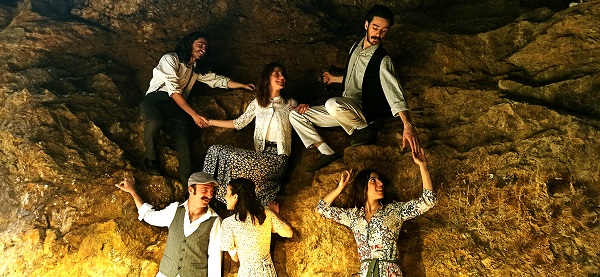
— The Great Farewell
3 & 4 September • Byzantine Museum Argos, Argolis
Galatia Grigoriadou-Soureli’s awarded novel The Great Farewell is presented in its first staging for children aged 10 years and over and teenagers.
The 4PLAY theatre company tells the adventure of the novel’s heroes, who take part in the Asia Minor Expedition in the beginning of their adult life, through a theatre performance that combines contemporary dance techniques with contact improvisation and an original music score.
A journey from Athens to Smyrna, from youth to maturity, and from peace and love to war and loss. A story binding the old world today with today’s world, using Ionia as a connective link. A story of coming of age and humaneness.
Creative team
Original text: Galatia Grigoriadou-Soureli
Adaptation, direction, choreography, lighting supervisor: Paris Mantopoulos
Artistic supervision: Vassilis Mavrogeorgiou
Original music score: Giorgos Fountoukos
Sets, costumes: Sofia Pantouvaki
Research, selection of dramaturgical material: Alexandra Liakopoulou
Lighting & sound technician: Renos Varlas
Photography, graphic design: Paris Mantopoulos / 4PLAY Theatre Company and Konstantina Efthymiou
Performers: Michalis Koutskoudis, Konstantina Efthymiou, Maritina Koutsohioni, Dialekti Poursanidou, Vasilis Stamatakis, Giannis Tsaniras
Production: 4PLAY Theatre Company
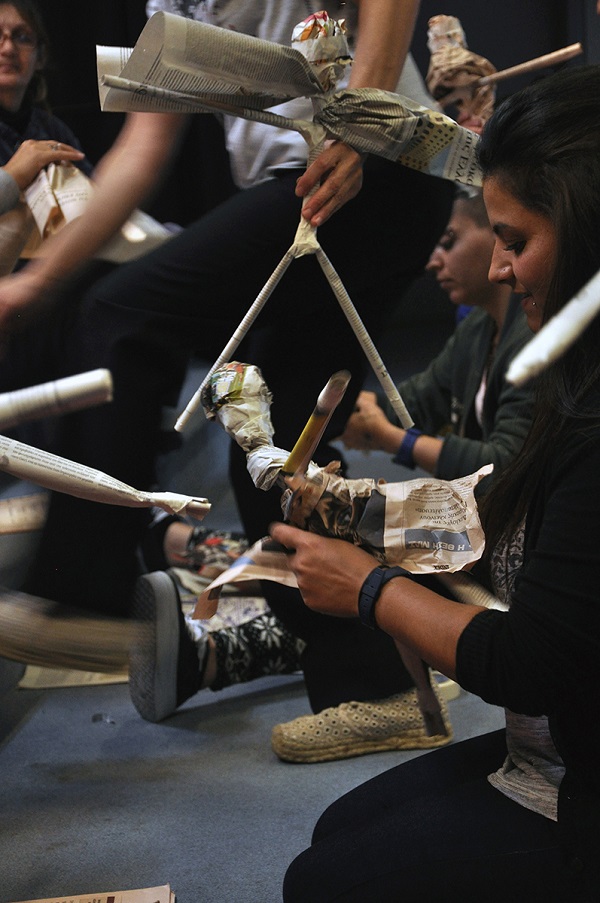
— Uprooted LIKE YESTERDAY, 1922-2022
10 & 11 September • Roman Odeon of Kos
On the occasion of the centenary of the Asia Minor Catastrophe, we commemorate the uprooting of innocent civilians through a project that aims at making children from Kos historically aware about the events that occurred during the Asia Minor Catastrophe.
The children will participate in a two-week seminar (29/8/22 – 9/9/22), where they will construct “hero”-puppets depicting refugees from 1922 and onwards, while also learning how to animate them. Through theatrical improvisations, children will express the pain, violence, and cruel treatment experienced by immigrants. The workshops will come complete with a performance that will be held at the Roman Conservatory in Kos (10 and 11/9/22).
The purpose of these performances is to raise awareness and invite people to reflect on peace and show solidarity towards refugees of wars of the past and of the present.
Creative team
Concept, educator, director, guidance: Emmanouela Kapokaki
Video, editing, education assistant, audio editing: Alexis Yannakoulias
Research of educational material, historical introduction, assistant director: Maro Bourdalou
Act coordinator, project manager: Zetta Koutsokera
Production: Visual Puppet Theatre “Prassein Aloga”
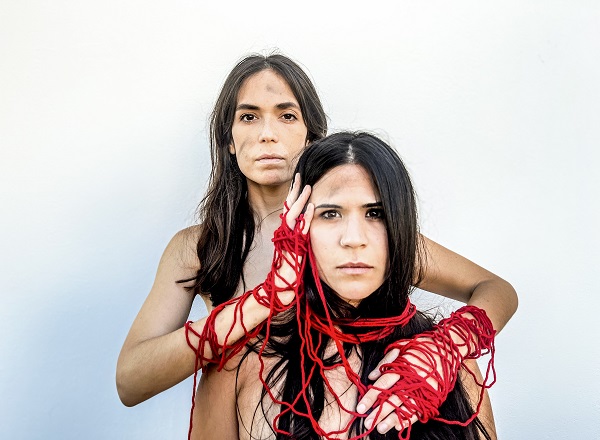
— Catch (19)22
14 & 15 September • Courtyard of Royal Burial Clusters of Aigai
Catch-22 –the title of Joseph Heller’s novel– means “vicious circle” and has become established as an expression denoting the irrational of human existence, the irrational of war, where success and disaster are inextricably linked.
For what else is war but one more Sisyphus rolling his rock up the mountain and then repeating the process all over again? Catch (19)22 explores the Asia Minor Catastrophe, through the irrationality of war and dares to contrast it with the peak and decline of the Macedonian civilisation. There, over the tombs of the great kings, where grandeur and death are the two sides of the same coin.
The site-specific performance Catch (19)22 unfolds in the archaeological site of the Royal Burial Clusters of Aigai, based on a collection of oral and written testimonies about life in Asia Minor and with the artistic contribution of students of the 1st Junior High School of Veria.
Creative team
Direction, dramaturgy, coordination of artistic workshops: Athina Hadjiathanasiou
Texts, dramaturgy: Sofia Gourgouliani
Music supervision: Nefeli Bravaki
Sets, costumes: Evgenia Vissariou
Lighting: Giannis Zervas
Performers: Evgenia Vissariou, Giannis Zervas, Anta Kougia, Panagiota Haidemenou, Athina Hadjiathanasiou
Local actors (To be decided after audition)
With the participation of students of the 1st Junior High School of Veria (Philippeio), members of local amateur theatre groups
Production: CALD Productions
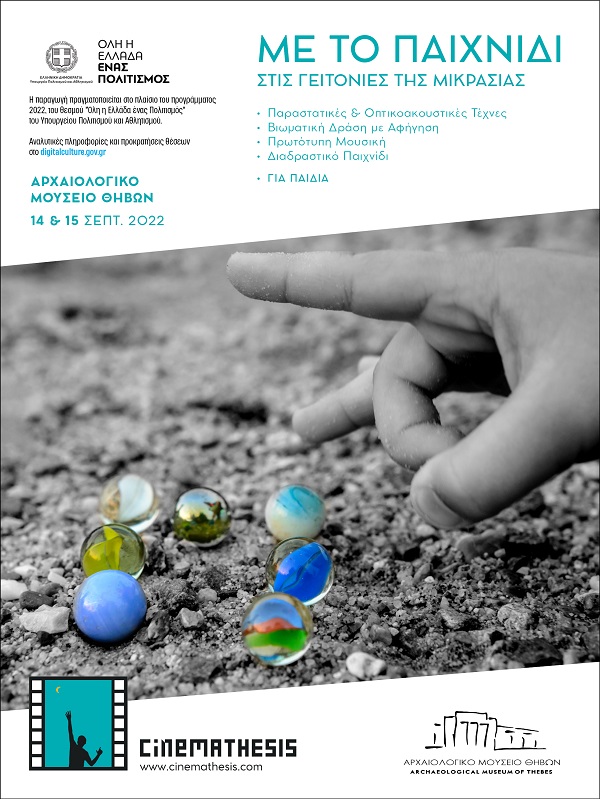
— Playing in the Neighbourhoods of Asia Minor
14 & 15 September • Archaeological Museum of Thebes
An experiential event for children, with elements of dramatised documentary and narrative performance and with original music, revolving around the games in the neighbourhoods of Asia Minor, which “tell” in their own way the everyday life of the communities prior to the 1922 Catastrophe. Games that seem forgotten, played without ever being told, left to perish along with the hope for the return to the motherland.
The thread of collective memory unfolds through a story that travels in time, through playing with children games that were passed down by those who saw pain in refugee yards, along with the smile of a carefree childhood.
Stories of integration and rebirth in a new land as well as ways used to express resourcefulness, the grace and imagination of a people, will be presented with the help of contemporary audiovisual means and restored old toys.
Creative team
Director, trainer: Yanna Deligianni
Archaeologist, author: Dr Evangelia Papadopoulou
Lighting: Eliza Alexandropoulou
Sets: Evangelia Therianou
Composer, musician: George Kasavetis
Sound engineer: John Antypas
Filmmaker, photographer: Christos Petropoulos
Filmmaker, technical manager: George Tataris
Front, designer: Sakis Stritsidis
Communication manager: Eleanna Georgiou
Production: CINEMATHESIS
VISUAL ARTS – PERFORMANCE
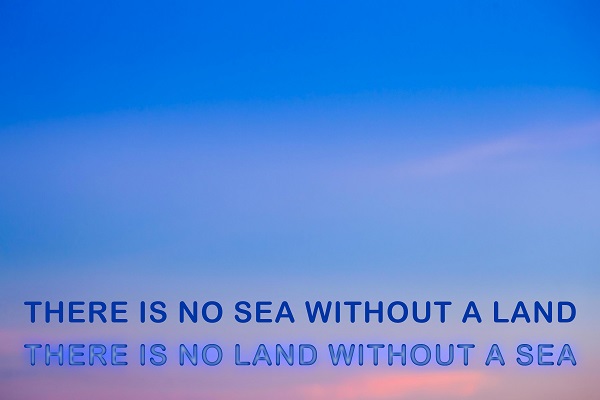
— 2291
20 & 21 July • Archaeological Museum of Thessaloniki
Art installation: until 15 September
An interdisciplinary project by Bill Balaskas, which attempts a poetic reading of the anniversary of the Asia Minor Catastrophe (1922). It revolves around a new large-scale neon installation consisting of the phrases “THERE IS NO SEA WITHOUT A LAND” and “THERE IS NO LAND WITHOUT A SEA”.
The project proposes a more contemplative or –even– optimistic approach to historical trauma, and is accompanied by a bilingual publication, two workshops, a dedicated website, and an international conference co-organised by Kingston University, London.
Through the project, 2291 becomes an imaginary date that refers not only to the universal and timeless nature of refugee disasters, but also to the hope that they will disappear sooner rather than later.
Creative team
Artist, Director of Research, Business and Innovation at the School of Art & Architecture of Kingston University, London: Bill Balaskas
Production: ΕRGON – CULTURE
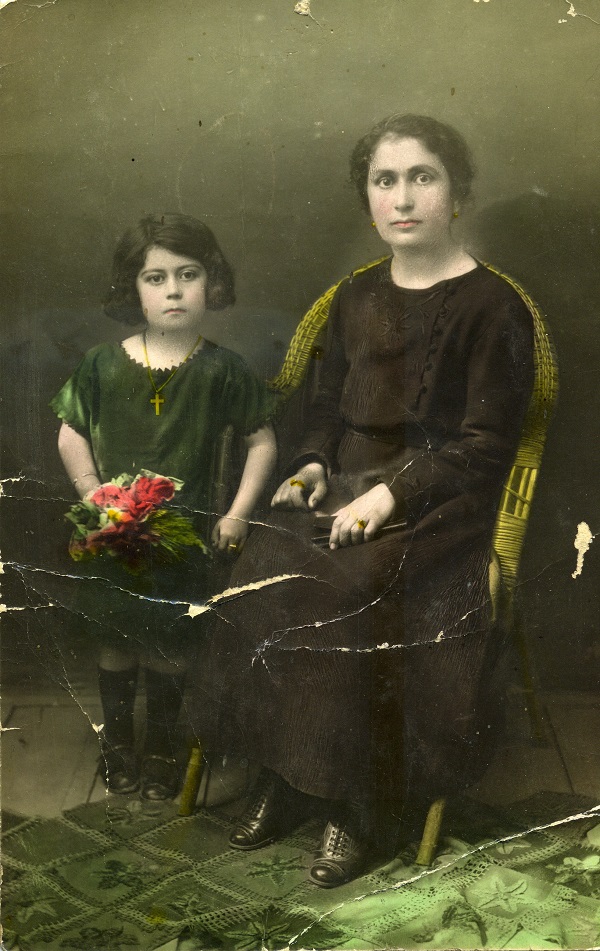
— Prunus Armeniaca / An Intertemporal Narration Through Images and Sounds
29 & 30 July • Archaeological Museum of Florina
Exhibition duration: 26/7-28/10/2022 (in the Archaeological Museum of Florina)
Musical performance: 29/7 and 30/7/2022 (in the courtyard of the Archaeological Museum of Florina)
Two separate inter-artistic projects: a photography installation titled Compositions and a musical performance titled Zruits I-II, which means Dialogues.
Compositions presents stories from the interwar period and historical moments of the Armenian community through 150 unique pictures from the archival photographs of the Armenika magazine, curated by Vangelis Ioakimidis.
Zruits I-II is a meeting of duduk with classical guitar, a conversation between the traditional and contemporary Armenian music by Vahan Galstyan and Lefteris Chavoutsas, performed by singer Maria Spyridonidou.
Compositions and Dialogues take root in the same place and call attention to stories and memories, whole worlds that are brought to life in the shade of an apricot tree, a Prunus Armeniaca – the symbol of Armenia.
Creative team
Production, implementation: Ergastirio Filosofias kai Fotografias in collaboration with the Azatamard Association
Project managers: Alexandra Athanasiadou, Vangelis Ioakimidis
Visual identity, graphic applications: Thomas Ginoudis
Project coordinator: Sofia Mikaelian
Compositions
Photography installation’s curator: Vangelis Ioakimidis
Research and photographic archive manager: Maik Tsiligirian
Consultant: Anais Kazantzian
Zruits-I-II (Dialogues)
Duduk: Vahan Galstyan
Guitar: Lefteris Chavoutsas
Singing: Maria Spyridonidou
Consultant: Takoui-Kouin Minasian
Production: Ergastirio Filosofias kai Fotografias
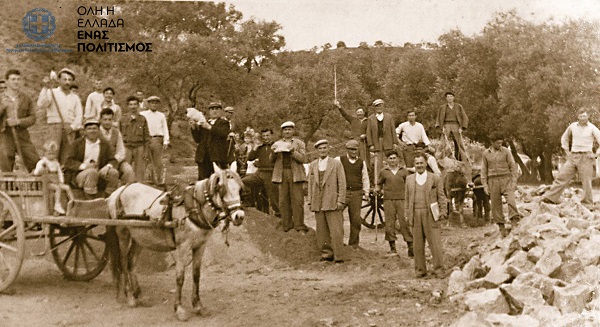
— From Asia Minor to Northern Evia
2 & 3 August • Vlachothanasis Residence, Northern Evia
Seventeen refugee settlements were integrated into Northern Evia. Four out of these transformed into separate refugee villages that took their names from respective regions of Asia Minor: Neos Pirgos, Neo Mousarli, Nea Egin, Nea Sinasos.
Refugees from Prokopi of Cappadocia, Makri and Livisi, Marmara, the region of Smyrna, Ardassa in Pontus, Michaniona in the area of Kyzikos in Propontis, and Yosgati in the far reaches of Asia Minor, settled in Northern Evia, bringing along their traditions and know-how, and breathing new life into the place.
A performance combining the screening of stories of present-day descendants of refugees and archival photographs with the live presentation of original compositions based on the rhythms and melodies of Asia Minor, attempts to capture the contribution of refugees to the shaping of this place’s new identity, taking the audience on a journey across a past yet recent space-time continuum.
Creative team
Video direction, editing: Alexandros Vozinidis
Composition, orchestration: Vangelis Vrachnos, Periklis Vrachnos
Research: Alexandros Kalemis
Idea, production direction: Tessie Giannakina
Musicians onstage: Andriana Achitzanova Petala (ney), Makis Baklatzis (violin), Nikos Varelas (percussion), Vangelis Vrachnos (double bass), Periklis Vrachnos (lavta, viola), Elena Moudiri Hasiotou (narration, percussion)
Production: OLIPOLI

— Ammophila vol.3: There was land here before
23 & 24 August • Archaeological Museum of Neapolis Voion
Modern art exhibition duration: 18-28/8/2022 (School of Elafonissos, Laconia)
Musical performance: 23/8 and 24/8/2022 (Archaeological Museum of Neapolis Voion, Laconia)
Ammophila vol.3: There was land here before is an exhibition that renegotiates the way in which we perceive and experience places and the dominant narratives projected onto them.
We are concerned with places, which we regard as our subsoil, rituals of coming together and coexisting, and stories that have shaped these relationships. The exhibition is inviting us to give new interpretations and stories to places that can be real or made up through our collective phantasies: phantasies of a non-existent land, a land that is different, a land that is differently inhabited.
A land that can shake us, a land in decomposition, a land in bloom, a land that trembles, a limitless land.
Creative team
Featured visual artists: Marina Velisioti, Christos Venetis, Paky Vlassopoulou, Dionysis Kavallieratos, Fotini Kalle, Loukas Kalliantasis, Panagiotis Kefalas, Ilektra Maipa, Persefoni Nikolakopoulou, Ilias Papailiakis, Dimitris Rentoumis, Nana Sahini, Nana Seferli, Eva Stefani, Kleopatra Tsali, Manos Tsichlis, Alexis Fidetzis, Poka-Yio, Sasha Streshna, Vaskos
Featured authors: Stefanos Giannoulis, Kostis Zouliatis, Emmanuela Kyriakopoulou, Anastasia Michopoulou, Christina Papoulia, Eleni Riga, Theofilos Tramboulis, Vicky Tsirou, Evita Tsokanta
Curated by: Ammophilia
Production: Ammophila
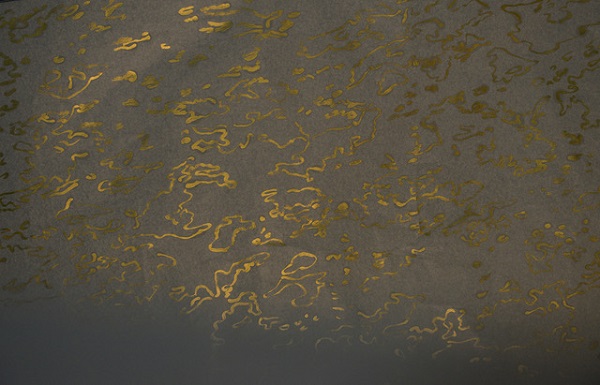
— IN PRESENTIA
1 & 2 September • Bastion of Saint George, Medieval City of Rhodes
Performances: 1 & 2 September, at 20.30 – Advance bookings are compulsory
Exhibition duration: 15 July – 2 September, on Sundays & Tuesdays, 9.30 – 17.00 – Free admission
IN PRESENTIA deals with the Asia Minor Catastrophe through the notion of mourning and the encounter with the sea. The work highlights the complexity of the trauma’s longevity, combining light, the sea’s movement, and sound. A visual and sound installation – it functions as a score for the performance.
A silent “in-memoriam” tribute to all refugees who experienced the trauma of displacement, who lost their lives in this very sea or moved on to a new life. We attempt a dialogue inside the silence of loss, recollecting memories from our past, like invaluable flashes of insight that shed light to the darkness of mourning.
We bring the dead to life within our memory, with tenderness towards what remains in presence, as a part of our lives, invaluable.
Creative team
Visual art: Christina Nakou, Anna Pangalou
Lighting: Dimitris Pantelias, Paninos Damianos
Performing artist, voice soloist: Anna Pangalou
Production: SILENT ISING
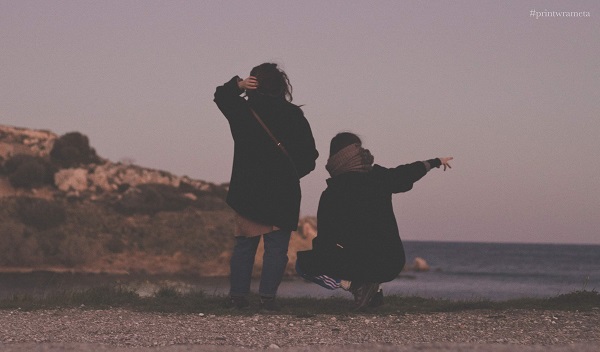
— Before Now After
2 & 3 September • Archaeological Museum of Leros
Before Now After is an interdisciplinary project bringing together contemporary dance, traditional live music, oral history, documentary film and photography.
Through a contemporary journey on the island of Leros, the project creates movement while focusing on the meeting with “the other” body (that of the local population, the co-creator, the place, the object) and a dialogue across the collective past, present and future.
The project explores the excavation of the past as an opportunity to listen through the body and to meet with opinions and events of another era. A chance to converse through art with the local community, to set in motion different ways of relating to our history and exploring the collective undertaking of shaping our future.
Creative team
Concept, choreography, research, performance: Polena Kolia Petersen, Chloe Aligianni
Documentary direction & editing, research: Xenia Tsilochristou
Live music: Antonis Ntallaris
Photography-reportage: Giorgos Kalkanidis
Production: Third Planet

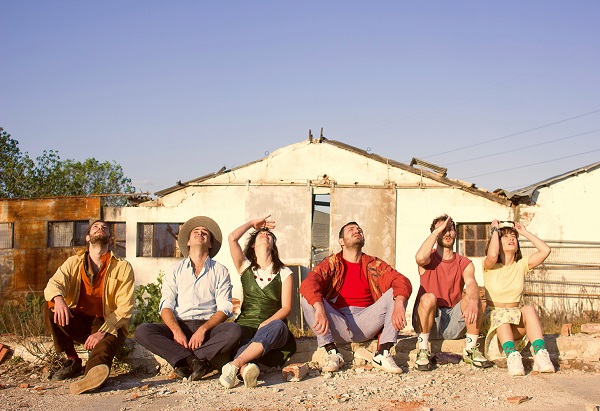
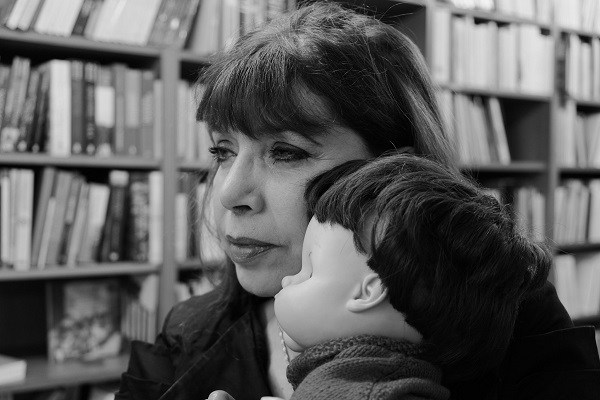
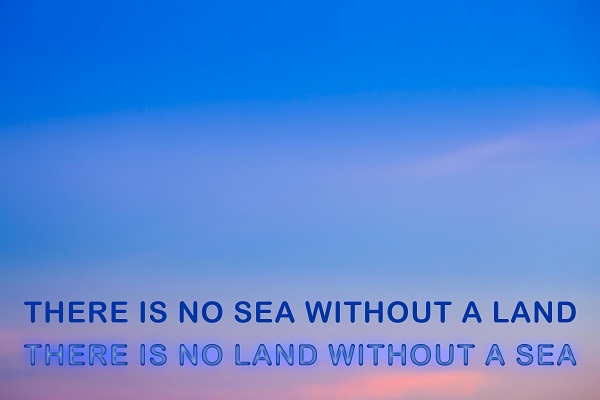
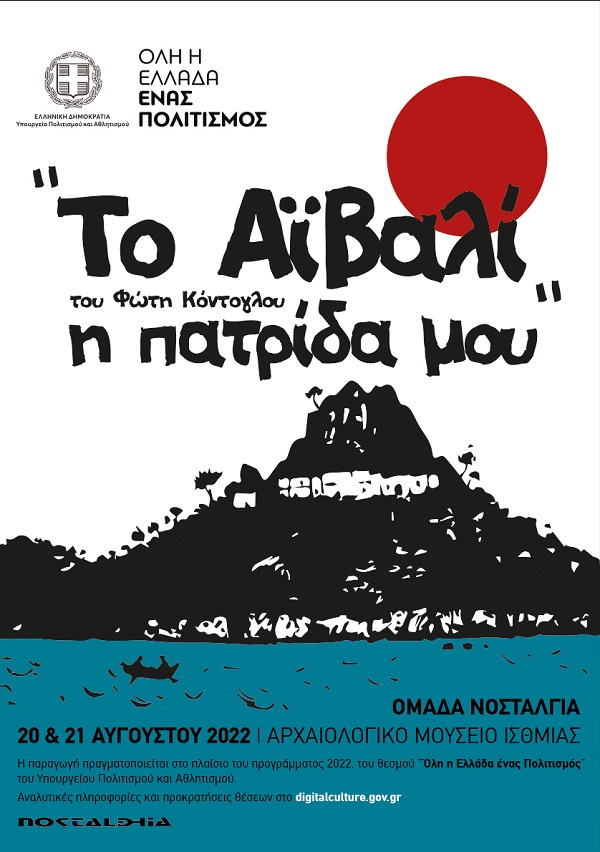

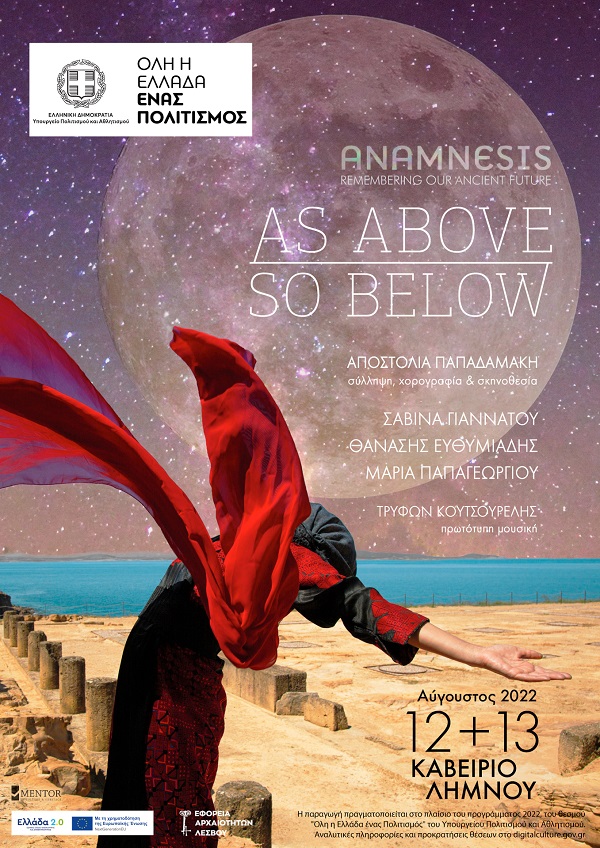
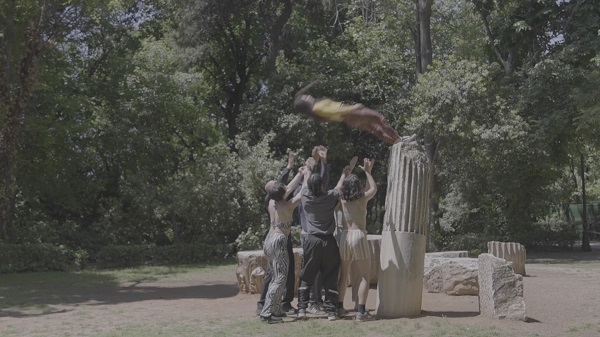
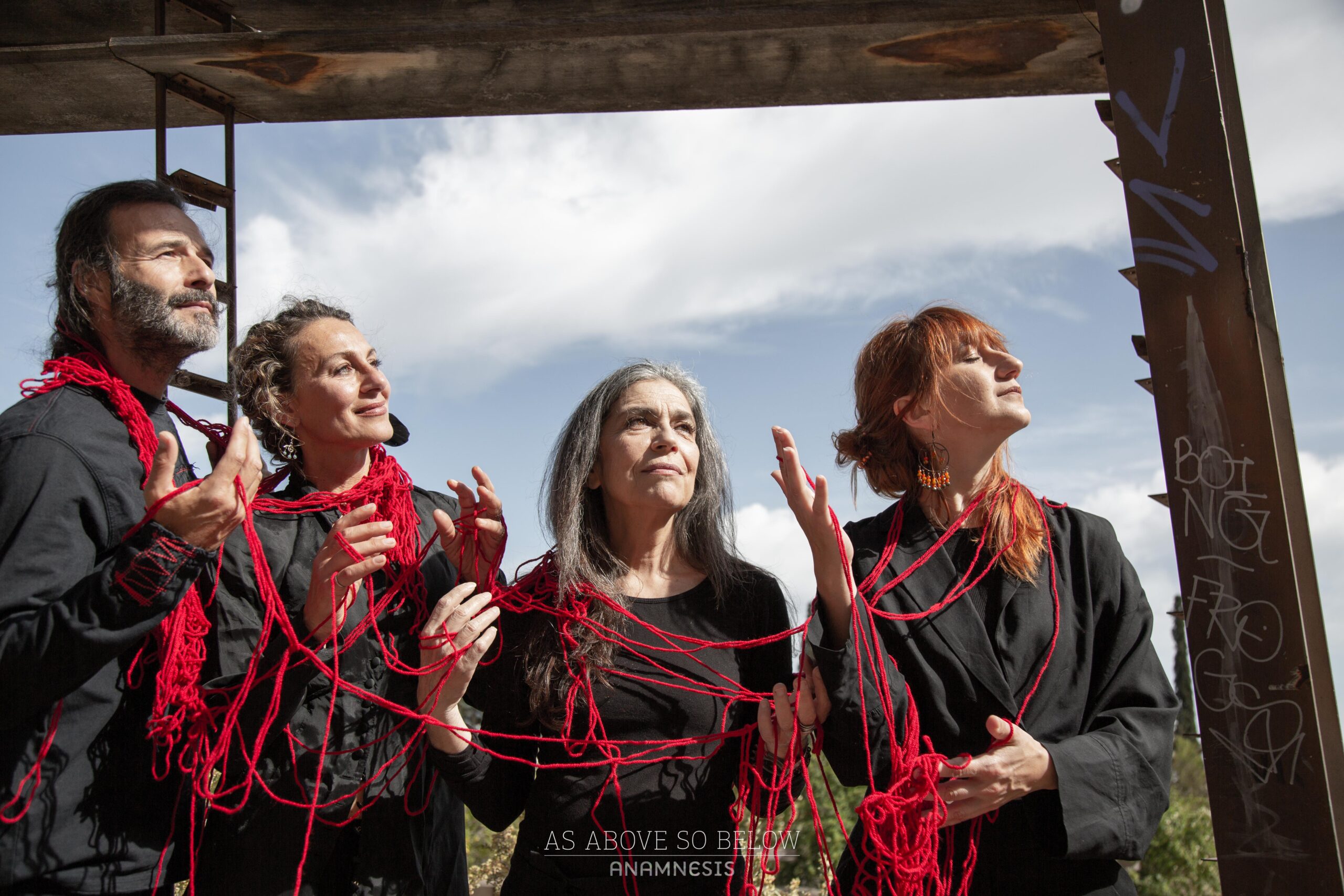
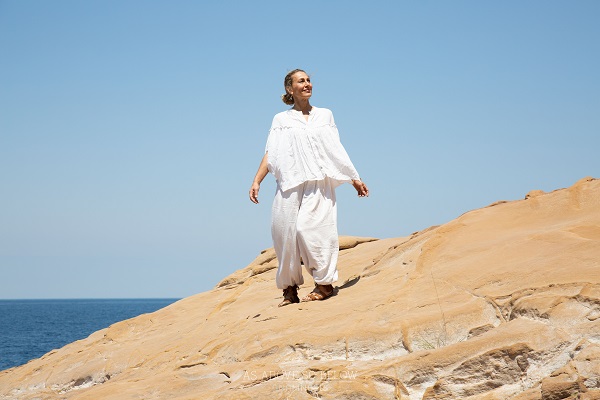
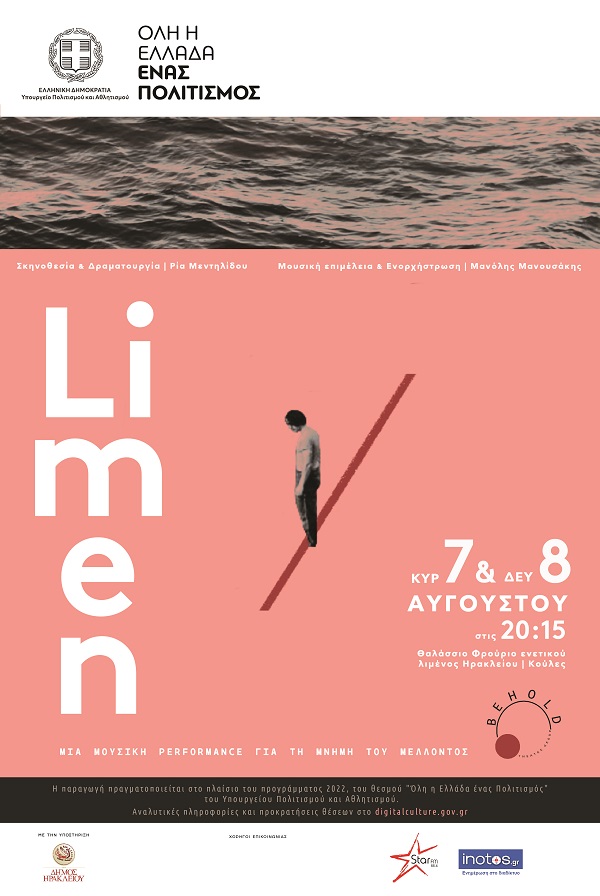
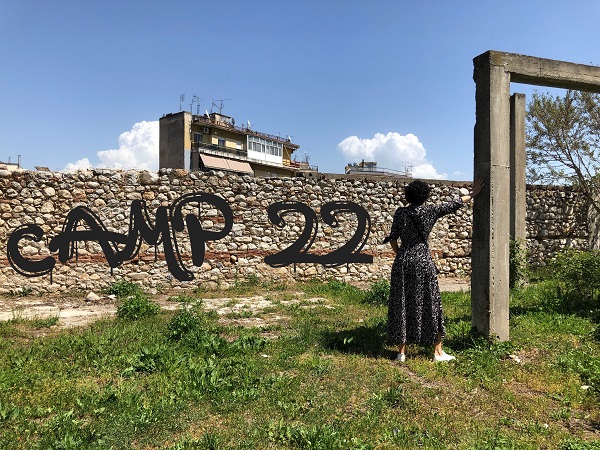
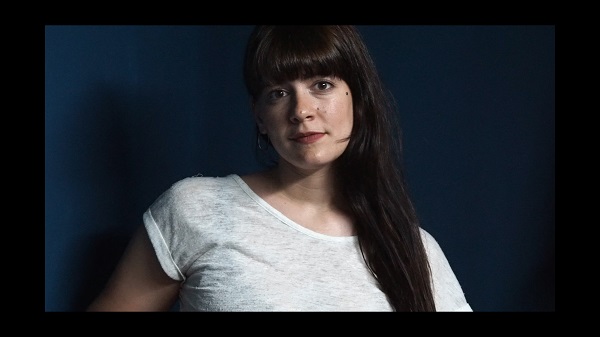
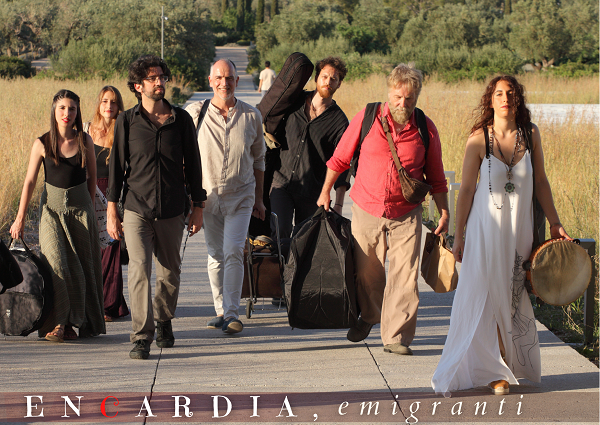
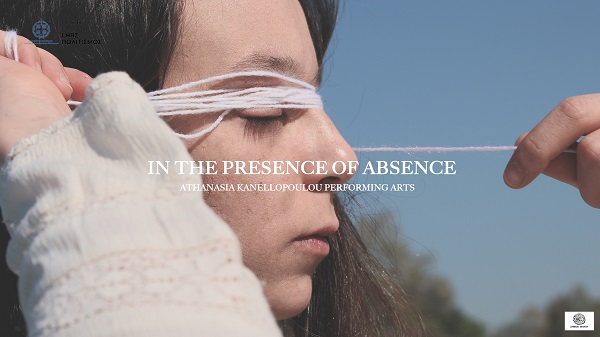
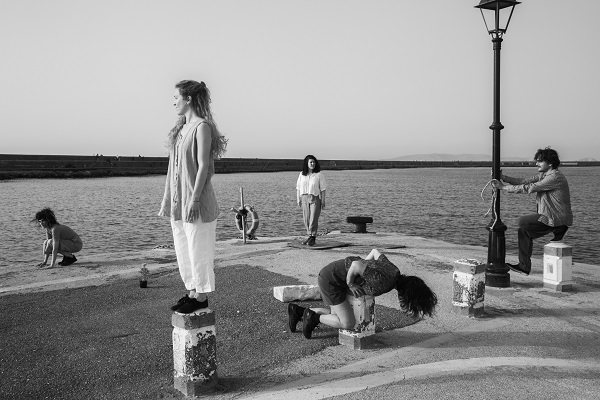
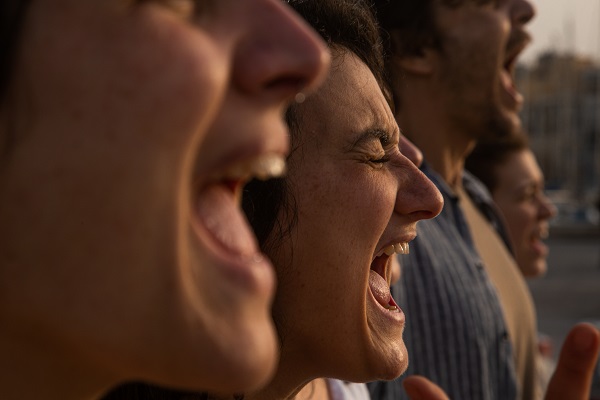
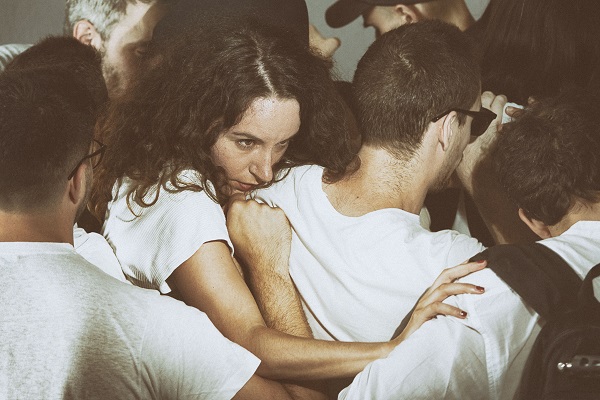
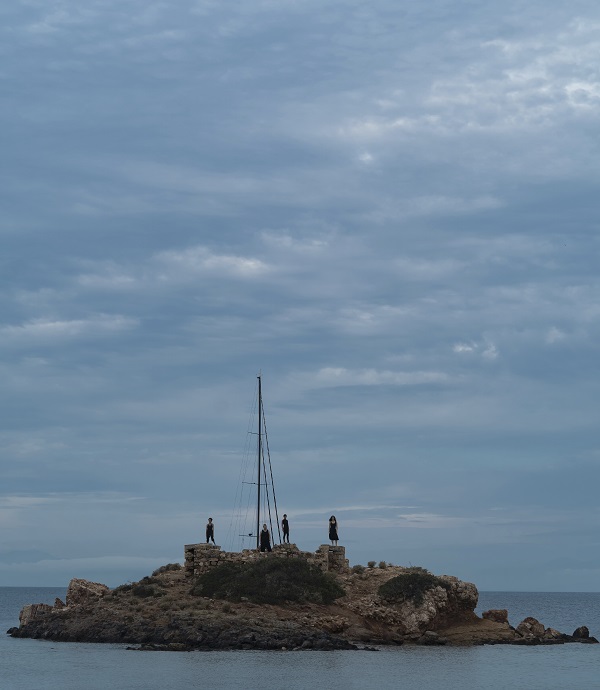
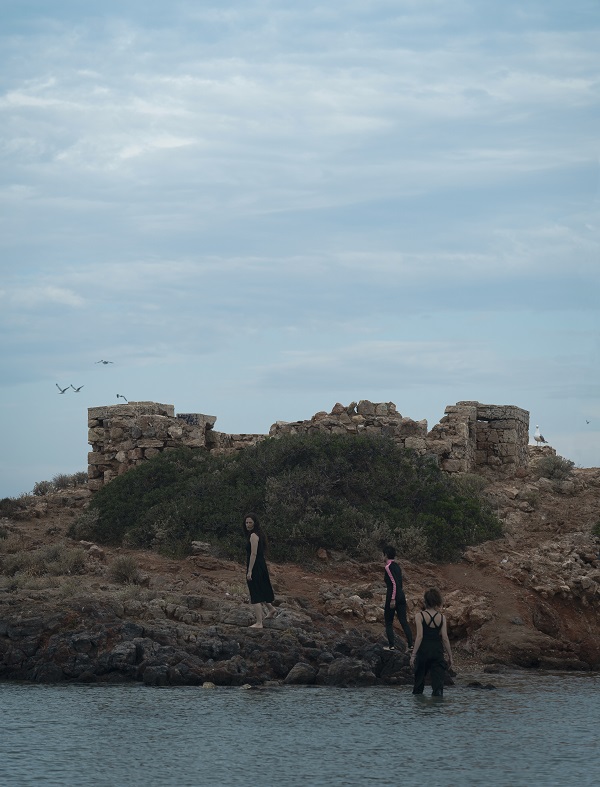
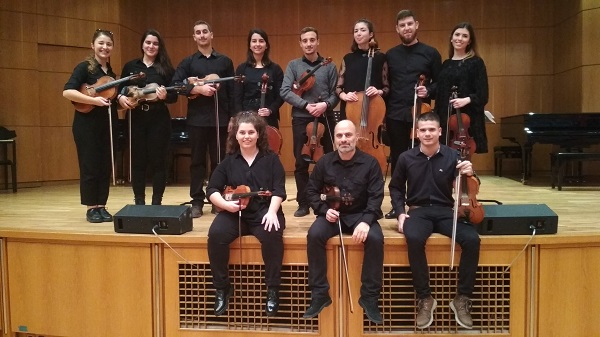
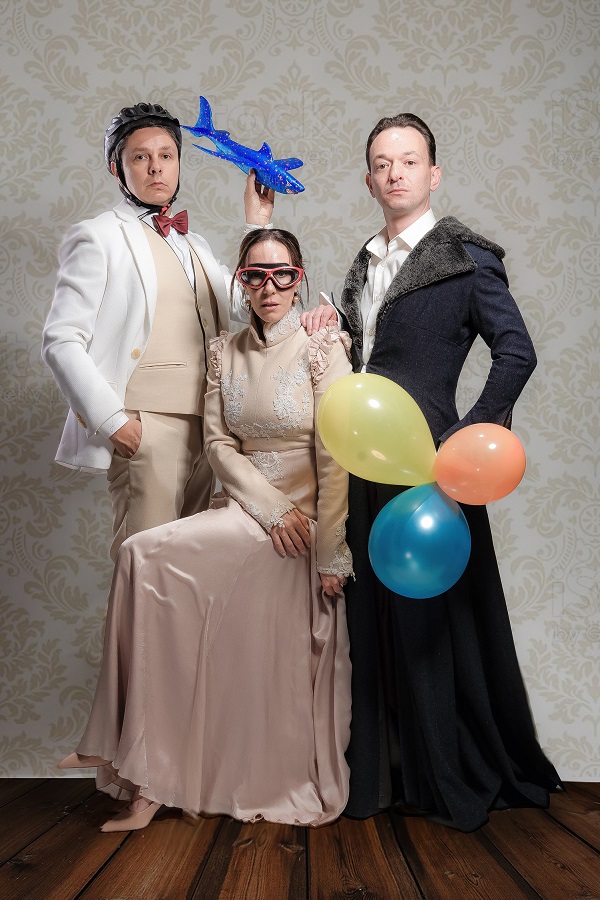
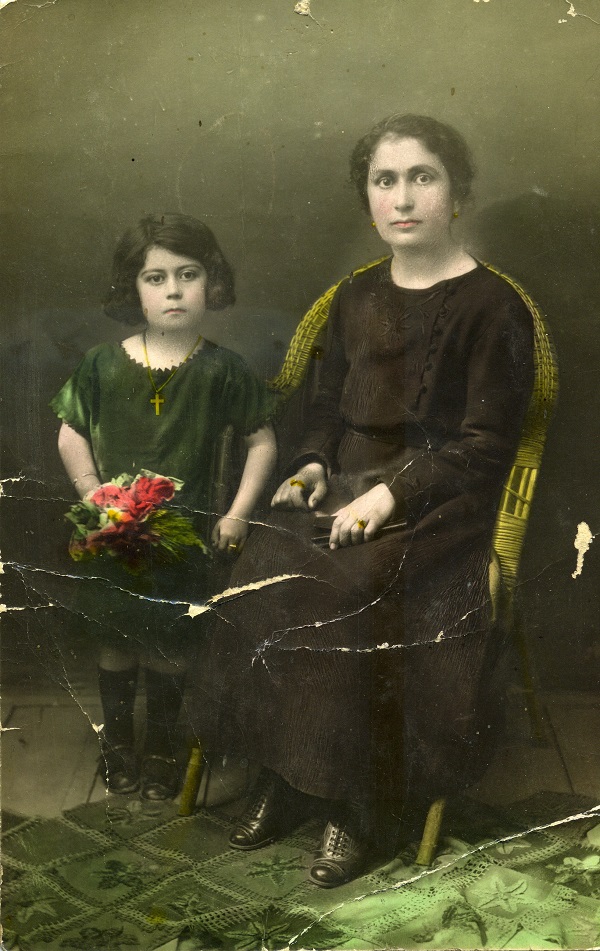
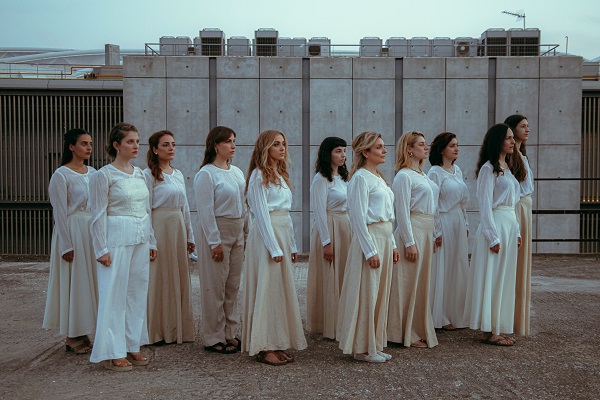
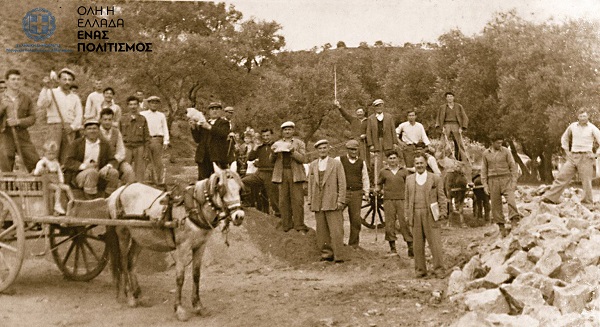
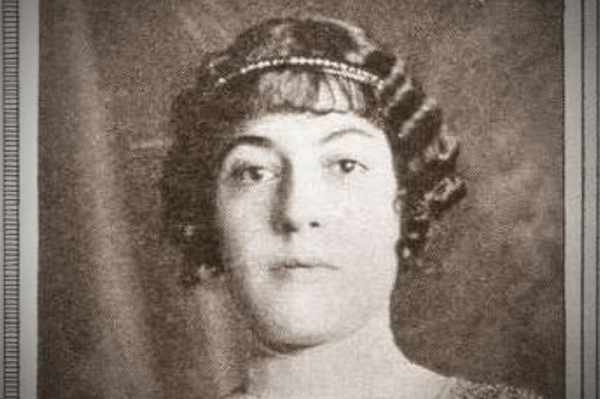
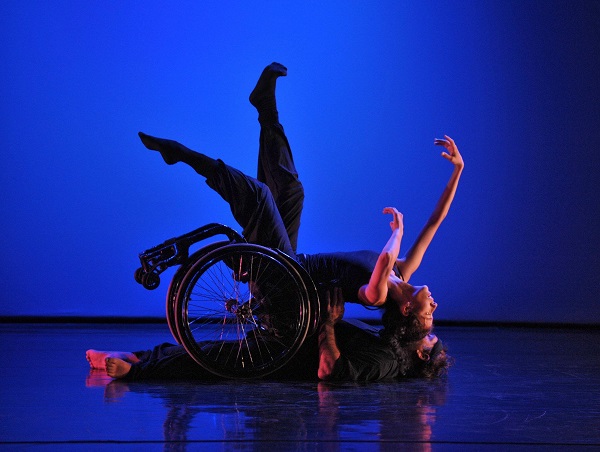

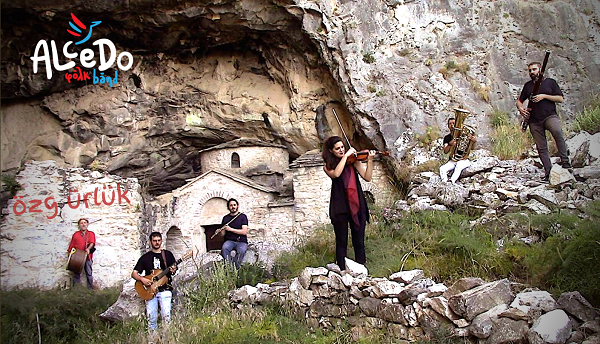
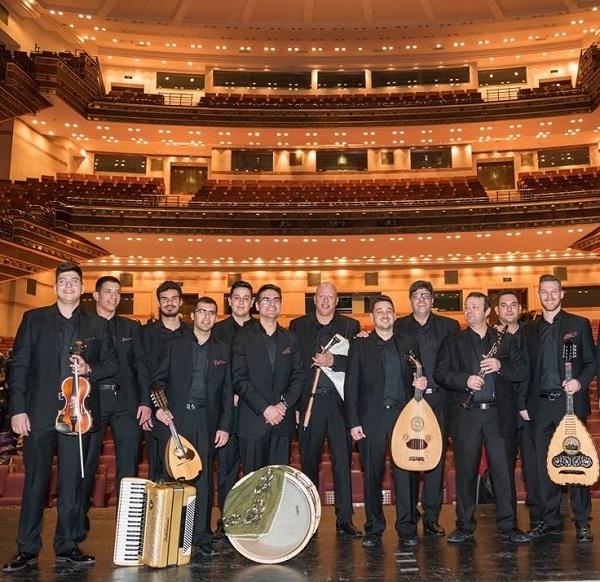
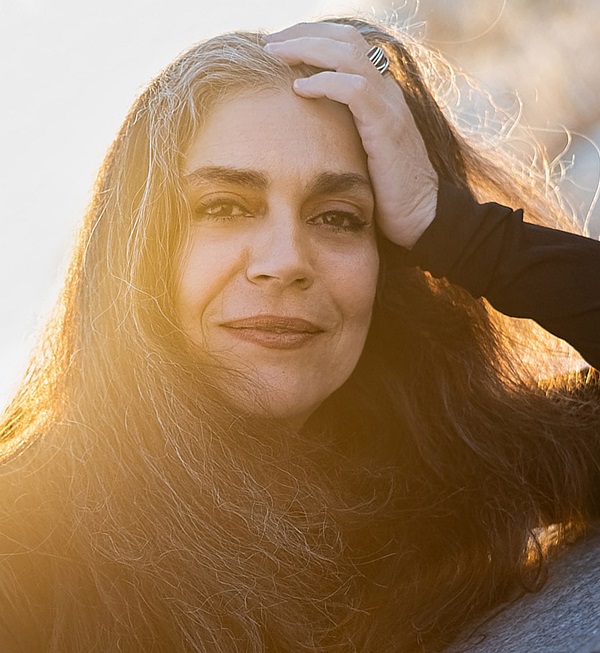
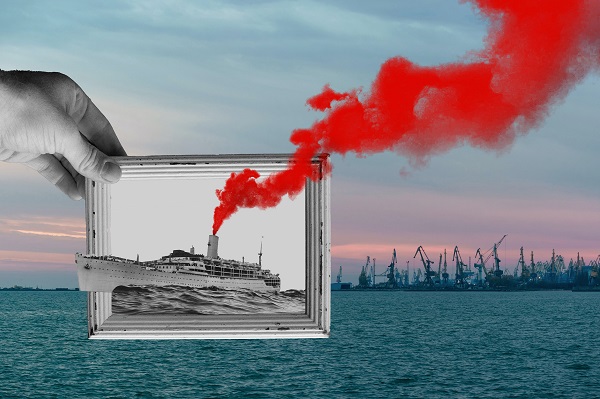
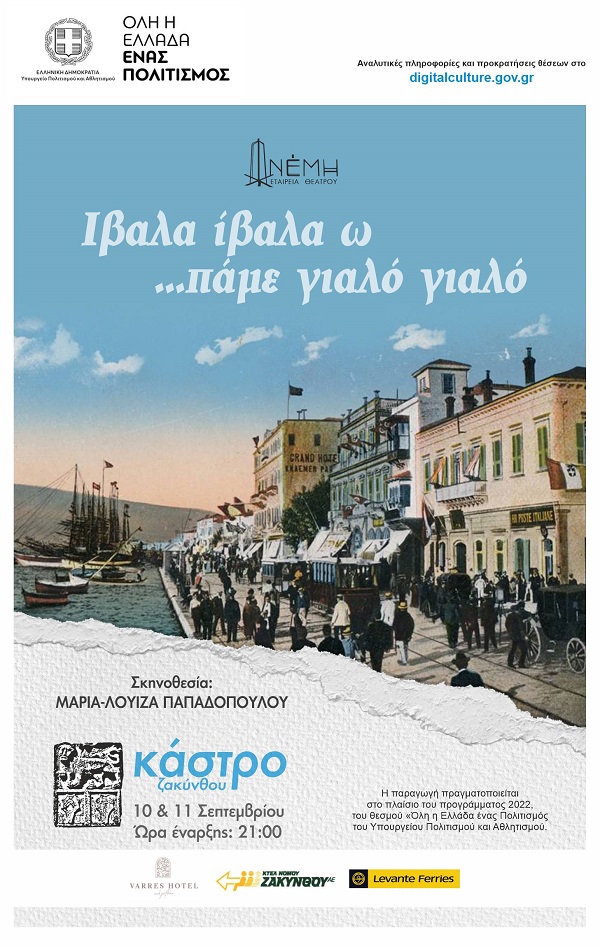
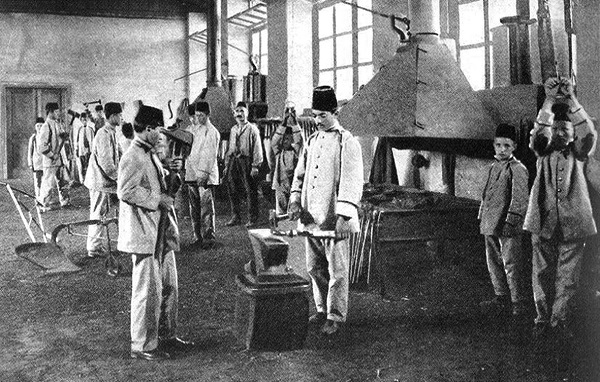
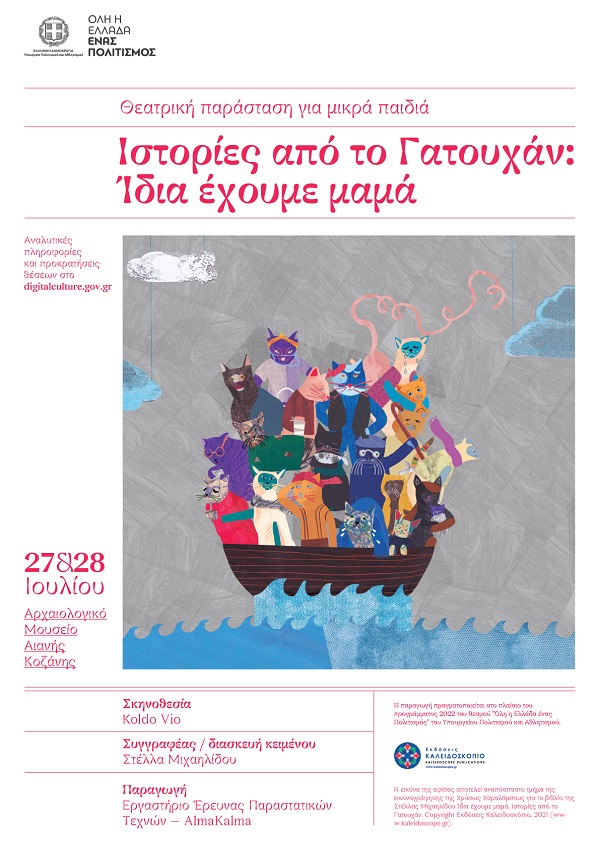
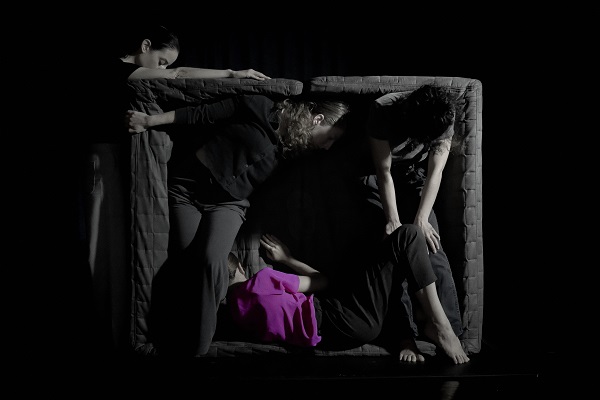
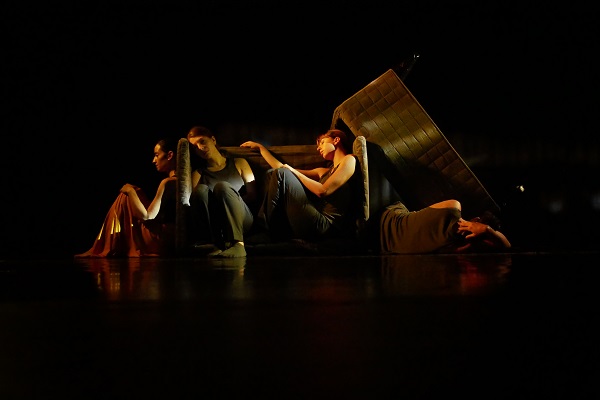
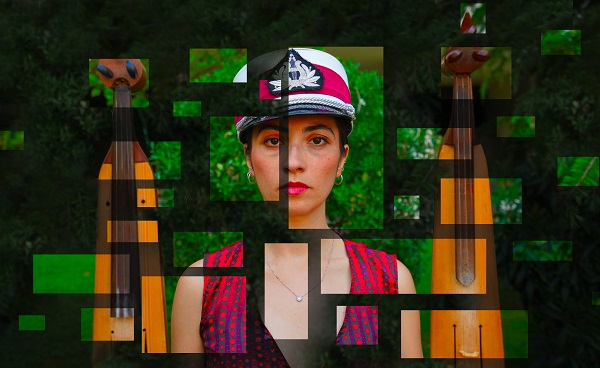
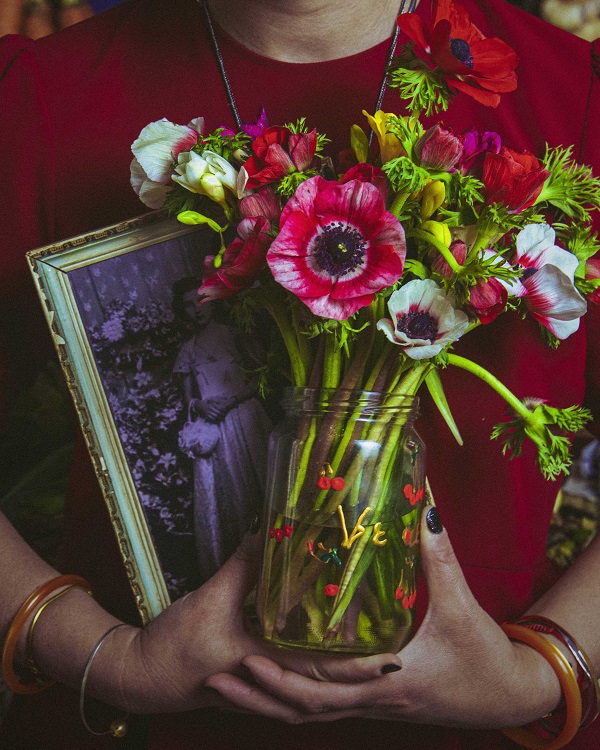
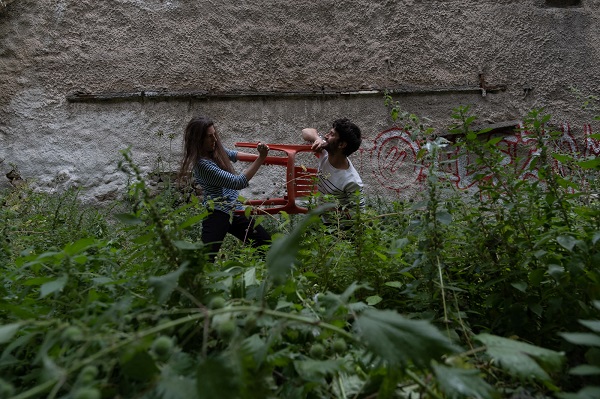
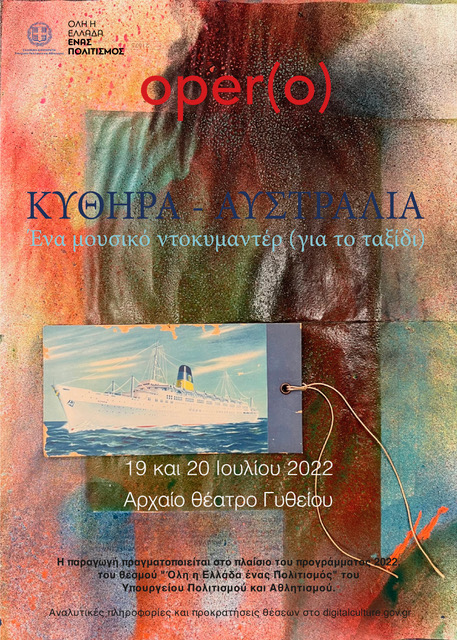
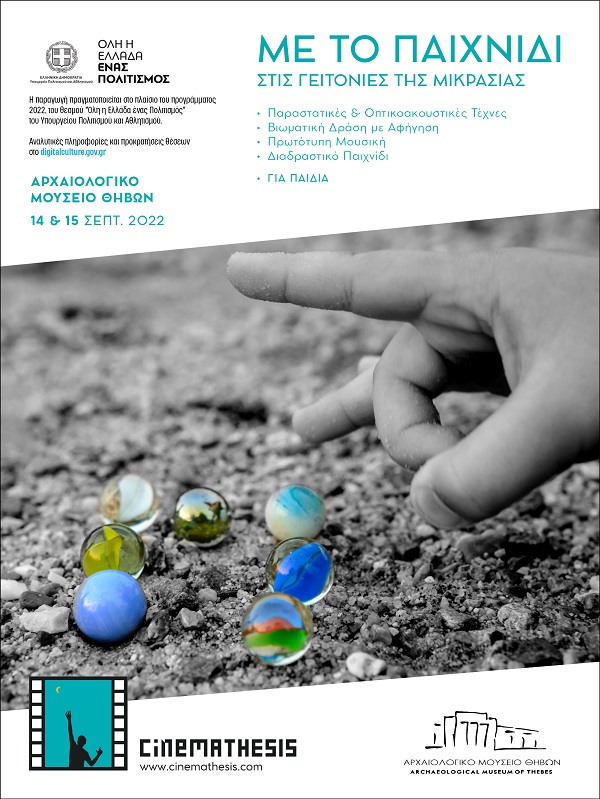
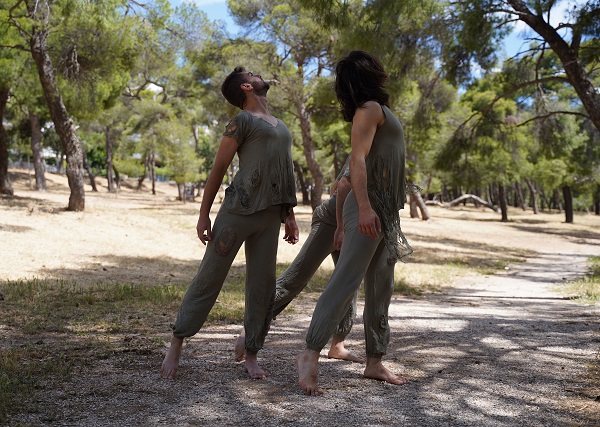
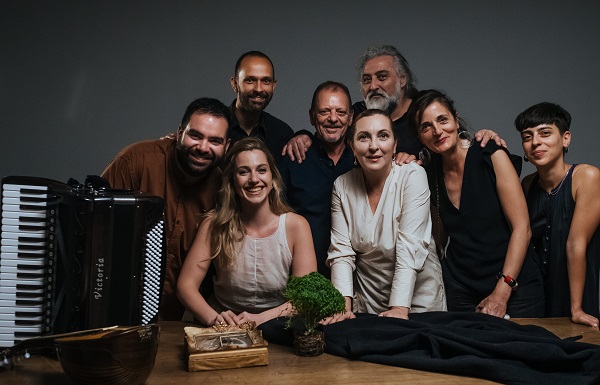
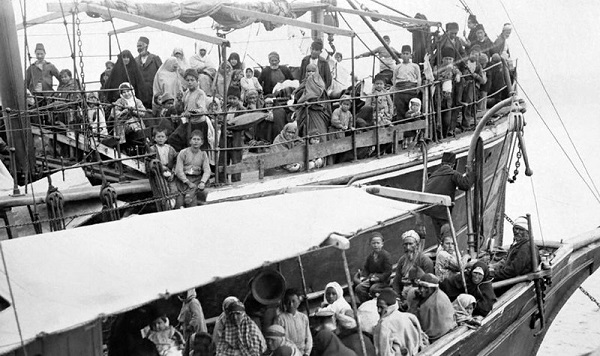
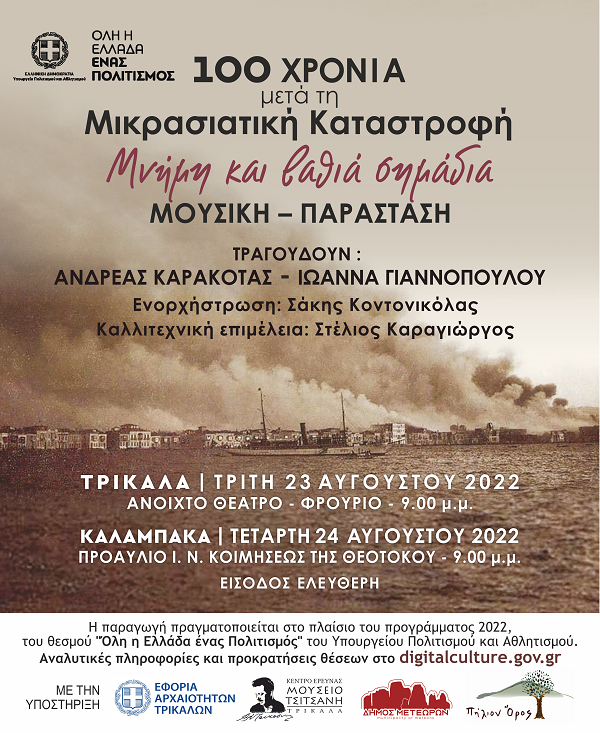
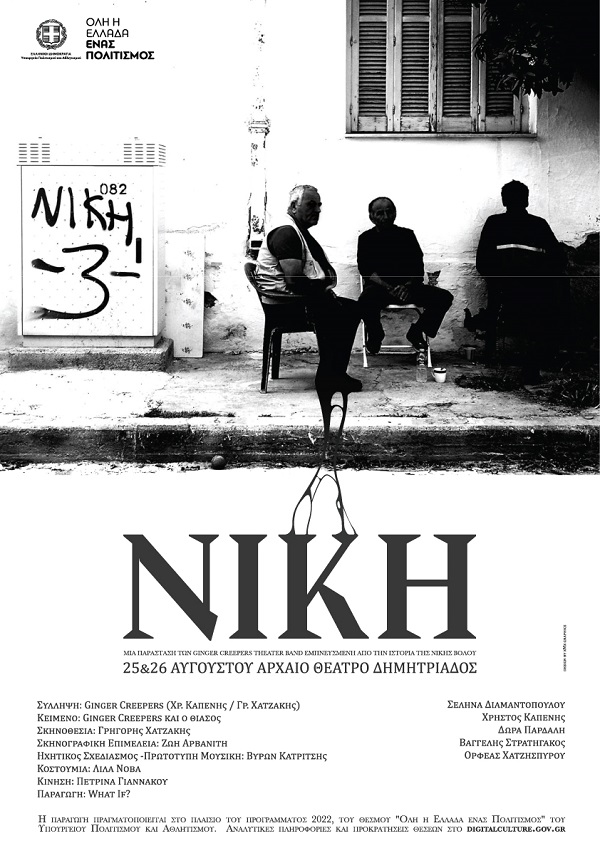
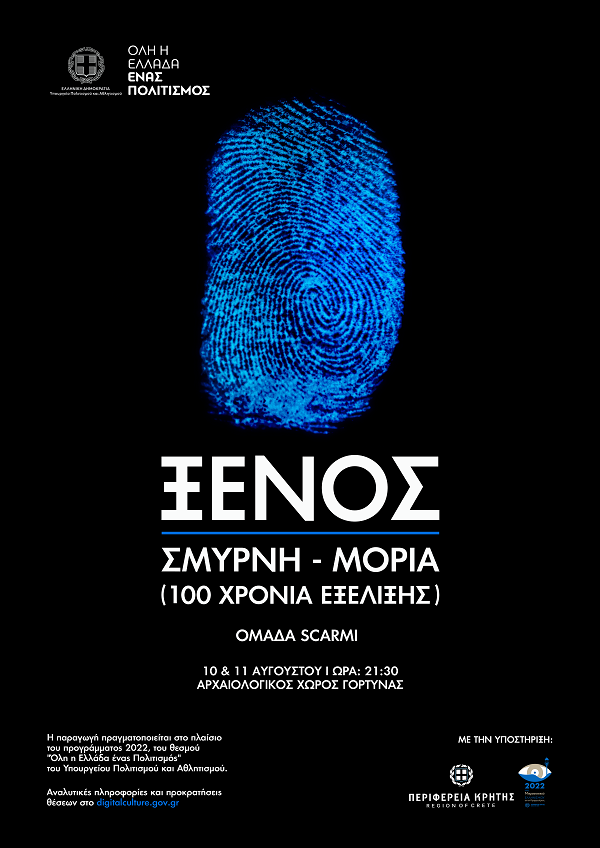
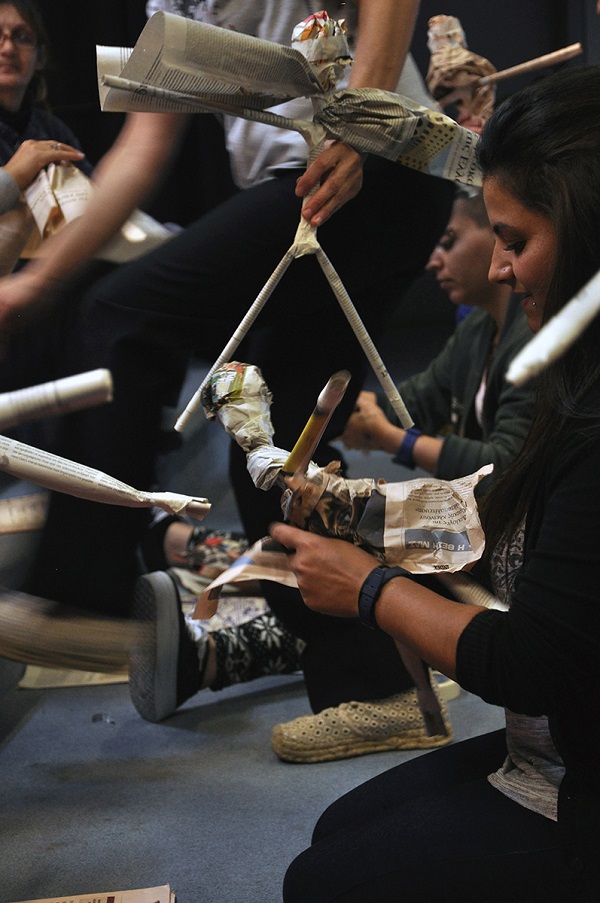
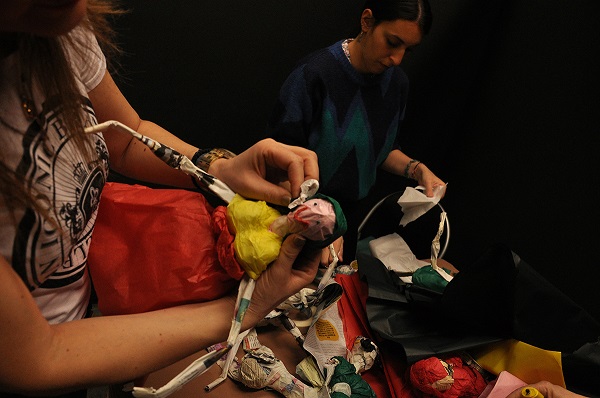
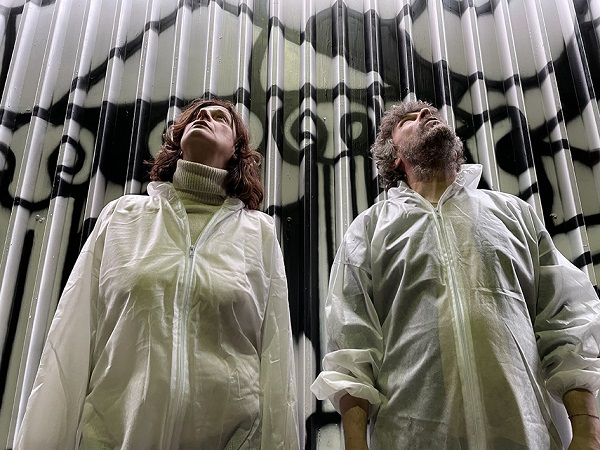
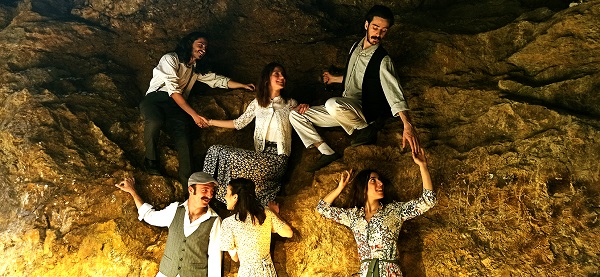
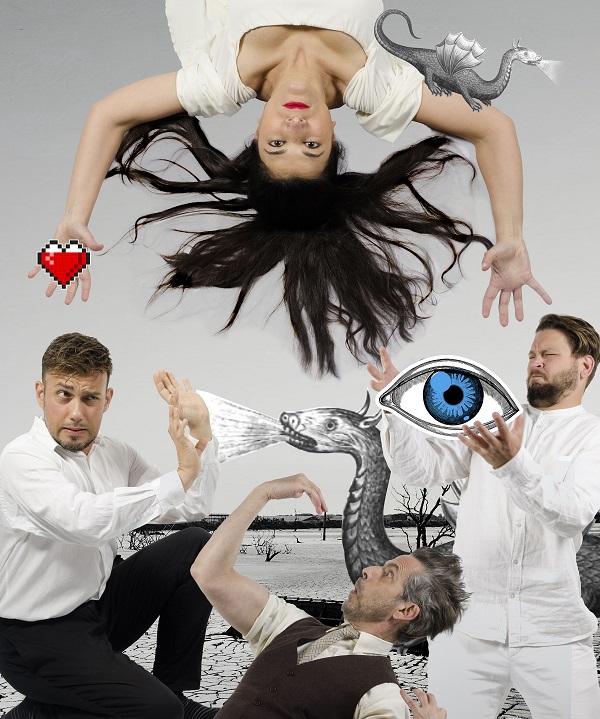
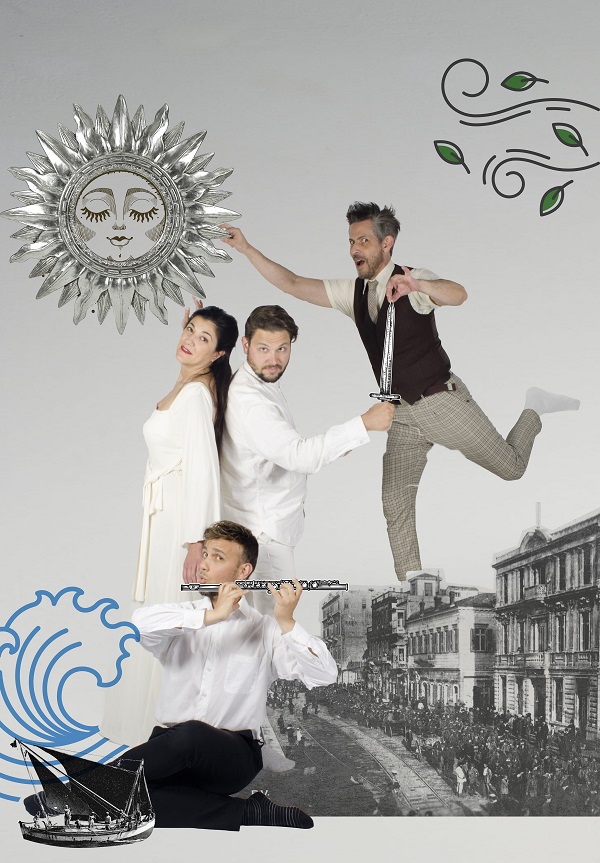
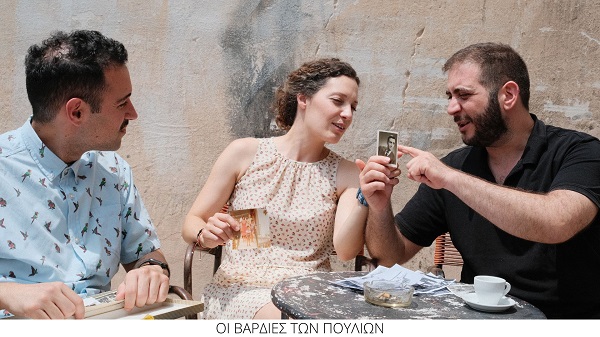
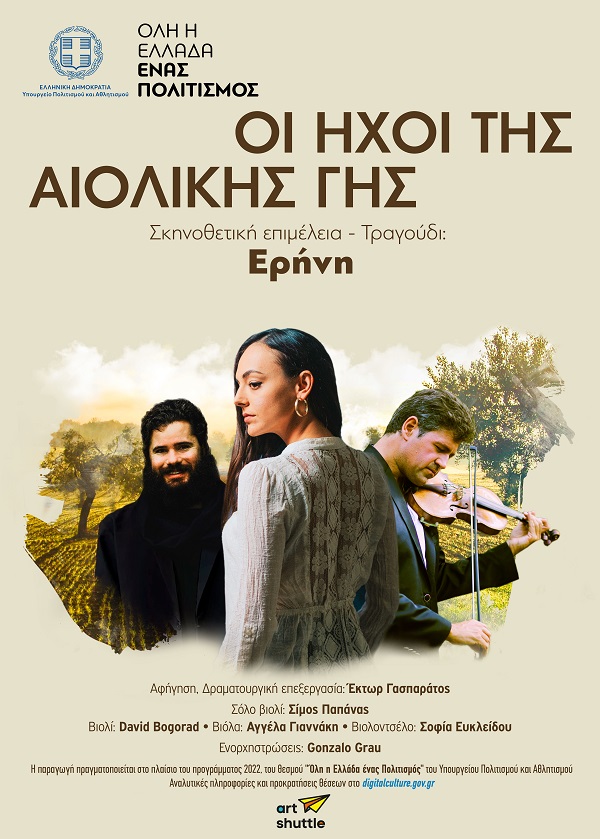
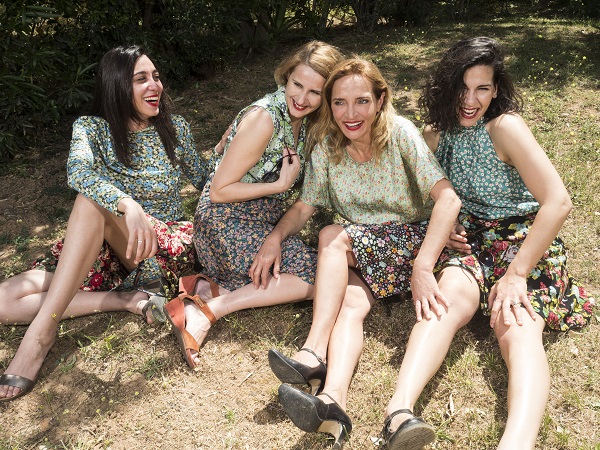
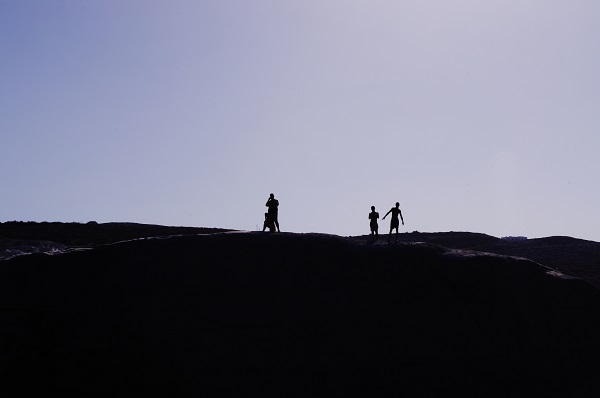
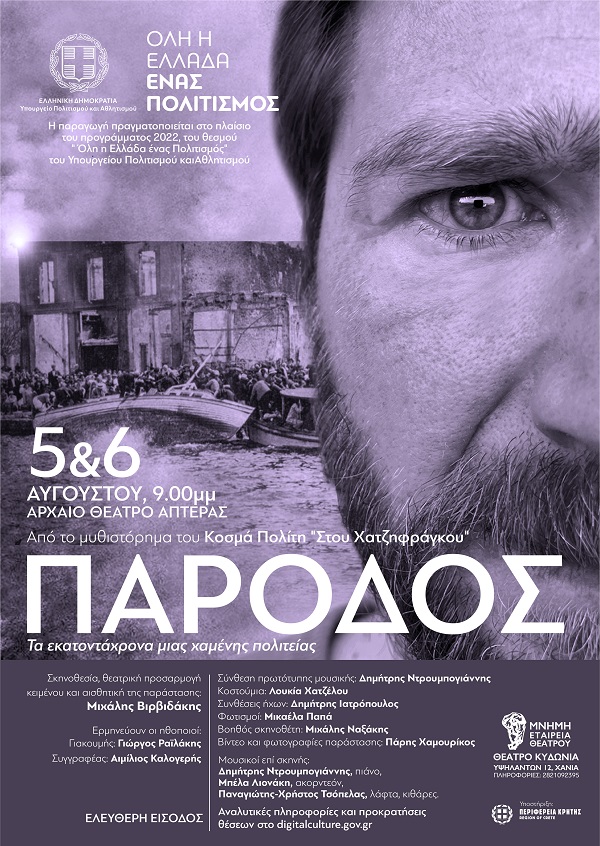
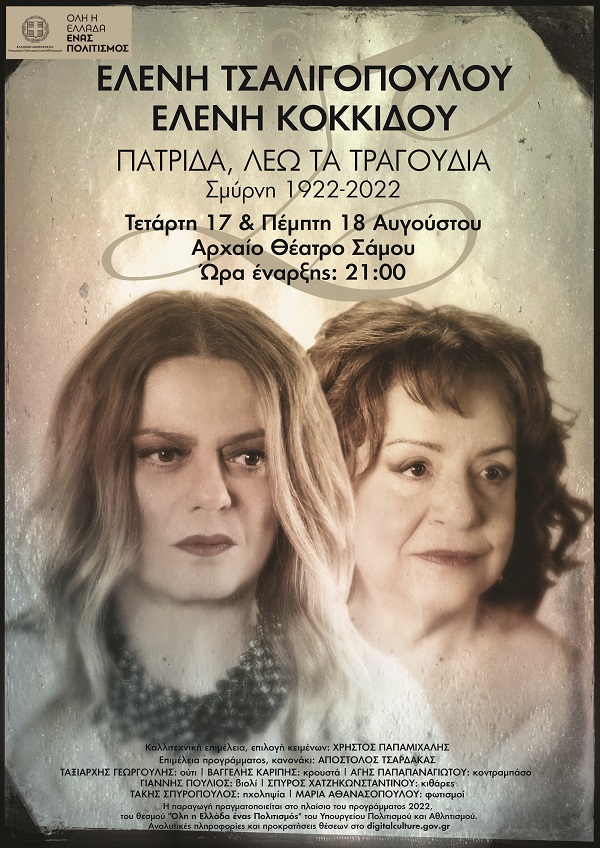
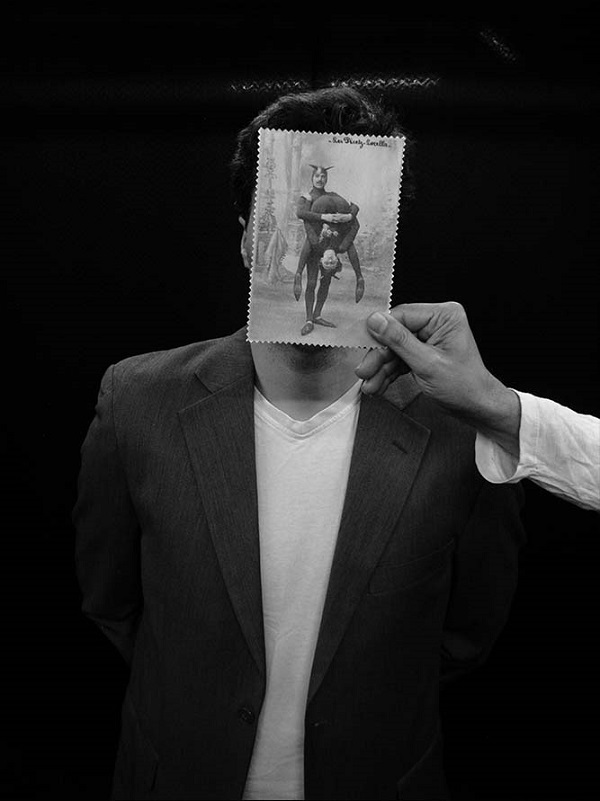
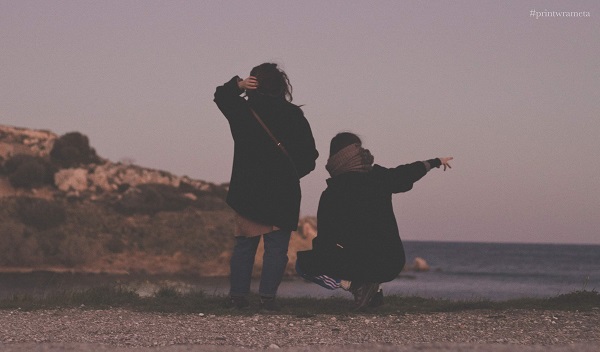
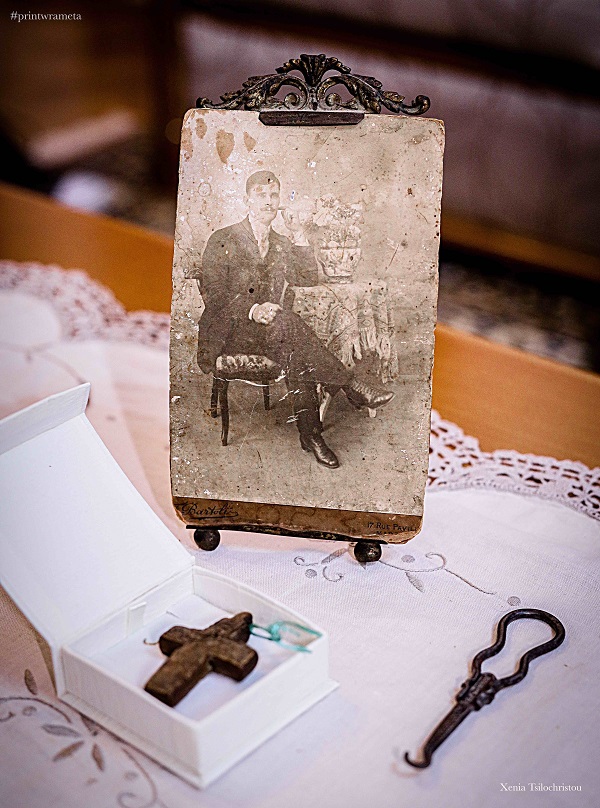
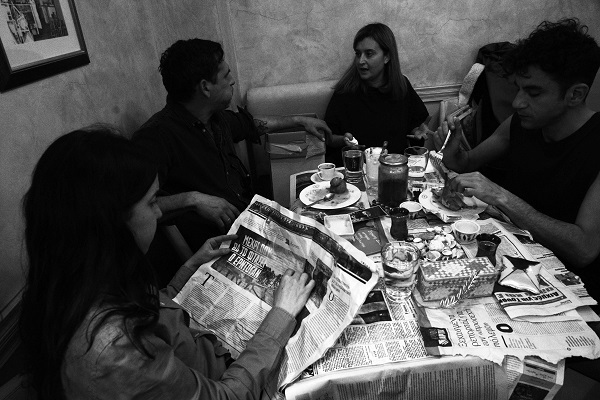
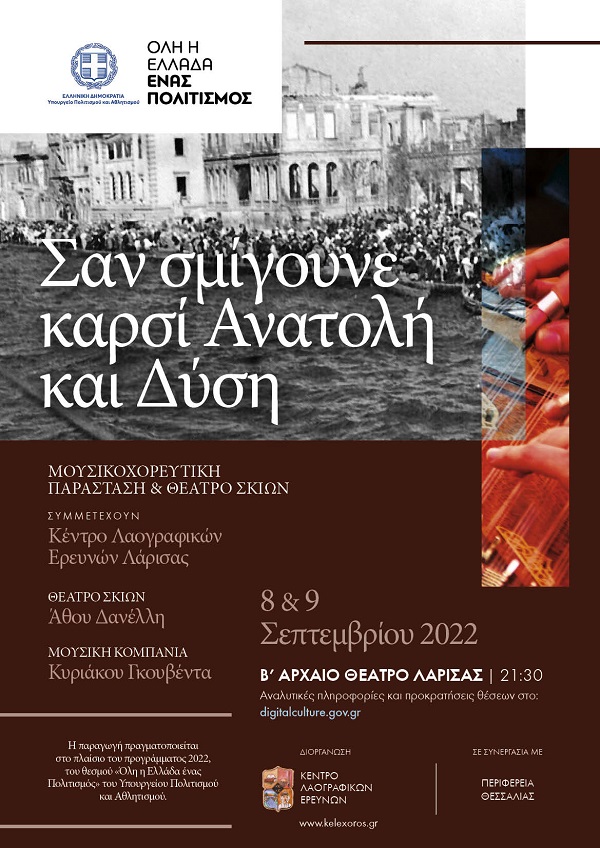
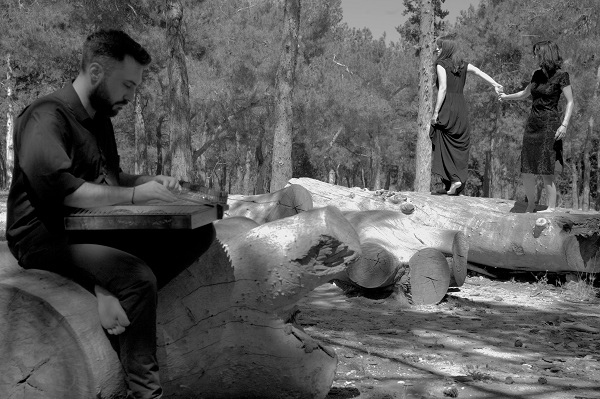
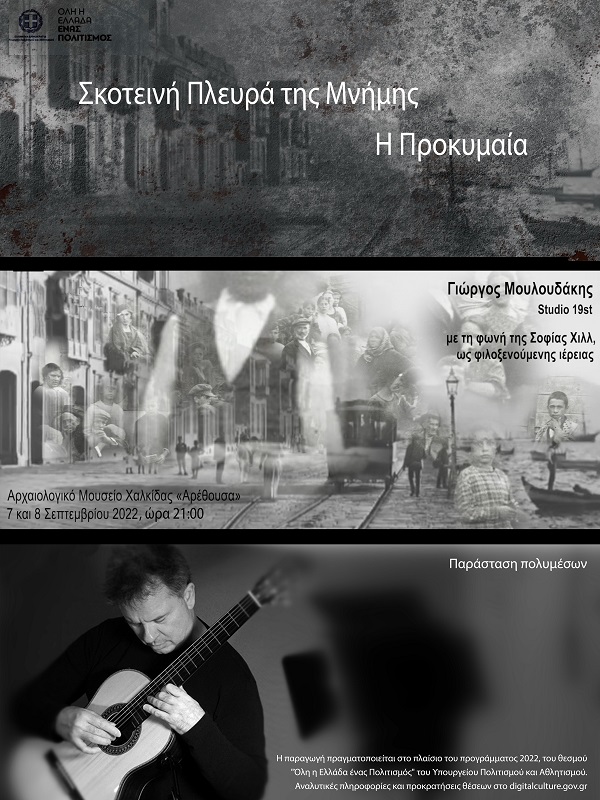

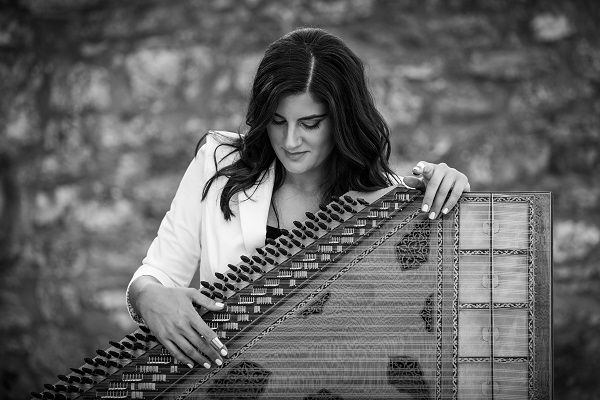
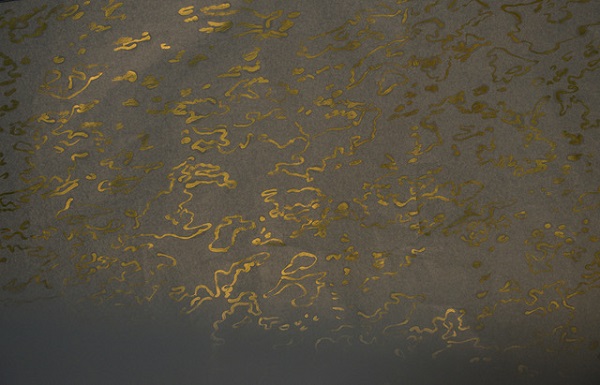
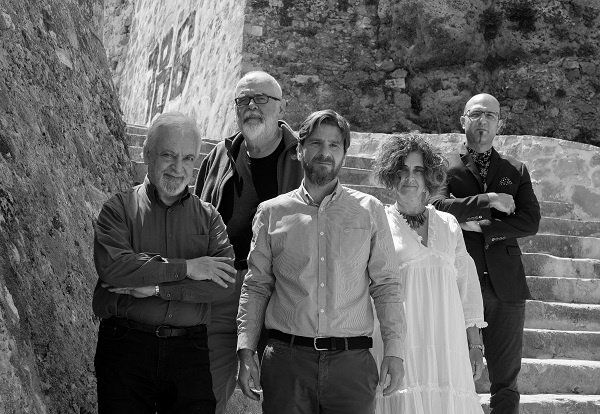
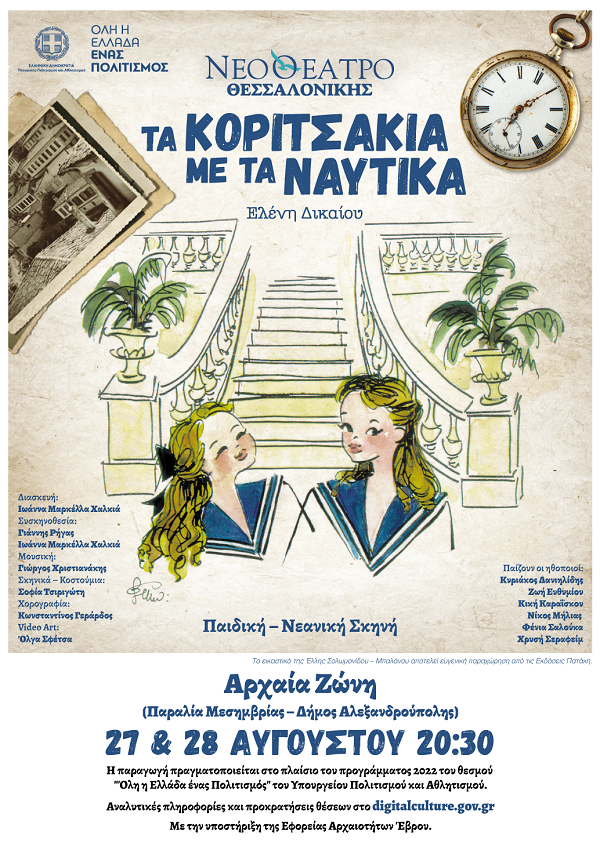
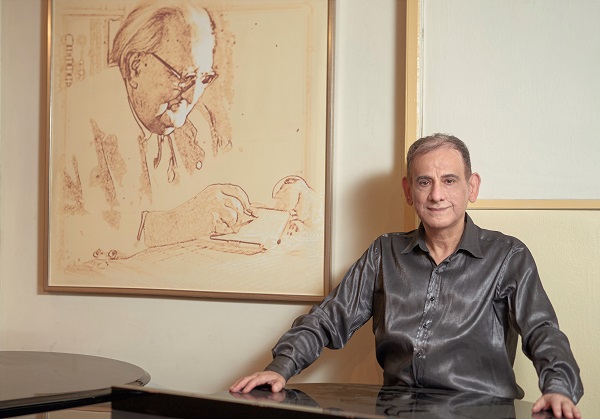
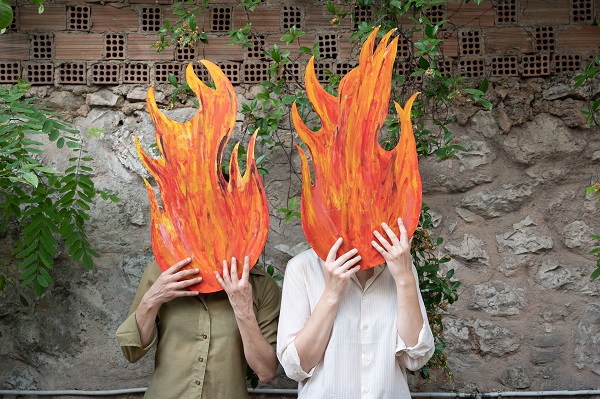
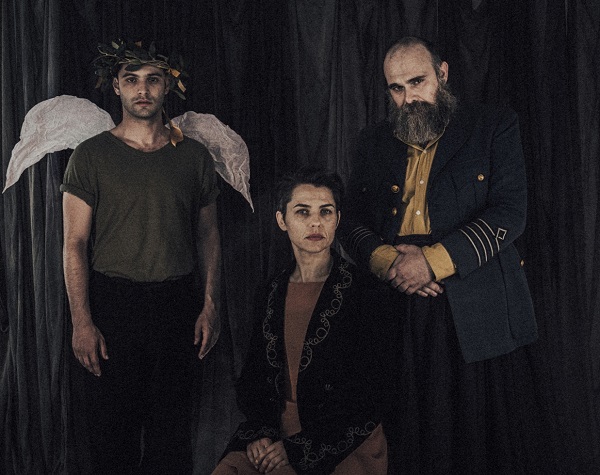
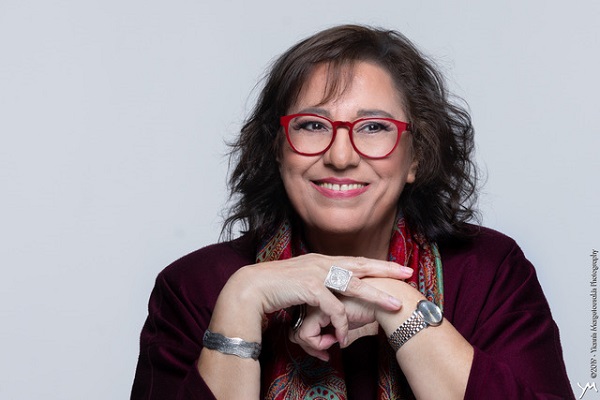
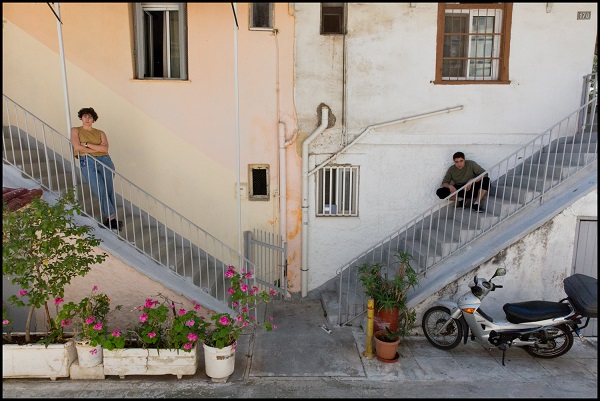
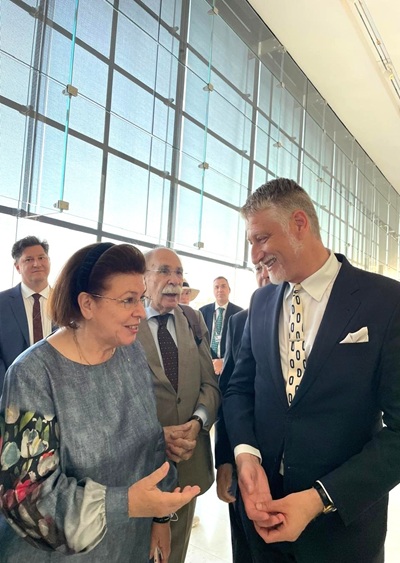
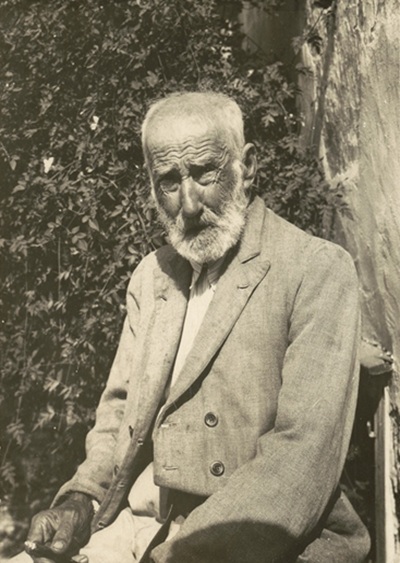
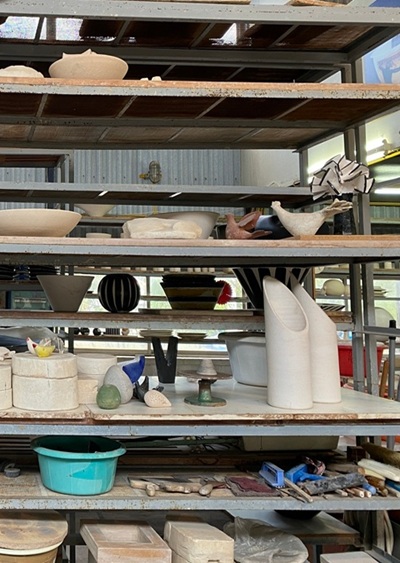
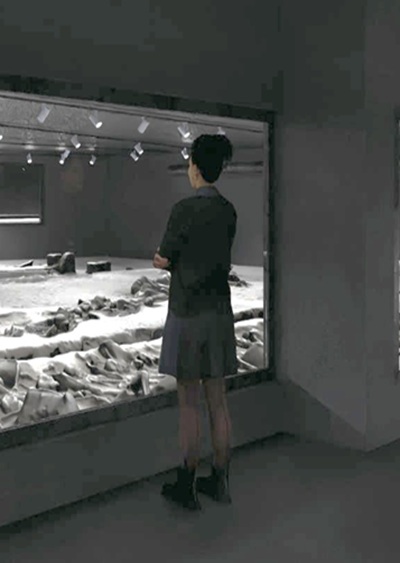


Leave A Comment